#also why are we judging the morality of representation like who cares
Text
good queer representation does not require romance
#also why are we judging the morality of representation like who cares#aro#aromantic#arospec#ace#asexual#acespec#aroace#aspec#trans#1k#2k#3k
6K notes
·
View notes
Text
Just some thoughts about wwx and intelligence and gray morality in the tags
#like I just saw this post about how novel wwx could put cql wwx in the ground#which. yeah! he probably could#i don’t really care tho#the tragedy of cql’s wwx is that he was earnestly trying to do the right thing#and still failed to keep the people he loved safe#not that he was a misunderstood genius#which I think a lot of the serious novel fans seem to like and enjoy#i just think the former is what’s interesting about gray morality#it’s not about someone who is just too smart for those around him#it’s about someone who stands against an unjust society in ostensibly inappropriate ways#which. I dunno#i just like that a lot more#it feels somehow both less juvenile and more earnest#less bitter and more heartbreaking#and also like. cql wwx was pretty damn sharp too. but who’s counting#*kicks at hornet’s nest*#the untamed#just to be clear tho I don’t judge anyone for preferring novel wwx. we all enjoy what we enjoy#this is just more a way for me to work out why I prefer one representation over the other
13 notes
·
View notes
Note
I was really curious about what your opinions on the DAO companions are :) I know we have talked about some, but I'd love to hear more and about the others as well :D I hope it's ok to pose this as an ask :)
Sure! That sounds like a ton of fun. This might be a long one tho. Mind you, this is not the finished version of the answer. I'd like to link stuff and add a cut, but rn that's not possible. I'll update it when I can.
Edit: I have updated it ^^
Let's go alphabetically bc why not.
Alistair:
Sweet guy. So sweet. There was a moment when I was hard pressed chosing between him and Zevran (alas, Zevran won). Also, he's weirdly tall according to the wiki? How did I not notice that before?
Let's get a bit more serious now, Alistair is a great guy. The only reason he's not the hero of the story is because he doesn't want to. He has all the qualities of a leader: he's good at dealing with conflict (as evident with the conversation with the mage at the beginning. He gets where he wants to get without antagonizing the mage, but without allowing him to trample all over him). He's a solid tactitian and knows how to make allies (he suggests to use the Grey Warden treaties, after all). I bet if he was in the leadership position, he'd even not bicker with Morrigan. His moral code is pretty tight; some might say too tight, but I think it's less about the moral code and more about learning to judge people by their actions, not by the labels they fit into (Morrigan is a proud apostate and therefore bad. Wynne is a humble circle mage and therefore good). He also has a bit of a black-and-white way of seeing the world. I empathize a lot with Alistair, especially with his experience with the Chantry and his subsequent reluctance to deal with it. I really wish I had gotten to know more about concrete experiences he had during his training as templar, but he seems reluctant to talk about it (gee, I wonder why).
Since I've only played the game once, I haven't really picked up on Arl Eamon's abuse towards him, which apparently exists (Isolde, however... I mean, even if he were Eamon's illegitimate son, he's a kid, ma'am, he didn't exactly get to chose his parents. So that's so not okay). Alistair's way of speaking about them both, however, is either sign that he has not come within a hundred miles of acknowledging how much it hurt him, or that he's already gone through the whole process and has decided to forgive them. The latter shows a very strong character; yes, he relies on the approval and leadership of others, he has his issues, but he's already started working on them.
That being said, irl Alistair would be like a little brother to me. I'd tease him relentlessly (all in good fun and I promise to stop if it makes him uncomfortable, but he's just so teasable). I still wish the videogame gave him the chance to take important decisions for himself. But that, of course, would somewhat defeat the point of the game.
Leliana:
Another sweet, sweet person. Her singing voice is amazing. Her belief in the Maker inspires me (I'm a religious person and seeing religious characters represented in a positive light is Very Cool. It's also sometimes a source of discomfort, because the Church has done a lot of very messed up stuff and positive representation can sometimes veer into apologetics for things that should not be excused, but that's a whole other can of worms. The bottom line is that religious characters sometimes work for me and other times don't and Leliana works for me very much bc she's an outsider inside the Chantry).
Leliana is best friend material, tbh. I'd love to get to know her irl, discuss theology and philosophy and maybe even politics? She makes mistakes and has prejudices, but, tbh, so do I. And I do get the feeling that she tries her best to learn. From the times she intervenes in a conversation between the Warden and an NPC, she shows herself to be compassionate and open to the needs of others. What I get from her character is that she genuinely wants to help, which is something that I adore of her. I suspect that she sometimes has a hard time deciding wether she's a good person or not. She has killed and seduced and worked for a morally dubious person, and she doesn't show the same nonchalance about it as Zevran (though they both do discuss their line of work in very... professional terms). This is, however, more of a headcanon than actual factual canon.
I also very much enjoy her girly side, like her interest in shoes and dresses. She's one badass woman who also looses her cool about the latest fashions in Val Royeaux. I like that. Between her and Alistair, a non human noble Warden has as good a help to navigate the Fereldan court as they're going to get. Leliana is also, I can't forget that, clever and insightful. It'd be easy to write her off as the innocent chantry girl, but she's so much more than that. Her kindness is paired with foresight, I think. She knows that taking on the trouble to help now can go a long way in the future. I just have a lot of respect for her.
Loghain:
This one's gonna be short bc I didn't recruit him. He's an amazing villain and would probably be a great Warden as well. He reminds me of Denerhor from LOTR; once a hero/stewart of his people, ambition and desperation have driven them both down a terrible path. I have also only little idea about his past. People say he lost a lot, and I believe it wholeheartedly; it doesn't excuse the fact that he plunged the country into a civil war in the middle of a Blight. I don't have a lot of sympathy for short-sighted politicians. I wish he hadn't made himself regent. That's what I take away from his character.
Edit: One thing I forgot to mention that really impressed me was his death. I had Alistair duel him (that was a rough duel), and then it kinda just jumped to a cutscene of my Warden nodding and Alistair executing him. That didn't sit well with me. I didn't want to kill Loghain, and less so in front of Anora. But what impressed me was that Loghain just accepted it. That takes a whole lot of guts. Compare that to Howe's death, and how he screams out that he deserved (more, probably, or anything but death) and it's crystal clear who the more noble of the two is. Loghain strikes me as very lawful neutral, and any neutral alignment has the particularity that it can be dragged towards good or bad, sometimes without the characters noticing it (which is interesting from a DnD perspective; neutral is often concieved of as just as stable as good or evil, but that may not be true. But that's a different post). Anyway, Loghain's death was impactful.
Morrigan:
I could kick myself for not maxing out her approval in the first play-through. I got to enjoy a bit of her friendship by the end of it and boy was even that little bit worth it. Friendship with Morrigan is something that is hard-won. It's all the more precious because of that.
Morrigan is full of paradoxes, I think. She's incredibly wise in some ways, yet also very short-sighted (”just kill them, don't solve their problems”. Morrigan, dear, I'm not going to gain a lot of allies if I kill everybody who poses a problem to me). She is so intelligent, but emotionally... not so. She knows so much about some things, and very little about the next. She's incredibly wilful and knows what she wants, but follows Flemeth's orders all the time through. She hungers for power and independence, yet craves closeness, but won't allow herself to have it. She asks you to prove yourself to her and is extremely critical of your actions, I think, because she's afraid. She bites the hand that feeds her because it might hit her next.
Like with Eamon, I haven't managed to catch the undercurrent of abuse that seems to permeate Flemeth's relationship with Morrigan. Except there are signs, because there must be something Morrigan is scared of and who has instilled all that rage in her, and that's Flemeth. Also, she clearly hates/does not care about her and wants her dead (unless killing Flemeth was part of Flemeth's plan as well? Hm.)
Morrigan is that one person who you are nice to, continuously, because nobody else is. And suddenly she becomes less cold. And then friendly. And suddenly you're asking yourself why everybody hates her, because she's a really good friend! I just wish the other companions came to a similar conclusion, especially Alistair and Wynne.
Oghren:
They did this man dirty. He has such great lines and I'm convinced he was a great person before Branka disappeared. He has that dwarven warrior spirit, and while he looks like Gimli, some of his most impactful lines remind me of Dwalin or even Thorin Oakenshield himself. He could be so noble had he gotten some character development, damnit!
Oghren as he is written is somewhat disgusting. I hate the lechering comments and the drunkenness. And still, I don't hate him because of those amazing lines he has when he's actually sober. It's frustrating and I'll give him that character development myself if the game won't. I strongly associate the song Whiskey Lullaby with him, bc that's how he would have ended up if the Warden hadn't taken him along (warning: the song talks about suicide and alcoholism). Like I said, they could have done such cool things with his character. As he is written now... it's just sad. Moments of lucidity drowned in alcohol and creepy jokes. As you can see, I don't blame the character for either. The alcoholism happens all too often irl. The creepy jokes... I put that one on the writers' tab.
I actually think Oghren could have been a great mentor figure (I know, I shock myself as well sometimes). Next to the Grey Wardens, the ones who know most about fighting darkspawn are the dwarves because they have to deal with them constantly. Especially a warrior caste dwarf like Oghren could have brought a lot of that invaluable knowledge to the team, especially since there are no Grey Wardens in Ferelden but two extremely green recruits. Next, you get the chance to give Oghren the command of the teammates you leave behind in the battle of Denerim with the reason that he has lead men into battle before. Where did that suddenly come from? Oghren should have been right up there telling my Warden that they were doing this wrong, that they needed more food (and booze) and a confident leader to keep the armies they've called together going. Oghren should have been able to tell my civilian city elf who got recruited into the Grey Wardens a six months ago how one leads an army. How one presents oneself to inspire confidence, how one doesn't crack under the pressure, how one gets the leaders of said armies (some who hate each others guts i.e. Dalish elves and humans) to work together. And, last but not least, Oghren could have had a great story about grief. This is a man who has lost most of what made him (and what he hasn't lost he's spilling down the drain with every mug of ale). This is a man who, if you take him into the Deep Roads, has to see what his wife did to his family, how his wife got absolutely obsessed, and can be forced to kill said wife or watch her die. All Wardens loose their home and families at the start of the story. It would really have rounded the whole narrative out if the Warden and Oghren could have recognised their grief in each other and hashed it out somehow. Such as it is, Oghren is a depressed drunkard and there is nothing we can do about that. I find that frustrating.
Rascal (a.k.a. Dog):
Best boy. 100/10. I wish we had gotten to see the reaction of the different origins to the mabari (because elves probably have a whole different experience with them from mages or humans. And dwarves just... I think they straight up have none? XD). Other than that, no complaints. The name Rascal was the one I gave my dog because you have to be a right rascal to survive what he did and play the pranks he plays. Smartest breed in the world indeed.
Shale:
Shale is one of those characters that I recruited rather late in the game, so I haven't had the chance to explore their personality and worldview, really. I didn't even get to take them to the Deep Roads (this will be ammended in playthrough nr. 2). As such, I don't have particularly strong opinions on them (or her? The wiki refers to Shale as 'it', but that sounds weird). But, because I know so little about Shale, I have a lot of questions. First, what were they like before they were a golem? Shayle, as she was called then, was the best warrior of her time if I remember correctly. Why did she become a golem? Was it to be able to eternally protect her people? Was the sarcasm the golem Shale exhibits also part of the dwarven warrior Shayle or did that come later (if for thirty years you have nobody to talk to but yourself, you better be entertaining. And I can imagine how it could make somebody terribly jaded as well).
Next, how attached is Shale to their golem form, exactly? According to the banter, they infinitely prefer it to a squishy fleshy form. If that is the case, however, why go to Tevinter to try and become a squishy dwarf again? It's not like that process could be reversed if they wanted to become a golem again; if Shale survives to the end of the game, the Anvil of the Void is destroyed and Caridin is dead. Was the whole spiel about their indestructible form a façade? It might have been, but not because Shale actually disliked their form. I think it would have more to do with the loss of their memories and with the very invasive experiments and alterations of Shale's body made by the mage Wilhelm. The loss of memories means that Shale is unable to remember life as a fleshy creature. They might be deflecting by pretending that they didn't care for that experience anyway because of the superiority of their golem form. The modifications made to their form by Wilhelm would have alienated them from their body. In light of this, it's significant that Shale asks the Warden to decorate their form with crystals.
All of this is, of course, pure speculation. I may have easily missed or forgotten details that would disprove the above thoughts. All in all, I like Shale and I hope we meet them again in DA4 (given that it's mostly set in Tevinter). It's a liking from a respectful distance, because Shale is tall and made out of rock and also way more experienced than I will ever be (they are literally the oldest member of the Warden's little Blight fighting squad).
Sten:
Sten is another person I'd keep a respectful distance from physically. That seems to be the what he would prefer, at least. I've enjoyed his character a lot, especially because he seems pretty clear-cut at first, but slowly lets the nuance of his person show (gruff and stoic, but then he has an eye for art, a sweet tooth and he likes cute animals). It's also very interesting that there's no moment when you learn "the truth" about him the way you do with Zevran or Leliana. There's no big reveal about his life under the Qun before coming to Ferelden. He says he was sent to monitor the Blight, but honestly? If neither Ferelden nor Orlais knew there was a Blight, how could the Qunari know? I think he's lying, and he takes his secrets back with him when he leaves Ferelden. And yet I think I know him enough to say that a Warden who has become friends with him has nothing to fear from Sten.
One thing I find very interesting about Sten is how he thinks. His conversation about how women can't be soldiers has been analysed a lot on this page I think. He seems to be arguing based on a different paradigma than the one the Warden has. He also seems to have a very clear-cut view of the world. What is fascinating to me is that, when arguing with the Warden and learning about their culture, he is not necessarily becoming more lax about his worldview. I think it's more likely that he is expanding his paradigma, the structure of thought through which he understands the world. I don't think that he is now convinced that women can be warriors as well. I think he rather understands that, in Ferelden, the relationship between occupation and gender is different than under the Qun. Which of the two he thinks is more right or more agreeable, I have no idea. I'm also not very interested in that. But I find it fascinating how he always seems to be looking on quietly, gathering data, classifying it and trying to fit it into his understanding of how the world works. I wouldn't be surprised at all if his original party was a scouting party to see how vulnerable Ferelden was at that moment to outside forces. One thing I don't understand with all of this is why he urges the Warden to meet the Blight head on. No smart soldier would suggest that, except if they are foolishly proud (and Sten doesn't seem like that kind of guy tbh). I get that the Warden takes way longer to gather allies than expected because they first have to solve all of their allies' problems. But surely Sten sees the need to have allies? Is he just that impatient? Does he have a death wish (à la, I lost my sword and am without honour, better to die sooner than later and in glorious battle)? Was he his group's previous commander and is he now having trouble following somebody else's orders? Or maybe it's his way to make sure the Warden knows what they are doing? To push them into becoming the self-assured commander their allies will need once they're all gathered? I really don't know. I like the last option best, however.
For me, Sten is my fellow, more experienced soldier. Like Alistair, he can potentially be the Warden's brother in arms, but he's definitely the older brother here. He probably doesn't take kindly to tearful confessions of how hard everything is, but I feel like he's otherwise a solid rock to lean on. I feel like the Warden can trust him to do what is necessary and count on him no matter what, especially after they get his sword back. His devotion from that point on is honestly so powerful.
Wynne:
Wynne was such a support for my Warden (except with the whole conversation about love vs. duty and that she may have to choose between Zevran and ending the Blight and that she should therefore break up with him. Wynne had a point. Astala was so not willing to sacrifice her relationship with Zevran. But the whole conversation came at a point where she was already so disillusioned that she blew up in Wynne's face (”can i please just have one (1) nice thing????”)). But all in all, Wynne is great.
She has a lot of flaws. She was very marked by her life in the Cricle and, for all her age, she has little experience living outside of it. She is also a conformist despite her strong moral core. In a way, her ability to find peace with her lot in life impresses me deeply because it speaks to a lot of strength of character. Sadly, however, strength can be ill applied and used to suppress. I think she has convinced herself that the Chantry is right under (almost) all circumstances to be able to rationalize the life that mages live. She's had her son taken away from her as a baby and an apprentice killed. Her reaction seems to have been to convince herself that this was right, or for the greater good (and now I'm thinking about the Guardian's question at the temple of Andraste's Ashes; are you wise or do you just repeat what others have told you? The answer is not as clear-cut as it might be). This is why she is so irritated by Zevran and Morrigan. By aligning herself with the Chantry, she is, in her eyes, good. Zevran and Morrigan are not; they do not conform to Chantry morality and they defend themselves tooth and nails against somebody who would try and convert them. This is something Wynne never allowed herself to do; she always did the "right" thing and it has cost her so much. I'm not saying she was right (it would probably have done her some good to rebel from time to time, and to trust her own gut instinct more), but in light of this, it hardly surprises me that she's so judgamental. She has to be, or she would be forced to confront all the evil she has not fought against all those years and all the hurt that has been caused to her by the very institution she protects (and thank God she only tries to argue and can appreciate it when people have found a good life outside of her comfort zone. If she tried to convince by force or, for example, drag her former apprentice back to the Circle... boy oh boy that would get ugly). If you think about it, Wynne really is a good example for what happens if you live by a philosophy of always choosing the lesser evil.
Something that I keep forgetting over her grandmotherly and dignified character is how damn powerful she is. She has escaped the carnage at Ostagar; HOW!? She protected those mage apprentices in the Circle tower for God knows how long. In the battle of Denerim, she wades through an army and comes out alive on the other side. The wiki lists her age at 40, I think, but that doesn't make a lick of sense unless 75 years of age are the Fereldan equivalent to 100. This lady, about whom people make grandmother jokes, did all that. It's impressive.
Zevran:
You know, I would really love to know what Wynne thinks about the events at Kirkwall in DA2. It might be a disaster for her, or it might pave the way for one last bit of character development. She certainly didn't want to return to the Circle after fighting the Blight. That may be an indicator of some change in her stance on the Circle of Magi.
Edit: I forgot that she is what the Circle considers a literal abomination! Holy cow, how could I forget that?? Anyway, her conversation about what being an abomination means is so... heartbreaking, actually. It's so tentative. So careful. "Am I an abomination? Am I the same thing that has killed my students? The same thing as Uldred? Am I lost and damned? Did I invite this spirit in? Is this my fault?" Like wow, Wynne is going through something huge right there. I love it. I have to continue playing the game to see what it ends up as, but it's fascinating and such a huge thing that she allows the Warden in on that.
Ah, Zevran, my beloved (he has stolen my heart so much it's not even funny anymore). He's funny, he's charming, he's so so loyal and it breaks my heart. Zevran is the one about whom I've read most meta: these three wonderful posts for instance, as well as this one about his possible lack of scars, and this one about his lack of freedom. All of these have influenced my opinion of him and they are great reads.
I have talked about Zevran with you before, so I'll just skip to the new stuff. I have come to conclusion that Zevran is an artist at heart. This is totally not biased by the fact that I also do art, but hear me out. One of his preferred gifts are bars of silver and gold. While those have the obvious utility of basically functioning as money (they can be sold to any silversmith or goldsmith and their value is pretty stable through time and in different countries), there's also this from his codex: "Zevran shows an affinity for the finer things in life—hardly surprising for an Antivan Crow—but his appreciation can be more poetic than he lets on. A simple bar of refined silver or gold, uncomplicated by a craftsman's hammer, is elegantly valuable." Tell me that is not an artist's eye that sees that gold and sees the beauty in it. Then, there's also the meta about Zevran the Seducer which I linked above and link here again. It talks specifically about how he lets himself enjoy the target and be seen in his enjoyment. Tell me that is not an artist's eye that beholds the beauty of something he is set out to destroy. Even his talk about his assassinations show this. He talks about it as an art, the way somebody would talk about the brutal intervention in stone that produces a sculpture. Yes, it's a rationalization of the act of killing and yes killing is still wrong. But he doesn't go on about it on a moral tangent the way Alistair or Wynne would (”this person was bad, killing them was necessary”) or even through the argument of survival like Morrigan would (”it was either them or me and it sure as Hell wasn't going to be me”). He talks about the pleasure of a job well done, of the satisfaction of striking the precise point and executing a plan to the perfection so as to minimize chances of discovery and to make a clean death possible. And pleasure in seeing and in doing, this I firmly believe, is absolutely fundamental for an artist.
My favourite part about my Warden and Zevran as a pairing is that Zevran precisely brings out that ability to take your pleasures as they come and to really savour them. Fighting the Blight is tough; it's so important to find good things amidst the chaos to stay sane. If Astala saves Zevran from himself by offering him a place to stay and a purpose, Zevran saves Astala from herself by keeping her from running herself into the ground trying to save the world.
There are some things I don't like about Zev. The incessant flirting, for example, sometimes makes me uncomfortable (it becomes enjoyable for me once the Warden and him are in a relationship, but before that? Nah, no thanks). I wish he would also leave the other female characters alone (and there's so many more shameless comments of his aimed at Morrigan, Leliana or Wynne than at Alistair or maybe even Sten).
---
And that's my take on the Origins companions (this was rather long. Whew ^^' I hope it was still readable and that you enjoyed it!!) Thank you so much for the ask!! It's been a joy thinking about this. I was worrying at first that the less prominent companions like Sten or Shale wouldn't get as much content but... well XD
#dao#dragon age#da: o#dragon age meta#dragon age headcanons#dragon age origins#da:o#da: origins#dragon age: origins#zevran#zevran arainai#alistair#alistair theirin#morrigan#leliana#sten#oghren#loghain#dog#barkspawn#wynne#shale
148 notes
·
View notes
Text
HCCC: I came for Kim Seon Ho playing the romantic lead, but I stayed for Shin Min Ah’s Hye-jin - Part 1

Hye-jin is such an archetype of a modern women that it’s not surprising that she was a polarizing character for the online fandom. Predictably everyone had an opinion on how she should behave coz 21st century is here, but we don’t get tired of judging female fictional characters on their fictional behavior.
Noticeably the same criticism didn’t extend to the male lead. I love Du-sik and Kim Seon Ho’s acting talents can lift any character off the page, but Hye-jin & Du-sik meet-cute was based on presumptuous behavior on both their parts. They were both quite appalling, yes sparks flew but if you were stranded in a town without a car, shoes, and money, would you really want to clean squids?? I think not.
Hye-jin is the modern working women representation that I ache to see on TV and here’s why (and I will ramble…sorry)!
A woman in STEM

Hye-jin being a dentist is an easy obvious win for the character and not just because it’s a tick against the feminist checklist. It’s important because its central to the story. Yes, Hyejin needed to move to Gonjin for character growth, for self-discovery, to stay employed. But also, the people of Gonjin needed her. Her profession allowed her to meet everyone and heal them..her credibility came not just from who she is but what she did. She was a great dentist, and we need to see how successful women in STEM can impact their communities!
Introvert & the kind of women who people often complain about “not smiling enough”
Another great trope inversion where the leading lady is not the chirpy, outgoing person holding the community together. The first few eps are really people of Gonjin baffled why this girl was not returning their big bright smiles (and people online on chats going why is she being like this? she is so mean!), Honestly, if anyone complains why is a girl ‘not nice enough’ one more time..I can't even...!!
She is very guarded, an introvert and understandably a city snob. Also, if you are single women living in a large city, I expect you tend to look at everyone with a little suspicion. I think SMA nailed that slightly wary suspicion of everyone being too friendly and kind. (My favorite scene when she accuses Du-sik and Ha jwong of scamming her into renting space from them!)
Do I approve of her casual snobbery at the senior citizen party when everyone was trying to make her feel welcome? No
Do I believe and relate to it? Hell, yes.

Not being perfect, but seeking perfection
Hye-jin listens, introspects, and learns. She is not perfect, but she is open to improving and adapting.
This is a great human quality in general but very often I see this woman more than in men. Women are hard on themselves, and they are constantly pushing for improvement.
Even smart, successful women do that all the time - they listen, learn and change. Which is why I think it’s so cool that Hye-jin has that trait. It shows refreshing maturity that is truly representative of real women!
Wow...this post is already longer than I thought....so turning this into a two-part post!
(PSA – All the ups and downs of KSH scandal notwithstanding, I know that Kdrama world continues to be divided on Kim Seon Ho. I wasn’t planning to cancel him when initial facts were known, because while the matter was morally reprehensible it did not appear criminal. Disappointing- yes. Damning, not clear. As more facts revealed itself, even the original story became shrouded in doubt. I don’t typically cancel artists that I admire, as literally my only expectation from them is they be good at their craft. I don’t hold their behavior to any specific standards, and I really don’t care about celeb personal lives (of course, there are always exceptions to the rule).
In most cases, I can separate the art from the artist…if I didn’t half my bookshelf will be empty and there will be no rock music from the 70s ...sigh! But I also understand and respect that not everyone wants to make that choice.
This is long winded way of saying that on this blog you may find posts/reblogs on KSH, the actor and the work he is in. And I get that it may not be okay for everyone, which means, read at your own risk.)
#hometown cha cha cha spoilers#hometown cha cha cha#shin min ah#hong du shik#gonjin#kim seon ho#yoon hyejin#character analysis#female leads#kdrama analysis
62 notes
·
View notes
Note
what do you like about raf you said he was your favorite boy but to me his only personality trait through the whole season was being a seth sympathiser. i just found him and the acting so incredibly boring i’m genuinely interested to see what you saw in him?
maybe i should clarify that i liked his story more than i actually liked him, but i think his background of being a mexican citizen that goes to school in the us was a really unique story for them to give (one of the only background stories on the boys that reminded me of the girls), and his story was a really good representation of how young poc, especially those that are first gen citizens, can feel torn between their roots and who they want/feel like they’re supposed to be
i was really upset that he was sympathizing with seth in the beginning, and while i still don’t love the character choice for him, i realized throughout thinking more today why it was chosen for him.
he grew up instantly judged by his peers and its in character to not want to contribute to that, even in situations where it’s warranted. he never was actually supportive of seth in the sense that he made it clear he didn’t think josh was lying and didn’t think it was right of seth to do what he did, he just didn’t want to buy into those split second decisions of kicking him out, leaving him to die, etc. again, it’s not necessarily the moral decision most would have made, but the conversations went quickly and he had very little time to think about it. being a victim of instantaneous judgments his whole life, i can understand (even if i disagree) why he would feel overwhelmed with being forced to make one of his own in such high stakes situations
i also really saw a lot of poc experiences in his seeking of approval, his high level of devotion to his girlfriend of a significantly different class, his struggles with his name, having an extreme sense of importance for his accomplishments (or failures), and i haven’t rewatched yet so i’m sure i’m missing some specific moments or other traits. i do think his acting could come across as boring but i saw it more as another manifestation of his experiences, and how poc, especially immigrants and/or working class poc, are told not to take up space, not to speak out of turn, etc. whether that was on purpose or just bad acting i don’t know tho
it’s also important to remember that seth isn’t just a bad person, he is a highly skilled manipulator. his rocketing back and forth between victim complex and heavy praise, his self awareness but lack of obvious effort to fix his flaws, etc. i don’t think it’s by mistake that kirin, the golden boy who runs on a never ending reel of praise back home, was the primary one to notice that manipulative behavior from seth and call it out. i’m sure it’s also not by mistake that rafael, the one who we know to be constantly overlooked and isolated back home, would be most at risk of falling into seth’s trap. i also don’t think it’s a mistake that seth chose him; bo and scotty had each other, henry was his step brother, ivan and kirin were too confident, josh chose kirin first, but rafael? perfect target
i can understand why a lot of fans, particularly white fans, wouldn’t like him that much, and by no means do i think his character as written is exceptional, but out of all the boys (most of which i didn’t care for; my ranking of the boys is relative to the others), i thought he was well written. is that due to my inflated interpretation of mediocre writing? possibly lol
8 notes
·
View notes
Text
FAVORITE SHOWS IN POSTERS
Well, we’re back for another installment of this tagged meme, this time for TV shows! I also stole this from/was indirectly tagged by @jcmorrigan. My taste in shows also differs a bit from my taste in movies, as I tend to like a lot of comedy shows with not as many horror ones. I’m not into shows as much as movies overall, but there are some that I am very passionate about so I picked twenty again. So, here we go for part 2, in order:
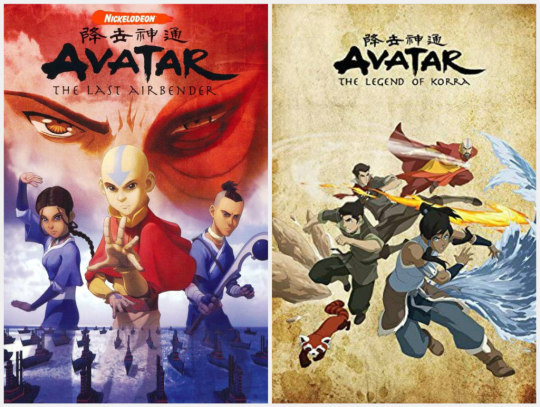
1. Avatar: The Last Airbender/The Legend Of Korra (2005-2014)
I'm including these as one show since they take place in the same universe and tell a continuation of the same overall plot. Altogether this is probably the best piece of media to ever exist, including movies. It has so many great characters and villains especially and some of the most epic sequences, charming humor and heartwarming moments ever. I've never met a person who didn't like these shows, even people who normally don't like cartoons. My dad, who is biased against animation? He loved it. My mother? She loved it, watched it with her multiple times. My grandmother? Loved it. My ex-boyfriend? Loved it. My best friend? Loved it. I dare anyone not to, and I'm so glad it's making a resurgence since it's on Netflix for a new generation to enjoy.
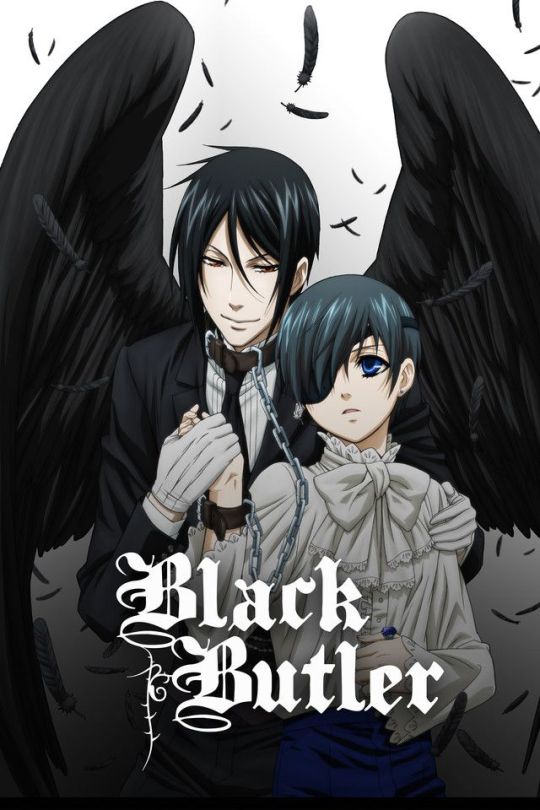
2. Black Butler (2008-2014)
I never was big into anime growing up and only really started watching anime when I was like 16 and above, but this is one of the exceptions because holy shit is it ever dark and epic. I'm not sure I'd really recommend it for kids, it's more of a teens and young adults kind of anime and that's probably why it's so good, because it isn't afraid to explore dark and mature topics and do it with all of the intensity and gravitas required to do said topics justice. It has lots of great characters, and the story of demons who make deals with children who have a dark side is fun to watch play out.
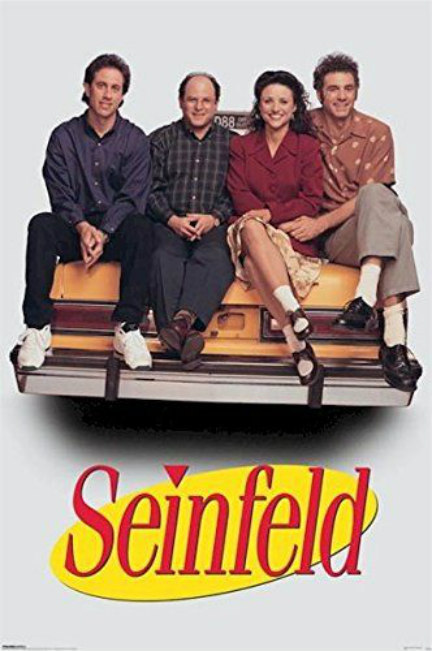
3. Seinfeld (1989-1998)
My dad was a huge fan of this show so I watched it growing up since I was a toddler and it became a classic for me. I've watched thw hole show through at least 8 times, and I'll never stop because it never gets old or boring. It's also my only comfort show when I'm having a panic attack because of one time a few years ago when I was having a drug-induced psychosis episode and watching it calmed me down, so now it's like the opposite of a trigger and whenever I'm having an episode or something I watch it to bring me back to reality. For that reason it's more than a show to me, it's a medical treatment and I'm forever grateful to it.
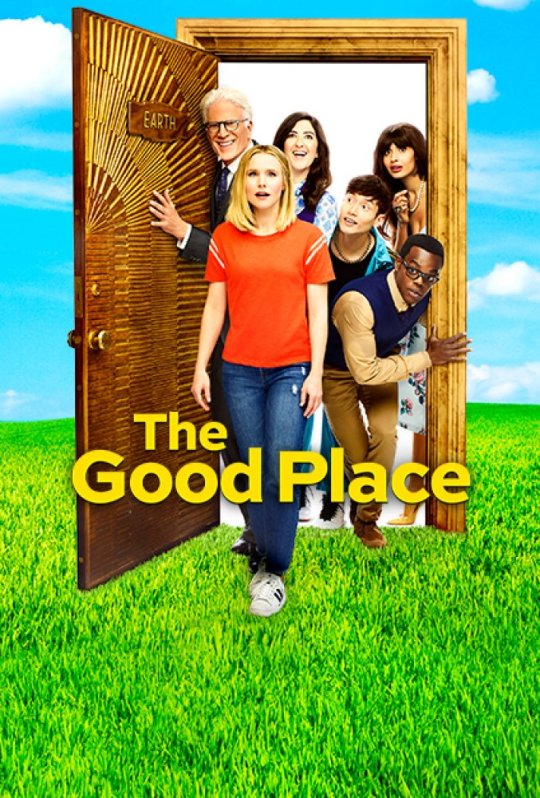
4. The Good Place (2016-2020)
The big four shows made my Michael Schur all made it on this post (The Good Place, Brooklyn Nine-Nine, The Office and Parks And Recreation), either in the main list of the honorable mentions, but this is my personal favorite of the four. It's so funny, quirky, relatable and basically tailor-made to suit my interests. Not only is it an entertaining and wholesome show, but I think watching it helped me come to terms with a lot of things like mortality, ethics, philosophy, religion and my relationships with other people. It gets alot of different viewpoints across and if you're a very analytical and philosophical person like me you'll probably enjoy seeing it all play out. Not to mention, every single character is 'favorite character' material. It's rare you find a show with no filler characters in the main cast, but I genuinely can't choose who is best.
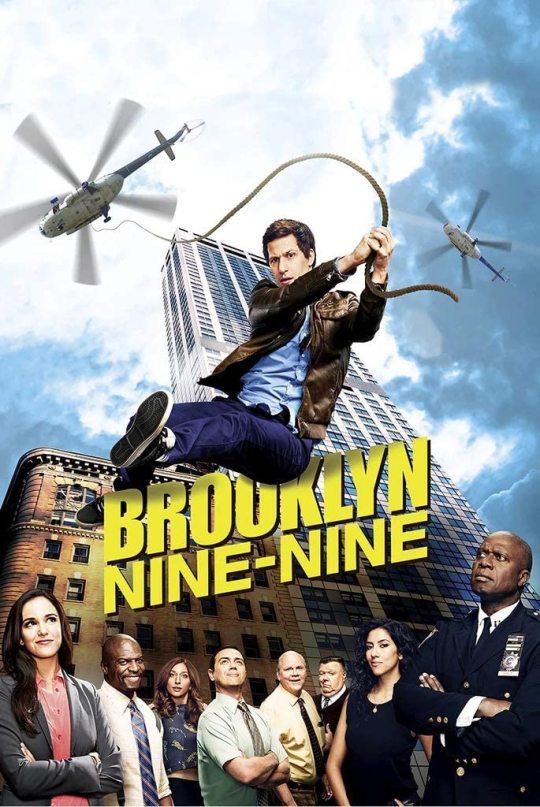
5. Brooklyn Nine-Nine (2013-?)
Another of Michael Schur's shows, this one is just barely under The Good Place and to be honest it was tough to pick my favorite between the two because they're both equally funny. I know it's kind of controversial right now because of the whole law enforcement thing, but I actually think they do a good job of handling social issues in the show and remaining respectful of real-life systemic problems. As for the characters, this is another one of those shows where every single character is gold and I think that tends to be a trend among Schur's shows in general. He produces damn good comedy, and damn good characters. I can't wait to see what they bring next.
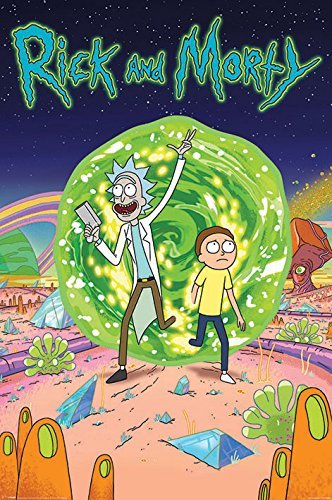
6. Rick And Morty (2013-?)
This is unfortunately one of those cases of 'great show, horrible fandom' and for that reason I don't get involved in the fandom even though I love the show. It's a shame because it really is a great show, so funny and, again, such good characters. I think it's a lot more accessible than the fandom likes to claim, so I'm hoping more people will give it a chance and not get put off by the intellectual elitism of the fandom because it does have some of the most entertaining and batshit crazy episodes ever, poking fun of some of the staples of science fiction in media while also poking fun of itself the whole time. Unlike the fandom, the show doesn't take itself seriously and that's enjoyable nowadays.
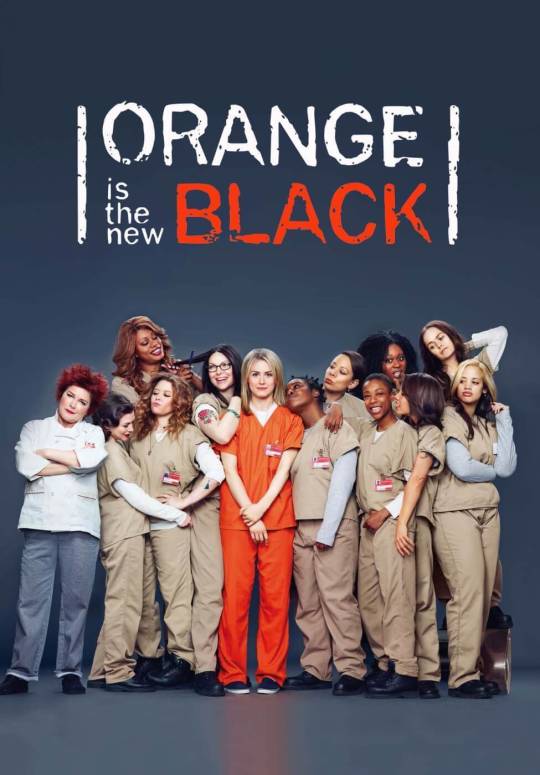
7. Orange Is The New Black (2013-2019)
While this show is a comedy, it is also a lot of other things and it's probably made me ugly-cry just as many times as it's made me laugh. Well, maybe not as often, but those few scenes (if you've watched the show then you know the ones I'm talking about) made me hysterically sob hard enough to be worth like fifty minor sads. But I didn't even mind because the show is just that good, and it makes you /feel/ something in a real way. Probably because of just how real it gets in terms of telling stories that happen all the time in the real world, sometimes with inevitably tragic endings. But these things do happen every day, and it's important to shine a light on that. It's not just representation for LGBTQ+ but also for POC, the neurodiverse, the poor, and many more. Give it a watch to broaden your perspective!
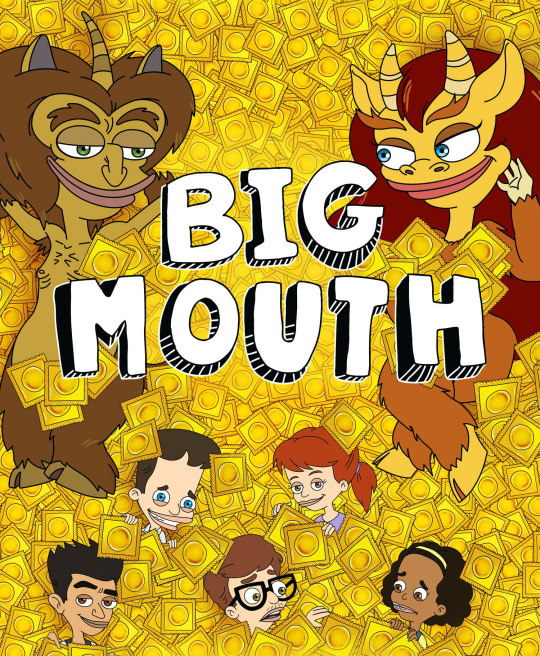
8. Big Mouth (2017-?)
This is probably the grossest show I've ever seen but by god is it ever funny. Maybe it's because I have an immature sense of humor or something, but I love this show. It definitely won't be everyone's cup of tea and I don't recommend you watch this show with anyone else around because it will get awkward. I think part of its appeal to me is that everyone I talk to who likes it considers it so relatable to their lives growing up but for someone like me who grew up on the autism and asexual spectrum and who was physically an early-bloomer by years, nothing about this show is relatable to me in any way so it makes it all the more crazy and bizarre watching how the people around me must have experienced things. Did y'all really have these experiences with puberty in middle school???
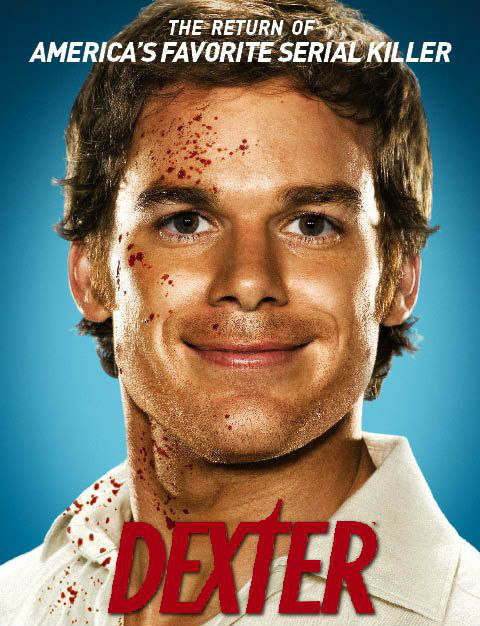
9. Dexter (2006-2013)
I recently heard that this show is coming back for a reboot soon and I'm so excited because this is my absolute favorite drama/thriller show, as evidenced by the fact that it's the highest one on the list so far that isn't a comedy. I love the idea of having a protagonist who is sort of a villain (or at least morally dubious), and the idea of a serial killer who only kills bad people is particularly satisfying for some reason. Maybe because he's the vigilante we all deserve and want in this unjust and evil world of modern times? Idk but the very premise of this show set it up for big things and aside from the ending I think it delivered consistently.
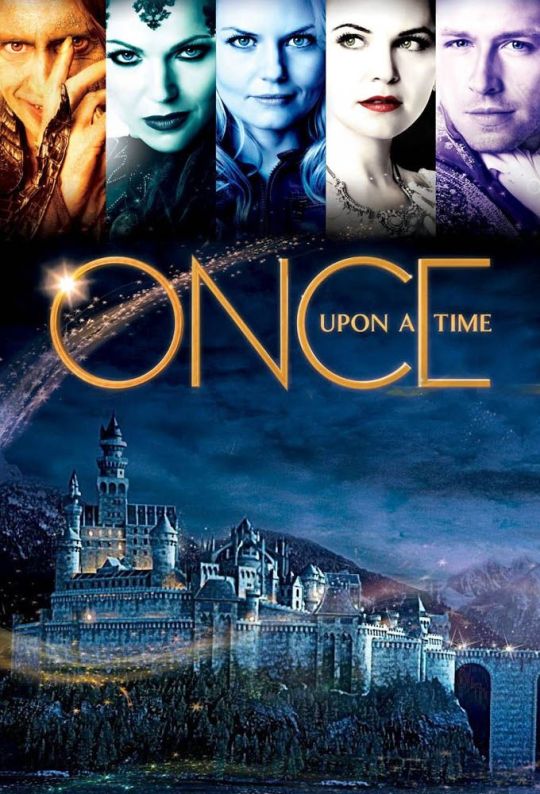
10. Once Upon A Time (2011-2018)
This show took us on some journeys, and you can't deny that. Sure, maybe it didn't always finish what it started and didn't always end in the most satisfying way, but part of its charm is that you didn't care because the experience was just so much fun. They took characters and stories that have been told to death and somehow managed to put a unique and unexpected twist on them, and that alone is admirable. Good twists, good villains, and pretty much every cliffhanger known to man will keep you hooked on binge-watching every episode.
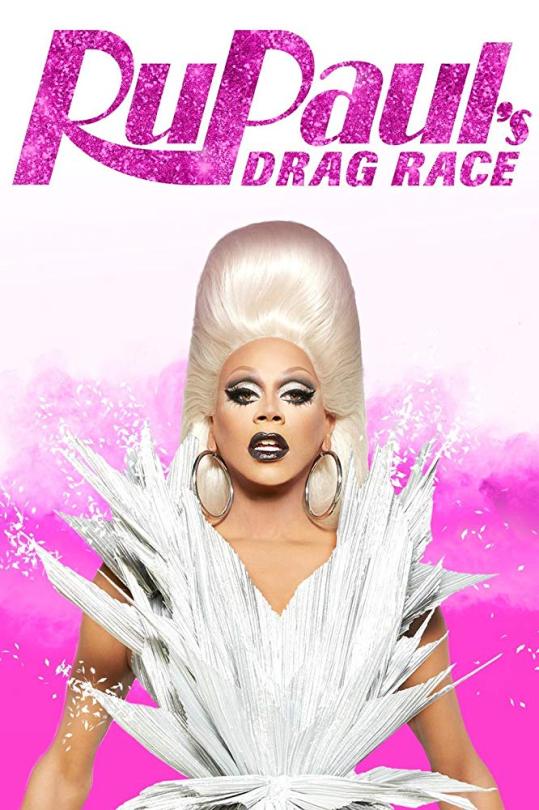
11. RuPaul's Drag Race (2009-?)
A bit different than the other entries on my list in that it's not fiction but a reality competition show, but I couldn't leave Drag Race out because it's just so fucking iconic and perfect. Even when you disagree with the judges or can't stand a certain contestant you'll still be having a good time. It's got the personalities you love to love, the ones you love to hate, and the comedy that's completely meme-able. I mean just how much has this show contributed to pop culture and the internet? More than most of us, henny. I've watched every single season, even the international ones and all of the spinoffs. This show will probably be on for another thirty years when Ru is throwing shade from a hospital bed and I'll still be watching.
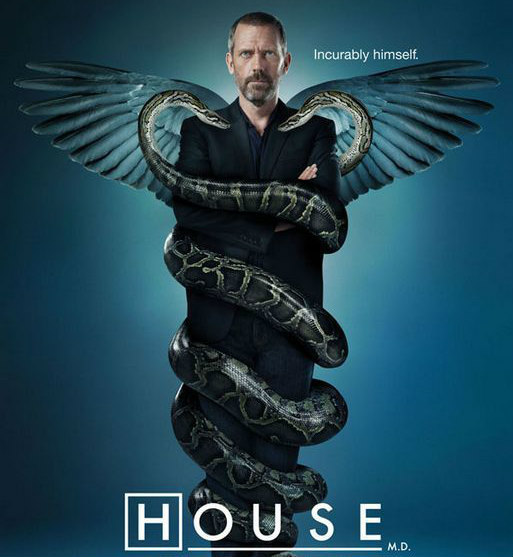
12. House (2004-2012)
Some people hate on this show, and I don't get it. I love House. Yes, he's an ass. That's the point. He's supposed to be unlikeable, and that's why I like him. Maybe because I always love the rude, sarcastic, misanthropic jerkass-genius characters for some reason. And I also love procedural shows, so it's a win-win. I also work in the healthcare field so it appeals to me for that reason too, because obviously the whole premise is outlandish which is what makes it funny. Of course it's not realistic for a hospital, so just enjoy the absurdity and don't get too hung up on the details of medical accuracy and professional ethics and you'll be fine.
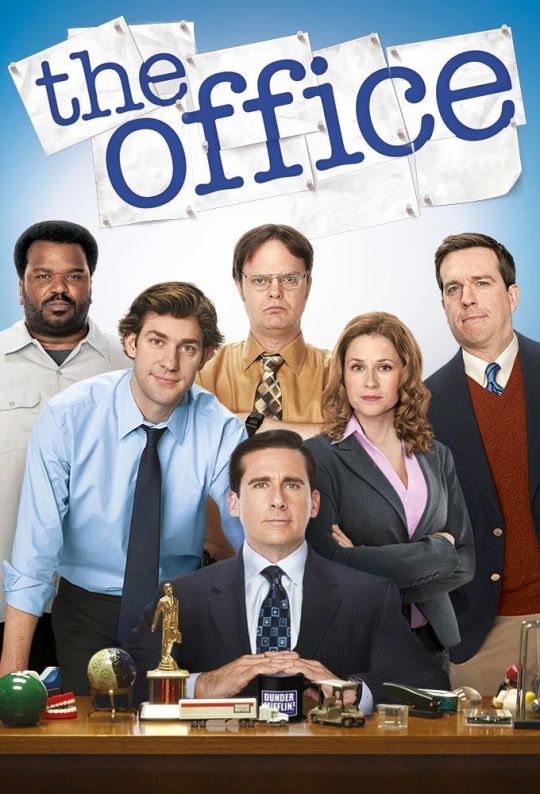
13. The Office (2005-2013)
The third of Michael Schur's show and the last one that made the main list (sorry Parks And Rec, I love you too but there was just so many good shows to choose from and I saw you last so the nostalgia isn't as strong!) I don't think I need to hype this show up any, it's already a classic and you can't even turn around online without getting hit in the face by a dozen Office memes. You'll have to pry this show and it's relatable characters (especially Michael Scott) from my cold, dead hands.
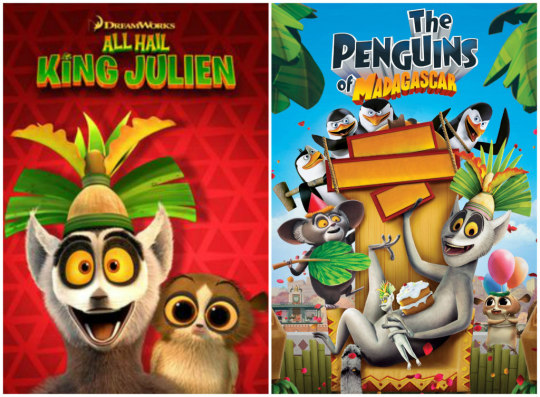
14. All Hail King Julien/The Penguins Of Madagascar (2008-2017)
Like Avatar/Korra, I also consider this as one show for the sake of this list because it also takes place in the same universe (Madagascar, specifically) and I just couldn't choose one over the other because they're both so perfect. They're funny and I love all the characters (it cut out the weaker links of the Madagascar film series and just focuses on expanding the standout side-characters like King Julien and the penguins). It also delved into some lore, particularly the first show, and even though I didn't also agree with the directions it took (you may have seen me get salty about the ending because I cared too much), I can't deny how much I love it.
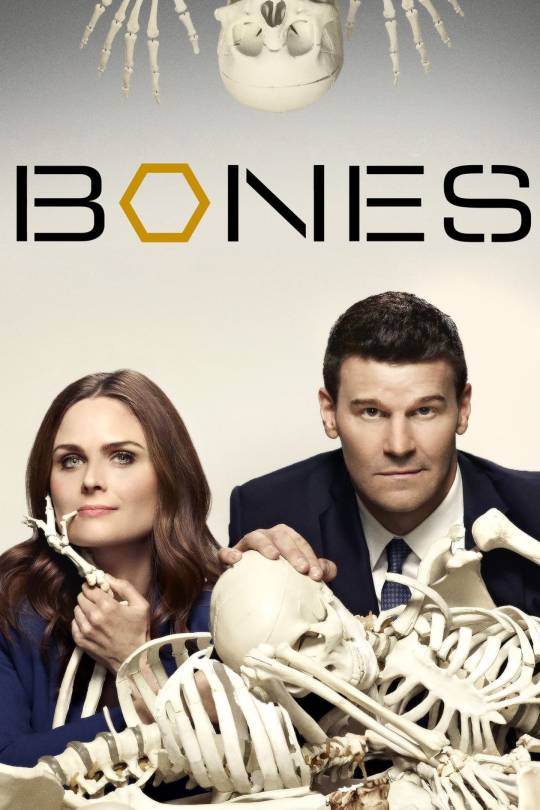
15. Bones (2005-2017)
One of the other scarce non-comedy shows on this list, it still has it's funny moments. It's also, like House, another procedural show that involves some medical stuff, but this time on a more scientific and forensic level which is even more interesting. It's nice to see a lead female with Asperger's, too. There's a lot of cop/law enforcement shows where they try to solve crimes, but this one is the best, and I'm saying that as a fan of CSI as well. Don't fight me on this, I'm right. Oh yes, it's corny, it's campy, it's cheesy, but I love every minute of it. Don't watch if you have a weak stomach though.
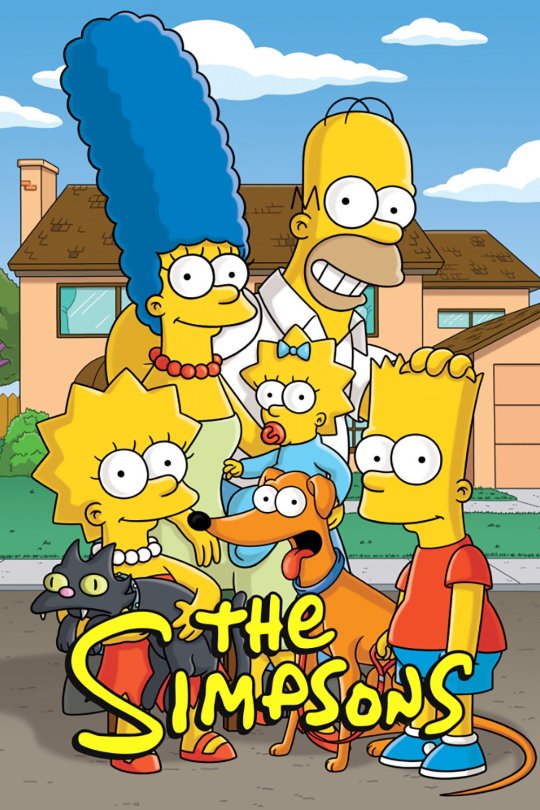
16. The Simpsons (1989-?)
We all grew up with this show, don't lie. It's been around longer than most people on tumblr have even been alive. Should it have ended seasons ago? Hell yes. But that doesn't take away what the first like 20 or so seasons gave us (there's a lot of argument about when the show jumped the shark, for me it wasn't until much later than the popular consensus). The characters are amazing, but the secret to the show's longevity is that they always return to status quo and there's comfort and nostalgia in that. Bart will still be in 4th grade when you're out there pushing 90. This show is persistent. This show is eternal. This show will outlive us all.
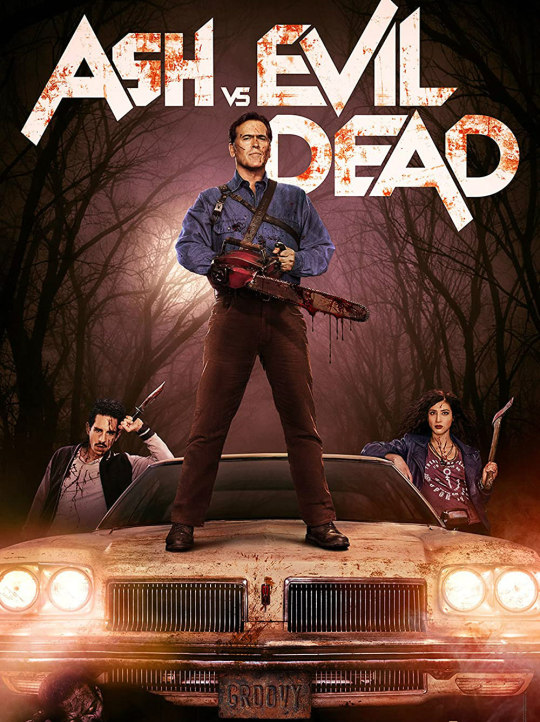
17. Ash Vs. Evil Dead (2015-2018)
Sorely underrated. This show is hilarious, gruesome and campy as hell and I love it. I don't think you necessarily have to watch the Evil Dead movies beforehand in order to get the plot of the show, although it would probably help. In my opinion this show ended way too soon and I'm hoping someday we'll get a comeback because Ash is the reluctant, self-absorbed hero we all need and it's 2020 so at this point there really might actually be a demon-zombie apocalypse and who's gonna save us then if not for the impulsive womanizer with a chainsaw for a hand?
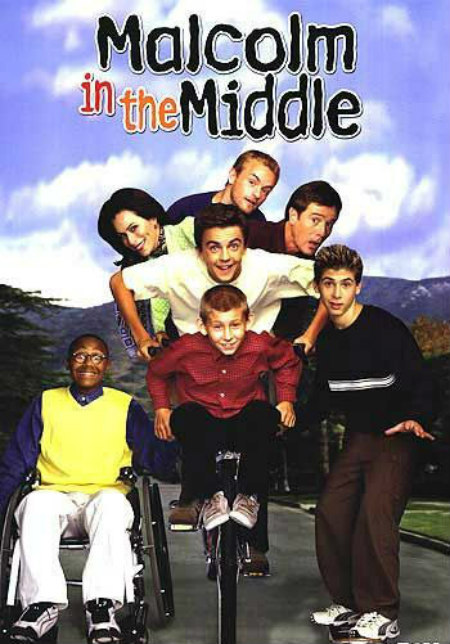
18. Malcolm In The Middle (2000-2006)
Another show I grew up with, I don't think it gets as much credit as it deserves. It has some damn funny episodes and great characters, and it did a lot of the popular sitcom tropes before they were 'cool'. Some other great sitcoms, The Middle in particular, took a lot of influence from this show and it helped pave the way for the future of sitcoms at a time when they were about to make a comeback. If you want a good show about the real experiences of growing up, this is a much more accurate representation of the highs and lows of being an awkward tween from a dysfunctional home.
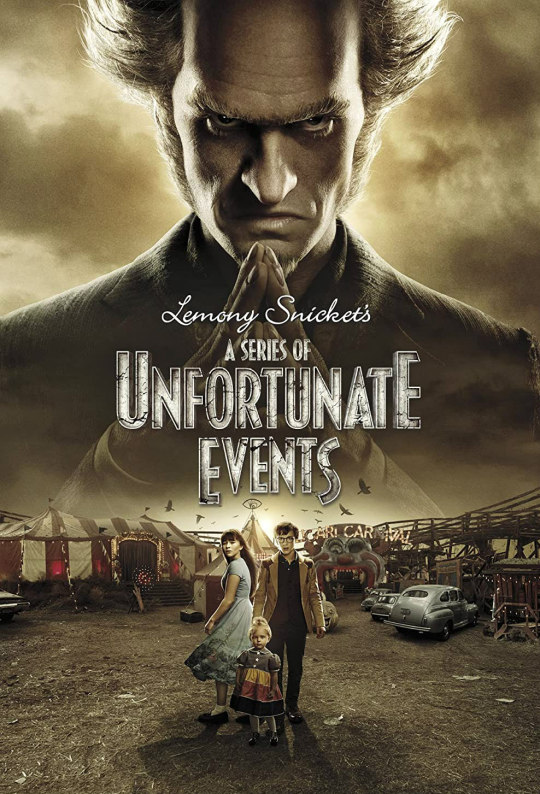
19. A Series Of Unfortunate Events (2017-2019)
Unlike most people I actually liked the movie version from the early 2000's, and I read the books growing up so I was excited when I saw there was a live action television adaptation of it on Netflix because I felt like they cancelled the movie franchise too soon. I was interested to see how new actors would handle the roles, and I was not disappointed. I wouldn't say I liked either portrayal of the characters better or worse, they both added their own twist to it and this show is a great and loyal adaptation to the books, probably because the author was so heavily involved. He knew just when to stick to the books and when to improve upon what he had done with the benefit of hindsight. This show is basically the books, but remastered.
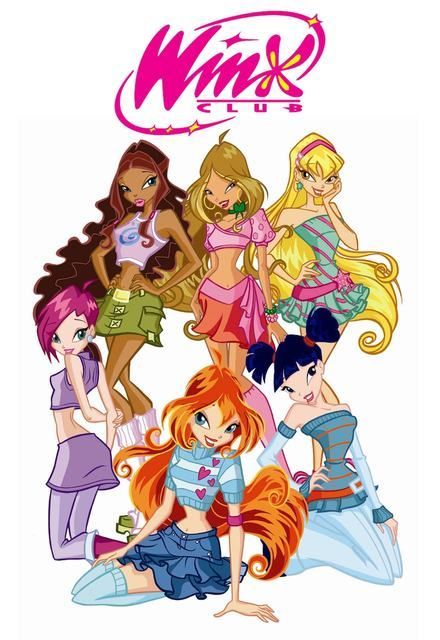
20. Winx Club (2004-?)
Sort of an odd one out on this list, but I really love this show even as an adult and it may surprise you to learn it is still going on and the most recent season came out last year. They take big breaks sometimes in between seasons, but it's still going strong and in multiple countries. The only thing I don't like about watching this show is all the different and inconsistent dubs since the original show is Italian and each dub only goes for a couple seasons so by the time you get used to one set of voices/names for the characters oyu have to abruptly switch to another, but it's still worth it for the beautiful animation and cool characters (especially the villains!)
Honorable Mentions:
13 Reasons Why, America's Next Top Model, American Horror Story, Arrested Development, Bates Motel, Battlestar Galactica, Black Mirror, Care Bears, Chernobyl, Courage The Cowardly Dog, Criminal, CSI, Duck Dodgers, Goosebumps, Kenny Vs. Spenny, Kim Possible, Kingdom Hospital, Lazytown, Lost, Making A Murderer, Mayday, Mindhunter, Modern Family, Monster High, Obsession: Dark Desires, Parks And Recreation, Prison Break, Project Runway, Queer As Folk, Queer Eye, Salem, Schitt's Creek, SCTV, Spongebob Squarepants, The Emperor's New School, The Good Doctor, The Haunting Of Hill House/Bly Manor, The Middle, The Pretender, The Walking Dead, The X-Files, Through The Wormhole, Unbreakable Kimmy Schmidt, Unsolved Mysteries, Yugioh
Tagging: @bullet-farmer and anyone else who wants to!
#avatar the last airbender#the last airbender#avatar#legend of korra#the legend of korra#lok#atla#seinfeld#the good place#brooklyn nine nine#brooklyn 99#rick and morty#orange is the new black#oitnb#big mouth#dexter#once upon a time#ouat#house md#house#rupaul's drag race#the office#all hail king julien#the penguins of madagascar#bones#the simpsons#ash vs evil dead#malcolm in the middle#a series of unfortunate events#asoue
273 notes
·
View notes
Text
law school: love and goodbye letters
notes: i would like to give out love letters to the amazing cast, our 8 students from hankuk law school. like what the director said, i’ll support them in their journeys as they take a step into their new chapter, wherever they go. their stories continue and live on. it’s been an amazing journey, although I was initially hesitant on starting it. while i will definitely be suffering withdrawals and probably think about it too much, i’m thankful i started watching.
the finale has left me with so many thoughts, I want to send them off right. also, writing these letters have helped my process my feelings towards the show and stop me from getting so withdrawn. so, shall we begin this court hearing?
over the next couple of days, my inbox will be open to requests! i may not write the fastest, but I’m willing to fulfil any of your desires about law school now that it has ended.
(skip please, if you don’t want to see my personal reflections.)
HAN JOON HWI// KIM BEOM
you have been a pleasure to watch, a seasoned actor indeed. you brought life to joon hwi, depicting the student that is smart, aloof, but is actually caring for their friends alike.
joon hwi, when you entered law school, you wanted to be a prosecutor. now, you finally got your dream. you were broken, sad, betrayed by your uncle. you remind yourself that you cannot be your uncle. but at the end, you’re happy, aren’t you? you’ve been through hell, yet somehow you told yourself to hang on. believe it, samchoon is proud he raised a noble nephew to fight and correct the flaws in the law.
you have taught us the black and whites, yet seeing the greys of law. and with that, as you continue your journey as a prosecutor, remember to judge fairly and make sure no one suffers unjustly.
you’ve done well, kim beom. thank you.
KANG SOL A// RYU HYE YOUNG
hyeyoung, you’ve brought so many emotions across the screen. as kang dan and sol, you had the challenge to play polar opposites, the moon and sun. you were feisty, you were soft. yet, you brought the humane qualities out of sol, conveying it to us.
kang sol a, you represent that majority of students, or even adults alike. you’re single parented. you come from a broken family. you have an estranged sibling, one you try so hard to find. you are barely making enough to live by. on top of that, you are on a scholarship, yet scoring grades that skim the pass. you represent so many students in the world. yet, you didn’t let these weights hold you from feeling your passion into law. you fought tirelessly for your friends and family, and stayed grounded in your morals and values.
this is why you are my personal favourite. that you love and strive for something so much, you work on it endlessly and still rigorously put in hard work. your passion for law inspires me to be equally passionate for my future degree as well. the fact that you went to law school seeking an apology, I hope you have gotten your apology. your zeal for justice will live on.
as a lawyer now, i hope you will remember your endless nights. i hope you know your worth. i hope that everyday, you trust yourself and be bold and courageous, like how you are when defending for your professor. you will excel, and you will be a good lawyer.
so thank you, for speaking up for the students who find it tough to get through school. for telling us and giving us faith that we can survive.
KANG SOL B// LEE SOO KYUNG
sookyung, you are far from your character of solb. yet, you were a perfect representation. you were elegant, classy and held that prestige whenever you acted.
solb, you represent that group of us that are pressured. when the society pressures us, it is nothing compared to our family’s pressures. you held your mom’s pressure to heart, studying endlessly, trapped in a cage that you couldn’t get out of. you isolated yourself to break free, acting cold.
you finally broke free, with your consultations with your therapist. and i hope you know just how proud i am of you for standing up for yourself. your unnies and oppas will always be supporting you, and wherever you are now, whether you are training to be a judge or not, i hope you never forget that you are supported. you are a free bird, and you should do things for yourself.
thank you, for being the solb we have learnt to love, the student we aspire to be. solb, you are forever an A+ in our eyes.
SEO JI HO// LEE DAVID
david, you are the man backstage always goofing off. your character hates goofing. yet, your simple eyes and acting brought so many emotions. you didn’t have many emotional scenes, but your expressions were so well done.
jiho, you started law to fight for your dad, for justice to be served. but over your journey, aren’t you glad you have made so many friends? your 3 years there have proved that you have earned justice, but you earned friendships that you will never experience anywhere else.
wherever you are, if you are at a law firm working and earning lots of money, cherish the friendships. justice is served. learn and let go, and maybe you will enjoy your life a bit more.
JEON YE SEUL// GO YOUN JUNG
youn jung, where can i start? your acting was phenomenal. you played the cheery girl so well, yet at the same time you empathised with the victim of a domestic abuse. your scenes blew me away.
yeseul, I hope you carry this on your heart. you are loved, you are right. you are not wrong. you speak up for those abused, because you were once them. with the power of the law, I know you will go on to defend for them and fight for them. you will bring justice, and you will be the woman of power in the courtroom.
leave your immature self behind. you have matured to be a woman of confidence, boldness and most importantly, knowing you are not wrong.
you will be the woman of the courtroom. your kindness is your strength. wherever you are, defending abuse victims, thank you for speaking out for the millions of women who victimise themselves, still. you have inspired the generation of women to provide support for them.
MIN BOK GI// LEE KANG JI
kangji, your goofiness on set and in the show plays out especially well. you were lively, yet at the same time the right support we needed.
bokgi, you will forever be remembered as the boy who comes to classes with a head band. you were casual, easy going and the extroverted one in the study group. you brought life to them, taught them to live and take things easy. you supported yeseul regardless, and always stop by her side. you are unafraid to be defensive over your friends.
for that, we thank you for being the character that is loyal. that regardless of what happened, you stayed with your group even though you could easily walk away.
JO YE BEOM// KIM MIN SEOK
minseok, you were fun to watch on set, yet a more fun character to watch grow with your actor friends. yebeom had many iconic lines, yet you did well in them.
yebeom, I will not understand why you were a spy. i however, will empathise your situation. what could you do? regardless, all that is useless now. you were sidekicks with your bestie bokgi, and together, you were both the life of the group that reminded them to breathe.
you made a good choice to be honest when sol a confronted you. and you should be thankful that the group still kept you even after all that. I hope that in your law career, you will remember the codes of law, and remember what is right. you stand for truth, you stand for justice.
YOO SEUNG JAE// HYUN WOO
hyunwoo, you had lesser scenes, yet each scene you had was a turmoil of emotions each time. you conveyed your emotions so well, and I’m so impressed.
seungjae, you are the oldest of the study group. you’ve been through a lot, haven’t you? you’re permanently suspended from law school, and with a kid now. I hope things are going well for you, whether you are a doctor or a computer guy now.
thank you for being the bigger man, to admit to his mistakes and asking for a bigger punishment. you have deep regrets, but I know you will grow and learn from them. you deserve your happiness.
to my law school fam,
thank you for this beautiful journey. you have taught me to be righteous, to be bold and to be confident. you taught me the results of tenacity. you taught me how to upload my values. you taught me the reasons to be lawful and that I should stand by my morals. you taught me confidence and courage.
truth and justice, only by the law.
it’s been a journey, my graduates. I close the hearing as make my final decision. i will close my case.
thank you, directors, pds, writers, staff, editors, musicians, make up and stylists. I hope you will meet again on another shoot.
goodbye, thank you. we’ll see each other again.
#law school#jtbc law school#ryu hye young#kang sol a#han joon hwi#jtbc drama#kim beom#netflix#jeon yeseul#yang jong hoon#jo ye beom#seo ji ho#lee david#kang sol b#lee sookyung#go youn jung#kim myung min#kim minseok#min bok gi#lee kang ji#kim bum#yoo seungjae#hyun woo#jtbc#ot8
37 notes
·
View notes
Text
As a matter of self respect, under no circumstances should you watch Raya and the Last Dragon
Like, I wasn't expecting it to be fantastic, bit Jesus Christ, I wasn't expecting Disney to misfire this badly.
Where do I begin?
The dialogue is cringy as hell, and it doesn't let up for the entire film. It makes the media coverage of the film's claim to representation really suspect and probably offensive. I think, if I were a southeast Asian, who somehow got ahold of the film despite not having Disney+ or an available cinema, I wouldn't see any part of myself in a prospective clan-chief whose mode of religious worship is to say "Omg, I'm a total dragon nerd." And I'm barely paraphrasing; the phrase "dragon nerd", as it pertains to sacred religious beliefs, appears in the film multiple times.
The pacing is way off. The film feels way too short to have the emotional pay-off it wants to have: we see neither enough of the pre-destroyed world, nor really enough of the post-destroyed world, to care about the fates of either of them. Each culture is basically shown once, and then is irrelevant for the rest of the film. Messages about trusting people and not relying on overhyped negative stereotypes fall flat when we barely get to see those cultures not being their stereotypes. (The only character we get from the Thieves and Scoundrels culture is an unashamed thief and scoundrel for the whole movie, despite being an infant. Raya even calls attention to the over-ridiculousness of a con-baby, WITHOUT the film ever attempting to subvert it.)
Further pacing issues include Raya nominally taking 6 years to find the missing Last Dragon before taking less than a week to steal the Fragments of Plot Device from highly secure locations. There is no apparent reason why she would be so hard to find, since the main characters at that point knew she would be at the end of a river, and the most prominent river in that country has a very clearly-defined end point on every map we see.
The dragons themselves are horribly designed, and speak to the largely derivative and uninspired nature of the film. How to Train Your Dragon wants its Lightfury back. That aside, a good chunk of the film's backgrounds approach a level of photorealism that the live-action Lion King would take notes from; the Last Dragon herself looks like a neon snake with legs. She doesn't look like she belongs in the environment or among the rest of the characters.
And the voice. I hope, for whatever reason, you like Mushu and have always wondered "what if this character was a girl instead?"
Also every single dragon looks the same with only a pallete-swap to tell the difference. The titular Last Dragon is the only one of those who gets a voice.
The moral message of the film is awful. It is supposed to be a parable about how our lack of trust between ourselves as humans divides and hurts us, with the dragons and the Druun being handy stand-ins for human trust and mistrust, respectively. In theory, this is a good moral message. In practice, the movie flubs it completely because while trust between fellows is good, one person might just be naturally untrustworthy! Indeed, the crux of the film is that the same character betrays the trust of Raya for selfish reasons, not once but TWICE, after specifically receiving completely good faith gifts of faith and trust from Raya. And maybe it's good not to trust that specific person again! Maybe we shouldn't be judging all of humanity's trustworthiness by the back-stabbery of this one character! Maybe we could try trusting someone else who doesn't have a proven track record of betrayal!
And the thing is, she doesn't even redeem herself in the way the movie clearly intended her to, since she accepts and cherishes the gift delivered by the other characters' THIRD attempt at trust only after, a) everyone who gave her that gift is dead, and b) it's clearly in her best self-interest to do so. They literally died to give her a weapon against the Druuns and she still hesitates. The assembly of the Trust-Based plot device is chosen because it is the tactically superior option, not out of any sense of selflessness or gratitude. At no point does this girl make any kind of personal sacrifice or expose any kind of vulnerability to make this plan work, while everyone acts as though the onus is on Raya to do exactly that every time.
At one point, Betrayer Girl shoots the Last Dragon in the chest for no apparent reason, against her own self-interest, just cause they were asking her to give a little trust back to Raya, THEN everyone acts like it's Raya's fault for not initially trusting her enough when she made the approach. Like the dynamic between those two is so weird, Raya thinks of Betrayer Girl as an old friend who made mistakes (despite literally all of their interactions involving betrayal and no sincere friendship from Day 1), and Betrayer Girl apparently thinks of Raya as a sworn enemy she must destroy at all costs (despite the fact that she gains nothing from Raya's death).
And what sort of message is that to teach to kids?! That is a message ripe for abuse, and teaches kids that anyone who betrays their trust just needs to be trusted a bit more before they return it. There's a point at which, after Betrayer Girl dies, the Trust-Powered Plot Device that was supposed to bring them all back to life goes completely silent, as does the background music, and we get long close up shots of every character's bodies, petrified in stone. Obviously this is just a tension beat until the Trust Device powered back to life, but I honestly think the movie would have been 10x better if the credits had rolled when everyone was a statue. The real lesson, kids, is that if someone betrays your trust, you can't keep giving them your trust because they will make betraying it a habit, they will benefit from your naivety and vulnerability, and that will eventually destroy you. You should be a little more suspicious of them! And it's on them to try and mend the bridge between you by extending a hand of trust and vulnerability, by proving that they've actually learned a better way of interacting with people than abusing their trust for personal gain.
The glaring issues bring out a host of small issues which normally wouldn't bother me. Mechanically, there is no reason given for why the dragons failed to un-petrify the dragons with their Trust-Based Plot Device, but when the humans did exactly the same thing with exactly the same device but slightly more broken, all the dragons came back, and even managed to revive the one Betrayer Girl killed. I can accept that tiny con-baby is somehow a con artist baby who can talk to monkeys, but how does she know the proper gesture for religious dragon worship? What possible motivation did Betrayer Girl have for shooting The Last Dragon?? If Raya's been going around stealing everyone's Druun-repelling Fragments of Plot Device, doesn't that mean those places are now virtually defenceless against the Druuns if they aren't also surrounded by water? (Druuns hate water)
TLDR: It's a poorly thought-out, poorly paced, highly derivative mess.
22 notes
·
View notes
Note
Hi! As someone who’s literary opinion I really trust, I was surprised that you’re a twilight fan? I know almost nothing except commen knowledge things about that series, and I always assumed it was actually bad/un-feminist. What is it that you like so much that others seem to miss? I’m just genuinely curious about your take on the hate it always seems to get vs. it’s actual quality. I’m not gonna judge bc animorphs is also one of those books where you see it and assume it’s bad.
In over 14 years of loving this series, I’m not sure anyone has ever asked me why I enjoy it instead of simply trying to convince me that I’m wrong to do so. So thank you for that.
First and foremost, I love the Twilight saga because of the vivid detail in Stephenie Meyer’s writing style. The descriptions are so lush and dense with sensory information that you can practically bite down on them as you read. Bella and Jacob aren’t just sitting on the beach; they’re sitting on a gnarled log of driftwood, worn smooth at the top from where so many Quileute teens have sat upon it during bonfires but still uneven enough to rock on its branches when Bella suddenly stands to rage at her own mortality. Meyer describes that log in Twilight, so tangibly and with such economy of detail, that we recognize it immediately when Bella and Jacob return to that spot in Eclipse. I’ve always disliked the movies, because I’ve always felt that the best part of Meyer’s writing simply did not translate well to the screen.
Secondly, I love the feminism.
Okay, let’s take a quick pause to let everyone gasp and clutch their pearls over me calling Twilight a feminist work. I will address the criticisms later. For now, please just hear me out.
Twilight strikes me as a premier example of what Hélène Cixous means when she calls for “women’s writing,” or writing for women, about women, by women, with a strong focus on the concerns and strengths and desires of womanhood. This is a series about building and maintaining close relationships, both romantic and platonic. It celebrates beauty, and love, and care. Bella moves to Forks because she recognizes that her dad is lonely while her mom is quite the opposite, torn between family priorities. She doesn’t simply subsume her interests to those of other people, but instead actively chooses how and when and where to express her love for her birth family and her found families. Most of the other major decisions throughout the story — Alice “adopting” Bella, Carlisle moving the family to Alaska, Jacob becoming werewolf beta, the Cullens going up against the Volturi, etc. — are motivated by care and devotion for one’s family and friends. Even the selfish or morally ambiguous character choices are shown to be motivated by love. Rosalie tells Edward that Bella died because she genuinely thinks it’ll help him move on. Victoria creates an army that nearly destroys Forks because she’s avenging James. Alice abandons Bella and the others before the final battle because if she can’t save her entire family, then she’ll settle for saving her lover before letting him die in vain.
Not only is there a striking concern with love and care, but there’s also a strong commitment to avoiding violence. Bella’s eventual vamp-superpower proves to be preventing violence and protecting others, an awesome character decision that I’d argue gets set up as early as the first book. She lives in a violent world — this is a YA SF story, after all — but she has the power to suppress violence and create peace, both in herself and others. I was already sick of “power = ability to inflict damage” in YA stories well before I knew the word “patriarchy.” Twilight was one of the first books to convey to me that power could be refusing to do harm in spite of hunger or anger, that power could be shielding ones’ family, that power could be about building enough friendships and alliances to have an army at one’s back when facing an enemy too strong to take on alone.
Closely connected to all of that love and care, I love how much Twilight is about navigating teenage girlhood. Is it empowering, intersectional, or all-inclusive? Hell no. Does it still dare to suggest that a completely ordinary teenage girl could have valid concerns about the world? Yep. The main conflict of the story, as Stephen King so derisively explained, is about the romantic entanglements of a teenage girl, and the book therefore has no literary merit. (To quote my dad’s response: “Bold words from the guy who inflicted Firestarter on the world.”)
There is, indeed, a lot of romance in Twilight. There are a lot of clothes. Alice and Rosalie especially spend a lot of time on makeup, and hair, and choosing the prettiest cars and houses. Twilight embraces all the stereotypically “girly” concerns of adolescence, and makes no effort to apologize for or condemn them. Bella isn’t particularly good at performing them — she likes but doesn’t excel at shopping, fiercely defends her ugly car as ugly, hobbles through prom on crutches — but she can still enjoy the feeling of being pretty in a sparkly dress while dancing with her sparkly boyfriend. And Twilight, like Animorphs with Cassie, takes the daring step of treating that feeling as valid.
Speaking of sparkles, I love the commitment to the fantasy concept in Twilight, including the myriad mundanities that Meyer brings with that commitment. If you have super-speed, why not use it to play extreme baseball? If you’re a mindreader with a clairvoyant sister, why wouldn’t you two play mental chess games? I couldn’t tell you, after seven seasons of Buffy or eight of Vampire Diaries, what Spike or Damien or Angel or Stefan does all day when not brooding or lurking in the bushes to creep on human women. I can tell you what the Cullens get up to. Emmett and Rosalie work on their cars, usually by holding them overhead one-handed. Carlisle and Alice read plays, and sometimes talk the whole family into home Shakespeare productions. Edward and Carlisle debate theology, Emmett and Jasper have dumb athletic competitions, Edward and Esme play music, Alice manipulates stock markets, the twins go shopping online, etcetera. The Cullens feel real, feel like the vampires next door, in a way that Louis and Lestat simply do not.
To get to the elephant in the room — I just described Twilight as a feminist text! — let’s talk about the other thing the Cullens do for fun: they have sex. Weird sex. Kinky furniture-breaking sex. Sex that Emmett (who would know) compares to bear-wrestling. These books suck with regards to queer representation, but they are sex-positive. They feature an old-school Anglican protagonist offering his daughter-in-law a medical abortion. They treat Edward’s desire for sex only within marriage and Alice’s desire for sex outside of marriage as both being valid. Like I said, not groundbreaking, even by the standards of 2005, but still more than most teen novels do even today.
There’s a passage from Breaking Dawn that people love to pull out of context as “everything wrong with Twilight in two paragraphs” because it describes Bella waking up the morning after sex with bruises on her arms. That moment is shocking out of context, to be sure — but in context, it’s the end result of an in-depth consent negotiation that lasts four books. Bella says that she’d like to become a vampire. Edward says okay, but only if she spends a few more years living as a human and considering that choice. Bella says okay, but only if Edward, not Carlisle, becomes the one to turn her. Edward says they can use his venom, but that Carlisle, who’s an MD, really needs to supervise the process. Bella doesn’t love the idea of Edward’s stepdad cockblocking what’s supposed to be an intimate moment, and so agrees only on the grounds that she gets to have sex with Edward as a human first. Edward’s hella Catholic, so he requests that they get married first. Bella’s super horny, so she demands that the wedding happen within six months. Edward says that he might hurt her during sex, and Bella says that she wants a little hurt during sex. They marry. They bang. During the banging, Edward makes every effort to be controlled and courteous and gentile, while Bella goes wild and crazy. The next morning, she has bruises and he does not. Edward apologizes, but Bella’s actually really into it. She spends a while admiring her sexy vamp-marked self in the mirror, touches the bruises many times, and reminds us yet again that Bella Swan’s whole M.O. is being a monsterfucker. Her kink is not my kink, and that’s okay.
To be clear, I think there are other aspects of the romance that get criticized for good reason. Edward does not negotiate with Bella before sneaking into her room to watch her sleep, and he does make unacceptable use of their power differences when he thinks she’s in danger of being mauled by werewolves. The text condemns Jacob’s “don’t wanna die a virgin” ploy to manipulate a kiss out of Bella, but not the wider conceit of all the male characters as possessing uncontrollable urges. Bella’s struggles to adjust to a new town feel very feminine and realistic; her amused tolerance of Jacob’s and Mike’s sexual harassment as the price for their friendship does not. Werewolf imprinting might be mostly platonic, but that doesn’t make it okay for Meyer to depict it as a form of soulmate bonding that happens with child characters. Those are good points, all around. I just wish that most of them didn’t come up in the context of post-hoc rationalizations for loathing the femininity of a feminine text.
I’m not calling Twilight an unproblematic series. I’m saying that it gets (rightly!) criticized for appropriating Quileute culture, while Buffy’s total absence of main characters of color and blatant anti-Romani racism are (wrongly!) not remarked upon. I'm saying that I’ve been told I’m a misogynist for liking Twilight but not for liking James Bond. I’m saying that there’s a reason people tend to go “oh, that makes so much sense!” when I let them in on the fact that reactive hatred for “Twitards” started and spread on 4Chan, later home of Gamergate and incel culture. I’m saying that Twilight depicts problematic relationship dynamics as sexy — but then so do Vampire Academy, Blue Bloods, Supernatural, Vladimir Tod, and Vampire Diaries. All of which take the time to stop and thumb their noses at Twilight, smug in the superiority of having vampires that fly rather than vampires that sparkle, and for thoroughly condemning teenage girls for being girly while continuing to show men inflicting violence on them.
After all, as Erin May Kelly puts it: “we live in a world taught to hate everything to do with little girls. We hate the books they read and the bands they like. Is there anything the world makes fun of more than One Direction and Twilight?” No one has ever called me a misogynist for liking the MCU, in spite of less than a third of its movies even managing to clear the low-low bar of the Bechdel test. Because people are still allowed to like Harry Potter in spite of its racism, or Lord of the Rings despite its imperialism. Because hatred for Twilight was never about its very real sexism, or the genuinely silly sparkle-vampires, until it had to justify itself as something other than hate for everything that teenage girls have ever dared openly love.
I enjoy the novels, and I enjoy the fan fiction that tries to fix some of the problems with the novels. I appreciate the extent to which Meyer has elevated fan culture, and made an effort to acknowledge her own past mistakes. I would love to be able to talk about my love for the series as a flawed but beautiful work of literature, but for now I’ll settle for asking that the world just let me enjoy it in peace.
#twilight#the twilight saga#breaking dawn#eclipse#new moon#stephenie meyer#fandom#nothing to do with animorphs#misogyny#ableist language#sexist language#long post#sexism#romance#anonymous#asks
5K notes
·
View notes
Text
Symbolism and Foreshadowing in My Gear and Gown
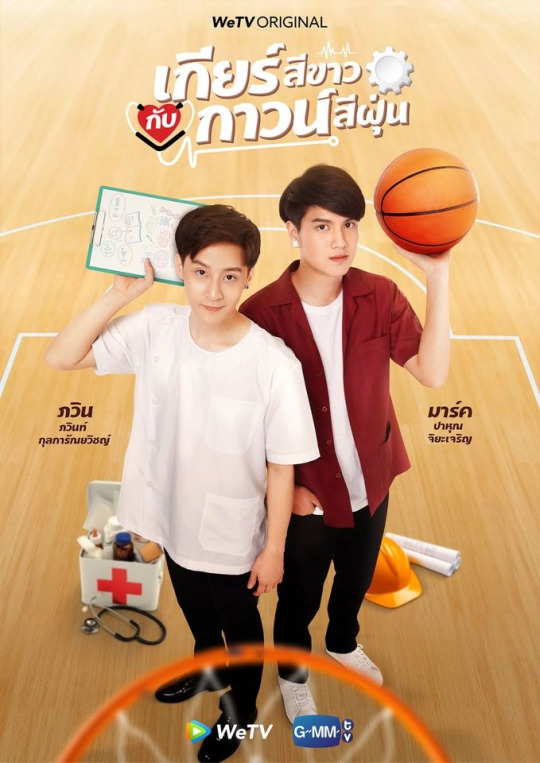
Watching this show has been a pleasure and also at times, frustrating. And I like to always rant about the negatives because it's important to criticise something so next time these mistakes aren't recreated. It's just the sad result of the potential lost from this show to make it one of the best of 2020. But instead of focusing on the negatives, I've decided to bring in the positives, the reason for why I enjoy mostly the character arcs and the use of subtext, symbolism and foreshadowing to bring depth to the story and characters as they grow and change throughout the show. So here's an analysis of My Gear and Your Gown episode 1-7.
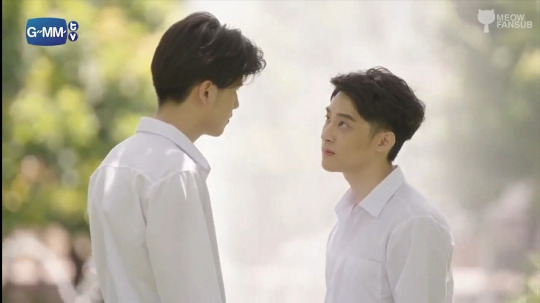
Manipulation, Deceit and Miscommunication
Itts hate for the class system (rich vs poor)
As much as I hate how Irrational Itt was during episode 7. I will admit that it's been hinted to the audience that this is how he will react, and this would be the reason for why he and Pai have relationship dynamic in the university arc. He's like a fuse ready to light up whenever he thinks he's been used or manipulated by the system/world. Itt shows hate and disdain for the rich, and we see this with Pai actually in episode 1 when he thinks he gets away with life quickly because he's rich and he judges him as to be someone who gets things quickly with manipulation and bribery. And he tells Pure straight away he hates that, he hates how the rich can get away with everything because they can play the system.
Next, the one thing he showed some care towards, and the reason for their fight was the club room no matter how stupid it was to fight over. We see how defensive he is of the space for people like him to come and enjoy things. Seeing as it's not easy for him to have the things he wants like dreams and hopes. From the beginning, it makes sense he's possessive of the things that matter to him and that he cares about. He's also lost a version of his moral compass; his mum plus I think his dad had also made him wary of adults and people in general with scheming, backstabbing or lack of loyalty (that he feels happened to his mother before she died of cancer).
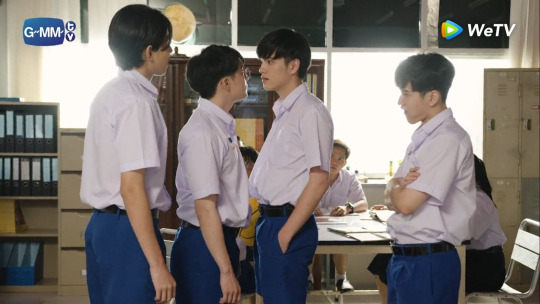
Itts oversensitive and prideful personality
So it's like all the stuff he said to Pure in episode 1-2 about hating being manipulated comes back to slap him and us in the face when he realises that Pai took a bribe to tutor him and take care of him and help him achieve his dream to become an engineer. It's not because of him just doing it willingly, but he had other motives. So Pai sending him tutoring lessons still without communicating to Itt that he could care less about the club room makes it even iffier and frustrating to Itt which is why he goes to his house and throws the notes in his face. He's like you're really going that far to get the stupid club room and you won't let it go but what about me and our friendship we've built.
He doesn't see that Pai cares more about him than anything else. All he sees is the first impression he had of Pai which is rich, likes to show off that he's successful and better than Itt and gets away with things through manipulation and bribery that Itt won't be able to get away with. And Pai doesn't try after trying once to tell him that, that's not it, he resigns himself to Itt hating him and refuses to communicate or show that it's not the club room he cares about which is just dumb from both of them.
It's more painful for Pai because we know he had an unrequited love for Itt and he's slowly giving up on the hassle and pain that brings, he's decided he's doomed to keep being alone as his one, and the only hero he cares about hates him and also sees him as a menace. He embodies that, decides to focus on what his parents want from him and the path he was meant to take from the beginning; medicine and give up on things that don't pertain to that.
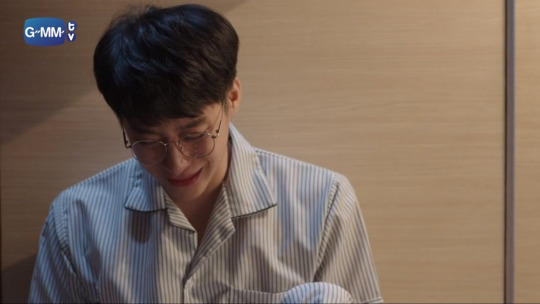
The consequences of Miscommunication
This is why Itt not returning the earring is sad because it's foreshadowing that the one thing Pai held onto for a representation of rebelling from his predestined path and suffocating future is now lost by the person he trusted the most. (analysed about in this post)
Furthermore, Itt is bad at miscommunication, and it's an annoying thing. He doesn't know how to apologise, and so he hides and proceeds to keep acting like he's still holding a grudge; this is why episode 6 was important it was showing how he works and why it will doom his relationship with Pai. Because Pai is someone who gives up easily and lets Itt stay mad. He doesn't try again to talk to Itt after the small smile scene (where you see the hope leave him to try) and the notes to get Itt to understand his feelings. He just resigns himself to being hated by Itt. And Itt even if he comes to a conclusion he's not as mad, he won't apologise or return because he's prideful and he doesn't know how to do that.
It was Waan and Pure who helped him make up with Pai in episode 6, and they seem okay with their own friendship and not willing to help bring the two together again to discuss. Which is sad and frustrating, but it's their business. Itt's over sensitive and prideful ego is what causes him to hurt Pai without truly knowing what it did to him. I'm guessing in University he'll get to see and understand, but I haven't read the book to see if it's just as angsty or if it's fluffy and he manages to reunite with Pai. Also, he seemed to slowly be getting close to recognising his feelings for Pai in episode 6, and I wonder if when we start university arc in episode 8 if he already has come to terms with it or if he still doesn't know he has them. Hopefully, he puts two and two together, and that's why he's chasing after Pai and helping him secretly in the trailer.
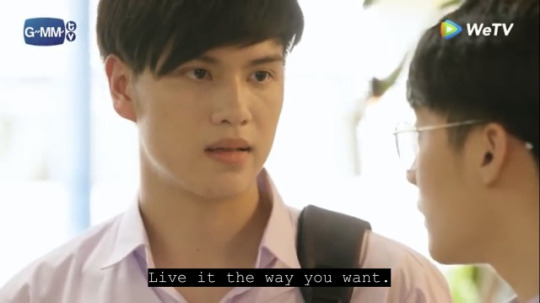
The loss of the earring: Foreshadowing and Symbolism
The use of earrings in My Gear and Gown
Don't think I have to spell this out too much, but the earring to Pai represents two things for him. In the rooftop scene in episode 7, he's so determined to hold onto these two things so he can be happy. Still, upon Itt refusing to give it to him and losing it forever, he resigns to the fact that these two things weren't meant to be his. Hence he becomes more robotic and following life rules ordained for him and accepting his loneliness as a norm. The earring represents:
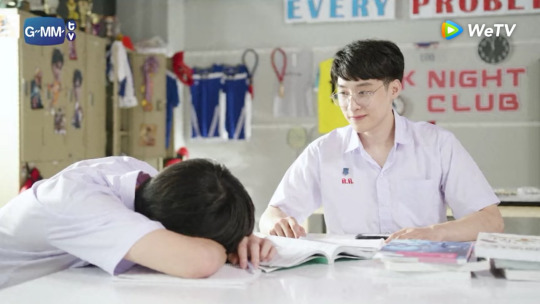
1. Itt to Pai
Itt manages to because of love and feelings pierce through Pai's walls and make him actually want to hope for something more for himself. He's so in awe of how great Itt is when it comes to strength; caring for his mum and being an all-star athlete. He's so grateful that despite disliking him, Itt still came to his rescue. And his feelings are uncontrollable, but he enjoys being with Itt because it makes him feel like he's doing something for himself. The earring is also not perfect when he first sees it, it's missing shades of colour and looks from afar like a rock/brick (which is what Itts name is in English).
The imperfections of the earring point to Itt and the way he's imperfect but Pai can't help but love that about him. It's like his life as a rich heir to his family's hospital is ordained to be on this perfect pathway, he must be smart, reasonable and on top always of everything. He must keep the reputation and dreams of his parents and family, and Itt shows up and shows him that it's okay to have little imperfections here and there it's okay to actually skew of that path, he gives Pai a reason to want to act out and discover what he truly wants for himself. And to break away from that lonely monotonous cycle he's found himself in from when he was born.
2. The hope for freedom and free will.
Again the conversation when Itt convinces Pai to get the earring is another sign of what the earring means to Pai. Instead of being selfless and just thinking of others, he can do what he wants to do, can find his own voice and opinions because he's human not a robot he doesn't have to stagnantly follow all the traditions and rules set before him. He can act out and learn what he truly wants in life.
Pai clings unto the earring because he holds onto that message, helping Itt and Tutoring Itt is the first time he does something he wants to, piercing his ears is the first time he does something rebellious and freeing. He's happy and feels less suffocated by all that is around him. Being with Itt and wearing the earring reminds him of what Itt told him he's free to make choices and to decide for himself what he wants.
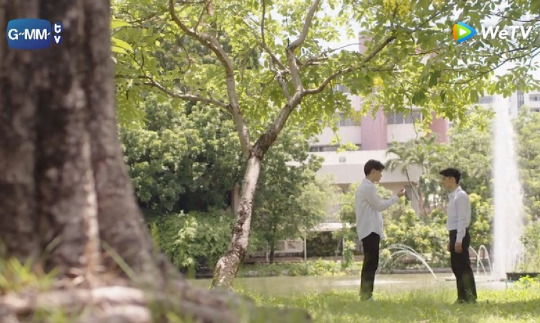
The loss of free will and hope of love
It's why the rooftop scene is painful, Itt holding back the earring, acting like he threw it away is a representation of Itt throwing away Pai's idea of free will and self-agency. Almost like the hope and glimpse at what it would be like to do things for himself and skew of the path is now closed because he realises it hurts him. It results in him ending up being hated, pushed to the side and taken for granted.
Just like with love the earring being lost represents love being removed from Pai's life because he decides to not rebel or find what he wants; there's no point when in doing what is ordained for him he'll be successful and protected from hurt and pain. He decides as Itt walks away and his mission is done to throw away all those thoughts and forget about Itt and love. And it sucks.
Losing the earring in episode 6 foreshadowed that Itt was going to lose Pai, or Pai was going to lose Itt in this case, and it immediately coincided with Itt over hearing about the bribe. That's why it hurts because the title my gear and your gown focused on the two earrings of these two, we've only seen the gown side of things with Pai, and so it's time to see Itts own link to the gear earing he finds later on.
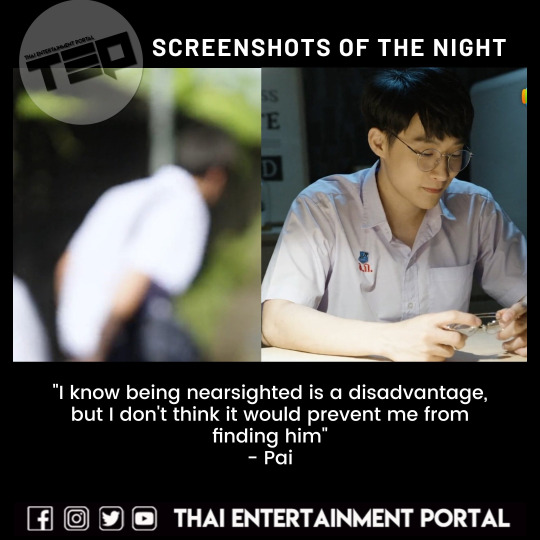
The loss of Pai’s Glasses
I also want to mention Pai's glasses. They are also a symbolic tool of his real self and clarity. Itt fixing them for him in episode 1 with a bandage shows what Itt is to him a healing influence for when his life seemed suffocating. But it also represents Pai's actual self and his need for clarity. For him, it's like losing his glasses is like losing a part of himself and also losing the ability to see makes him vulnerable, scared, hurt and weak.
Itt shows up and protects him, and helps fix it. In University Clarity has been lost, Pai's real self has been hidden and pushed down, and he's just a shell, the only thing I'm guessing making him interested in life again, is the introduction to someone known as Mr 950 who seems to keep an eye out for him and help him. Pai no longer wears his glasses as he mentioned in episode 1 and that shows that he's lost the most prominent symbol important to him something he actually did connect with, and a part of himself. He's become entirely the person he wanted to not be, the robotic stoic, monotone person who has to do what's right and be successful. He's also given up on clarity when it comes to love, he's lost any need for it, and he's shoved down those parts of himself that cared. This is why his glasses are heavily talked about at the beginning of the show. They represent him just as much as the earring represents Itt to him.
So yeah we're about to get into University, and it's going to be fun and nice to see Itt finally have to do something to win Pai back. Cannot wait to see who Mr 950 is and how Pai will return back to his hopeful romantic self again. And how Itt will make up for what he's done. Hopefully, the show picks up its pace and actually comes through with a good university arc to make up for the issues we've had so far with it.
MORE ANALYSIS ABOUT THE THEMES OF THE POSTS HERE
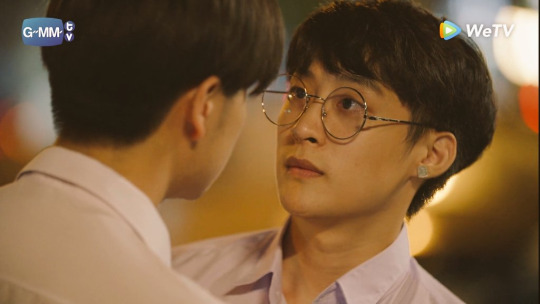
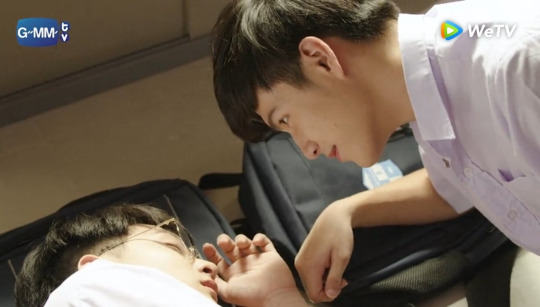
#thai bl#my gear and your gown#MGYG#ittpai#pai x itt#bl drama#gmmtv#analysis#cwg#fvete#win pawin#marc pahun
62 notes
·
View notes
Note
hi! ive been following your writing for a few years now and i drop by periodically to check if you have anything new posted, and im really surprised that you seem to be enjoying the untamed? im curious what you think about the show - its story and characters, the acting, the production, etc. idk if you know, but the untamed is the most successful example of a current trend in chinese entertainment, where popular online novels centered around a gay romance is adapted into a 'safe' drama.
continued:
due to the many explicit and implicit restrictions imposed on creative media in china, many crucial plot points have to be changed (often badly) or removed, including the nature of the relationship between the main characters. the untamed is considered the most loyal adaptation so far, but like all other works in the genre, it received criticism for weak acting and queerbaiting. that's why im really curious about what you think of the show as it is, as itself, free from its context.
if you're interested, you could also check out guardian! it features much better performance and chemistry by the leads imo, but the story was heavily botched bc the original incorporates and reinvents a lot of classic chinese folklore beautifully and stuff like that is considered disrespectful and not-pc. i think it's really sad how so many great pieces of writing with complex world-building and plotlines are simplified into... idek what to call them, but just, less than what they are.
im sorry this turned into a rant. as a mainland chinese person with oh so many frustrations about our current society, it's hard to comprehensively describe my feelings about the untamed's popularity. it's the first mainland chinese show/movie to gain this much organic interest abroad so i should be glad? but, but. anyway, yes, im sorry.
There’s no need to apologize for ranting, but I admit to some confusion as to whether you want your question addressed or the rant. Because I’m me and tend to be thorough, I’ll address everything, in reverse order.
First of all, I’m sorry that this show is sad to you. I’m sorry that the popularity of it is difficult. I’m also deeply sympathetic to your frustrations about your society, as I too am deeply frustrated by my own.
Secondly, yes, I’m aware of the context of The Untamed. I’m aware that the book it’s based on is a BL novel, and that, in order to align with Chinese politics, overt queerness was erased from the adaptation. I’m aware of the censure laws of gay media in China. I’m also aware that some aspects of necromancy and morality were adjusted to make the show more palatable for general audiences, but I’m fuzzier on those details. Lastly, I’m aware that the popularity of the show calls attention to certain things, such as fanfic, and that attention results in more censorship,
The fact of this erasure and this censure provokes a lot of questions: by consuming this product, which contains erasure and censure, do we engage in the erasure and censure? By posting gifs and writing fanfic and talking about this product, do we increase its popularity, thereby encouraging additional erasure and censure? By increasing the popularity of this product, do we diminish the popularity of the original gay morally gray canon, thereby decreasing representation? Do we discourage other authors in China from writing explicitly gay morally gray material? In short, are we allowed to enjoy this media?
I don’t know the answer to these questions. However, I do know that boycott is a very effective tool when it can inflict economic pain on the producer, or when it can exert pressure on an entity to change. That said, I feel like a lot of the calls to boycott certain media these days are a lot like telling people to stop driving their cars to stop climate change: it’s suggesting that individuals can solve the problem, which presupposes individuals are the problem, and therefore fails to address the scope of the problem, or present the possibility of a real solution. Not watching The Untamed isn’t going to change laws about portrayals of homosexuality onscreen in China, partly because the laws in China are a much bigger problem.
The other part of it is that The Untamed is coded queer, so if you run a successful boycott against it, you end up with . . . less queer TV. I know a whole lot less about China than I do about the Hays Code, but if you had told gay people during the Golden Age of Hollywood that they couldn’t enjoy movies that were coded queer because they weren’t explicitly queer, they’d have said you were crazy. In fact, many people will tell you that media that was coded queer was a big reason we got more explicit queer stuff later. And as I’m sure you’re aware, the US is still fighting that battle . . . partly because it wants to sell movies to China.
So then there’s a question about whether me, an American in the US, liking something coded queer from China but not explicitly queer--does that encourage Chinese censorship? Should I only support texts that are explicitly queer? But the answer is the same--it’s not addressing the scope of the problem, and by supporting texts that are coded queer, you could be paving the way in the future for something brighter.
But you weren’t talking about boycott! You were talking about your discomfort with the popularity with this show, which I accept. I understand feeling uncomfortable. I can only hope it makes you a bit more comfortable to know that plenty of fans are deeply aware of the context and do wrestle with the question of what liking this show means in the context of a society that would never allow aspects of the original to be portrayed onscreen.
Thirdly, I’m not against trying Guardian at some point, but by comparing the acting and chemistry of the leads to The Untamed, I feel like you prove our tastes are very different in these regards. I love the acting of the leads in The Untamed; I found their chemistry off the charts. It’s okay you don’t feel the same.
Lastly, you asked my opinion of The Untamed: its story and characters, the acting, the production, sans context of the canon upon which its based and censorship laws in China.
a. I love the overall story, but the plot has deep plot holes. Quite a few segments do not actually make sense to me, because the plot is so haywire. However, I’ve never cared that much about plot, except when it gets in the way of characters and themes, and for the most part, this plot serves its characters and themes, except when the parts they leave out are so confusing that I cannot follow the story. As for the story, it feels like it’s built for me, because ultimately it’s about moral decisions and how to make them; it’s about guilt and paying for mistakes; it’s about learning, changing your mind, and remaking yourself. Really, I’m not sure there are many stories I love more--except they killed my favorite character, and I almost quit. So, that certainly put a damper on things.
b. I love the characters most of all, although the villains are really two-dimensional. However, large parts of the plot are not Hero vs Villain, they’re Hero vs Society, and then some Hero vs Himself in a way that suggests the Hero is no longer a hero. I could talk about the characters forever, but suffice it to say I think they’re really strong. Also, the relationships are really exquisite, particularly when it comes to family dynamics. Unfortunately, they killed my favorite character off. Also unfortunately, there are six women in this show, only two of them are main characters, and every single one of them dies. It disgusts me.
c. I think the two leads are exceptional, in particular Xiao Zhan . . . when he’s not being too broad, which he is quite a bit. However, I do wonder how much of this is direction and production style, because in many instances, he’s quite subtle, and the choices he makes are astounding. Then there are times where it’s like they needed more footage, or wanted to drive home a point, and he turns on the extra, and it’s awful. It could just be him, but I actually feel it’s the case with most of the actors, which does make me think it’s a directing issue. Meng Ziyi never really has that problem though, because she is the most perfect of all. But then take He Peng, who I actually thought could be incredible, but every scene was just SO BROAD that I began to feel sorry for the poor dude having to act that part. But there is nothing to be said for Wang Zhuo Cheng, who really is just terrible, which is sad, because it’s a great part.
d. Production-wise, it’s really hit and miss. So much of the locations are truly beautiful. A lot of the costumes are too, unless the shot is too close. I actually don’t mind the wigs; I love the long hair. The CGI is terrible. And then while a lot of the shots are beautiful, some of them are awkward, and the pacing is really difficult, imo. It really seems like they wanted to drag it out, and there are so, so many scenes where I’m sort of embarrassed that we’re in the same scene or that we’re still looking at someone’s face, or that everyone is just standing there waiting for the shot to finally end.
I will say that film is a language that does differ from culture to culture. It could be that both the broadness of the acting and the awkwardness of the editing are my cultural lens based on American and a lot of western film. When I watched older Hollywood films, the acting is a lot more broad and maybe a little less “true” feeling, but I understand that it’s not the case everyone in the past was a bad actor. It was just a different style, so I’m not sure I’m equipped with the cultural knowledge of Chinese acting, cinematography, and editing to be able to really judge the value of these things.
I do know how I feel, which is that the editing is the biggest hurdle for me while watching the show. However, I feel that the beauty of it makes up for a lot, and the strength of the characters and themes really carries it.
I hope I addressed your points adequately, and I wish you well.
26 notes
·
View notes
Text
The Best Films of 2020
I can’t tell you anything novel or insightful about this year that has been stolen from our lives. I watched zero of these films in a theater, and I watched most of them half-asleep in moments that I stole from my children. Don’t worry, there are some jokes below.
GARBAGE
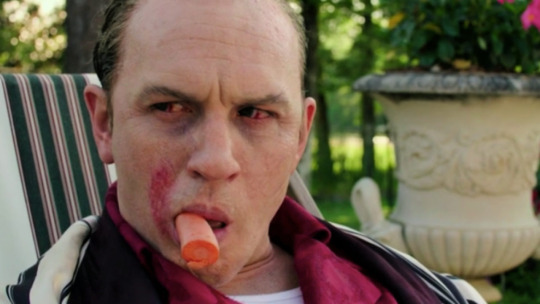
93. Capone (Josh Trank)- What is the point of this dinner theater trash? It takes place in the last year of Capone's life, when he was released from prison due to failing health and suffered a stroke in his Florida home. So it covers...none of the things that make Al Capone interesting? It's not historically accurate, which I have no problem with, but if you steer away from accuracy, then do something daring and exciting. Don't give me endless scenes of "Phonse"--as if the movie is running from the very person it's about--drawing bags of money that promise intrigue, then deliver nothing in return.
That being said, best "titular character shits himself" scene since The Judge.
92. Ammonite (Francis Lee)- I would say that this is the Antz to Portrait of a Lady on Fire's A Bug's Life, but it's actually more like the Cars 3 to Portrait of a Lady on Fire's Toy Story 1.
91. Ava (Tate Taylor)- Despite the mystery and inscrutability that usually surround assassins, what if we made a hitman movie but cared a lot about her personal life? Except neither the assassin stuff nor the family stuff is interesting?
90. Wonder Woman 1984 (Patty Jenkins)- What a miscalculation of what audiences loved about the first and wanted from the sequel. WW84 is silly and weightless in all of the ways that the first was elegant and confident. If the return of Pine is just a sort of phantom representation of Diana's desires, then why can he fly a real plane? If he is taking over another man's soul, then, uh, what ends up happening to that guy? For that matter, why is it not 1984 enough for Ronald Reagan to be president, but it is 1984 enough for the president to have so many Ronald Reagan signifiers that it's confusing? Why not just make a decision?
On paper, the me-first values of the '80s lend themselves to the monkey's paw wish logic of this plot. You could actually do something with the Star Wars program or the oil crisis. But not if the setting is played for only laughs and the screenplay explains only what it feels like.
89. Babyteeth (Shannon Murphy)- In this type of movie, there has to be a period of the Ben Mendelsohn character looking around befuddled about the new arrangement and going, "What's this now--he's going to be...living with us? The guy who tried to steal our medication? This is crazy!" But that's usually ten minutes, and in this movie it's an hour. I was so worn out by the end.
88. You Should Have Left (David Koepp)- David Koepp wrote Jurassic Park, so he's never going to hell, but how dare he start caring about his own mystery at the hour mark. There's a forty-five minute version of this movie that could get an extra star from me, and there's a three-hour version of Amanda Seyfried walking around in athleisure that would get four stars from me. What we actually get? No thanks.
87. Black Is King (Beyonce, et al.)- End your association with The Lion King, Bey. It has resulted in zero bops.
ADMIRABLE FAILURES
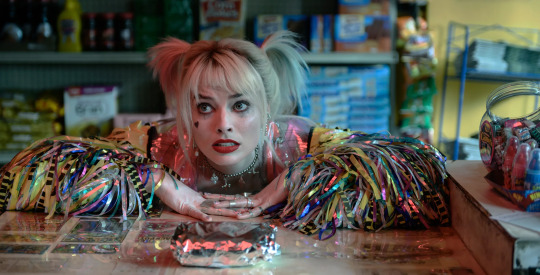
86. Birds of Prey (And the Fantabulous Emancipation of One Harley Quinn) (Cathy Yan)- There's nothing too dysfunctional in the storytelling or performances, but Birds of Prey also doesn't do a single thing well. I would prefer something alive and wild, even if it were flawed, to whatever tame belt-level formula this is.
85. The Turning (Floria Sigismondi)- This update of The Turn of the Screw pumps the age of Miles up to high school, which creates some horny creepiness that I liked. But the age of the character also prevents the ending of the novel from happening in favor of a truly terrible shrug. I began to think that all of the patience that the film showed earlier was just hesitance for its own awful ending.
I watched The Turning as a Mackenzie Davis Movie Star heat check, and while I'm not sure she has the magnetism I was looking for, she does have a great teacher voice, chastening but maternal.
84. Bloodshot (David Wilson)- A whole lot of Vin Diesel saying he's going to get revenge and kill a bunch of dudes; not a whole lot of Vin Diesel actually getting revenge and killing a bunch of dudes.
83. Downhill (Nat Faxon and Jim Rash)- I was an English major in college, which means I ended up locking myself into literary theories that, halfway through the writing of an essay, I realized were flawed. But rather than throw out the work that I had already proposed, I would just keep going and see if I could will the idea to success.
So let's say you have a theory that you can take Force Majeure by Ruben Ostlund, one of the best films of its year, and remake it so that its statement about familial anxiety could apply to Americans of the same age and class too...if it hadn't already. And maybe in the first paragraph you mess up by casting Will Ferrell and Julia Louis-Dreyfus, people we are conditioned to laugh at, when maybe this isn't that kind of comedy at all. Well, don't throw it away. You can quote more--fill up the pages that way--take an exact shot or scene from the original. Does that help? Maybe you can make the writing more vigorous and distinctive by adding a character. Is that going to make this baby stand out? Maybe you could make it more personal by adding a conclusion that is slightly more clever than the rest of the paper?
Or perhaps this is one you're just not going to get an A on.
82. Hillbilly Elegy (Ron Howard)- I watched this melodrama at my mother's encouragement, and, though I have been trying to pin down her taste for decades, I think her idea of a successful film just boils down to "a lot of stuff happens." So in that way, Ron Howard's loss is my gain, I guess.
There is no such thing as a "neutral Terminator."
81. Relic (Natalie Erika James)- The star of the film is Vanessa Cerne's set decoration, but the inert music and slow pace cancel out a house that seems neglected slowly over decades.
80. Buffaloed (Tanya Wexler)- Despite a breathless pace, Buffaloed can't quite congeal. In trying to split the difference between local color hijinks and Moneyballed treatise on debt collection, it doesn't commit enough to either one.
Especially since Zoey Deutch produced this one in addition to starring, I'm getting kind of worried about boo's taste. Lot of Two If by Seas; not enough While You Were Sleepings.
79. Like a Boss (Miguel Arteta)- I chuckled a few times at a game supporting cast that is doing heavy lifting. But Like a Boss is contrived from the premise itself--Yeah, what if people in their thirties fell out of friendship? Do y'all need a creative consultant?--to the escalation of most scenes--Why did they have to hide on the roof? Why do they have to jump into the pool?
The movie is lean, but that brevity hurts just as much as it helps. The screenplay knows which scenes are crucial to the development of the friendship, but all of those feel perfunctory, in a different gear from the setpieces.
To pile on a bit: Studio comedies are so bare bones now that they look like Lifetime movies. Arteta brought Chuck & Buck to Sundance twenty years ago, and, shot on Mini-DV for $250,000, it was seen as a DIY call-to-bootstraps. I guarantee that has more setups and locations and shooting days than this.
78. Eurovision Song Contest: The Story of Fire Saga (David Dobkin)- Add Dan Stevens to the list of supporting players who have bodied Will Ferrell in his own movie--one that he cared enough to write himself.
Like Downhill, Ferrell's other 2020 release, this isn't exactly bad. It's just workmanlike and, aside from the joke about Demi Lovato's "uninformed" ghost, frustratingly conventional.
77. The Traitor (Marco Bellochio)- Played with weary commitment by Pierfrancesco Favino, Tomasso Buscetta is "credited" as the first informant of La Cosa Nostra. And that sounds like an interesting subject for a "based on a true story" crime epic, right? Especially when you find out that Buscetta became a rat out of principle: He believed that the mafia to which he had pledged his life had lost its code to the point that it was a different organization altogether.
At no point does Buscetta waver or even seem to struggle with his decision though, so what we get is less conflicted than that description might suggest. None of these Italian mob movies glorify the lifestyle, so I wasn't expecting that. But if the crime doesn't seem enticing, and snitching on the crime seems like forlorn duty, and everything is pitched with such underhanded matter-of-factness that you can't even be sure when Buscetta has flipped, then what are we left with? It was interesting seeing how Italian courts work, I guess?
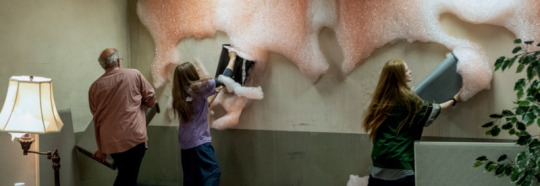
76. Kajillionaire (Miranda July)- This is another movie so intent on building atmosphere and lore that it takes too long to declare what it is. When the protagonist hits a breaking point and has to act, she has only a third of a film to grow. So whispery too.
Gina Rodriguez is the one to inject life into it. As soon as her motormouth winds up, the film slips into a different gear. The atmosphere and lore that I mentioned reeks of artifice, but her character is believably specific. Beneath a basic exterior is someone who is authentically caring but still morally compromised, beholden to the world that the other characters are suspicious of.
75. Scoob! (Tony Cervone)- The first half is sometimes clever, but it hammers home the importance of friendship while separating the friends.
The second half has some positive messaging, but your kids' movie might have a problem with scale if it involves Alexander the Great unlocking the gates of the Underworld.
My daughter loved it.
74. The Lovebirds (Michael Showalter)- If I start talking too much about this perfectly fine movie, I end up in that unfair stance of reviewing the movie I wanted, not what is actually there.* As a fan of hang-out comedies, I kind of resent that any comedy being made now has to be rolled into something more "exciting," whether it's a wrongfully accused or mistaken identity thriller or some other genre. Such is the post-Game Night world. There's a purposefully anti-climactic note that I wish The Lovebirds had ended on, but of course we have another stretch of hiding behind boats and shooting guns. Nanjiani and Rae are really charming leads though.
*- As a New Orleanian, I was totally distracted by the fake aspects of the setting too. "Oh, they walked to Jefferson from downtown? Really?" You probably won't be bothered by the locations.
73. Sonic the Hedgehog (Jeff Fowler)- In some ways the storytelling is ambitious. (I'm speaking for only myself, but I'm fine with "He's a hedgehog, and he's really fast" instead of the owl mother, teleportation backstory. Not everything has to be Tolkien.) But that ambition doesn't match the lack of ambition in the comedy, which depends upon really hackneyed setups and structures. Guiding Jim Carrey to full alrighty-then mode was the best choice anyone made.
72. Malcolm & Marie (Sam Levinson)- The stars move through these long scenes with agility and charisma, but the degree of difficulty is just too high for this movie to reach what it's going for.
Levinson is trying to capture an epic fight between a couple, and he can harness the theatrical intensity of such a thing, but he sacrifices almost all of the nuance. In real life, these knock-down-drag-outs can be circular and indirect and sad in a way that this couple's manipulation rarely is. If that emotional truth is all this movie is trying to achieve, I feel okay about being harsh in my judgment of how well it does that.
71. Beanpole (Kantemir Balagov)- Elusive in how it refuses to declare itself, forthright in how punishing it is. The whole thing might be worth it for a late dinner scene, but I'm getting a bit old to put myself through this kind of misery.
70. The Burnt Orange Heresy (Giuseppe Capotondi)- Silly in good ways until it's silly in bad ways. Elizabeth Debicki remains 6'3".
69. Everybody’s Everything (Sebastian Jones and Ramez Silyan)- As a person who listened to Lil Peep's music, I can confidently say that this documentary is overstating his greatness. His death was a significant loss, as the interview subjects will all acknowledge, but the documentary is more useful as a portrait of a certain unfocused, rapacious segment of a generation that is high and online at all times.
68. The Witches (Robert Zemeckis)- Robert Zemeckis, Kenya Barris, and Guillermo Del Toro are the credited screenwriters, and in a fascinating way, you can see the imprint of each figure on the final product. Adapting a very European story to the old wives' tales of the American South is an interesting choice. Like the Nicolas Roeg try at this material, Zemeckis is not afraid to veer into the terrifying, and Octavia Spencer's pseudo witch doctor character only sells the supernatural. From a storytelling standpoint though, it seems as if the obstacles are overcome too easily, as if there's a whole leg of the film that has been excised. The framing device and the careful myth-making of the flashback make promises that the hotel half of the film, including the abrupt ending, can't live up to.
If nothing else, Anne Hathaway is a real contender for Most On-One Performance of the year.
67. Irresistible (Jon Stewart)- Despite a sort of imaginative ending, Jon Stewart's screenplay feels more like the declarative screenplay that would get you hired for a good movie, not a good screenplay itself. It's provocative enough, but it's clumsy in some basic ways and never evades the easy joke.
For example, the Topher Grace character is introduced as a sort of assistant, then is re-introduced an hour later as a polling expert, then is shown coaching the candidate on presentation a few scenes later. At some point, Stewart combined characters into one role, but nothing got smoothed out.
ENDEARING CURIOSITIES WITH BIG FLAWS
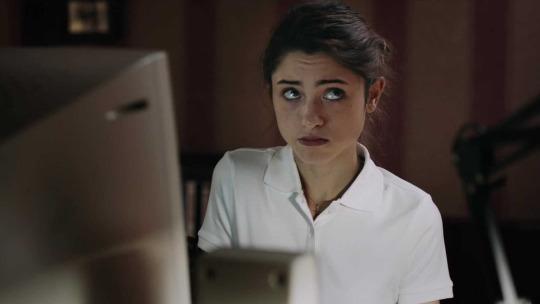
66. Yes, God, Yes (Karen Maine)- Most people who are Catholic, including me, are conflicted about it. Most people who make movies about being Catholic hate it and have an axe to grind. This film is capable of such knowing wit and nuance when it comes to the lived-in details of attending a high school retreat, but it's more concerned with taking aim at hypocrisy in the broad way that we've seen a million times. By the end, the film is surprisingly all-or-nothing when Christian teenagers actually contain multitudes.
Part of the problem is that Karen Maine's screenplay doesn't know how naive to make the Alice character. Sometimes she's reasonably naive for a high school senior in 2001; sometimes she's comically naive so that the plot can work; and sometimes she's stupid, which isn't the same as naive.
65. Bad Boys for Life (Adil El Arbi and Bilall Fallah)- This might be the first buddy cop movie in which the vets make peace with the tech-comm youngs who use new techniques. If that's the only novelty on display here--and it is--then maybe that's enough. I laughed maybe once. Not that the mistaken identity subplot of Bad Boys 1 is genius or anything, but this entry felt like it needed just one more layer to keep it from feeling as basic as it does. Speaking of layers though, it's almost impossible to watch any Will Smith movie now without viewing it through the meta-narrative of "What is Will Smith actually saying about his own status at this point in his career?" He's serving it up to us.
I derived an inordinate amount of pleasure from seeing the old school Simpson/Bruckheimer logo.
64. The Gentlemen (Guy Ritchie)- Look, I'm not going to be too negative on a movie whose crime slang is so byzantine that it has to be explained with subtitles. That's just me. I'm a simple man. But I can tell you that I tuned out pretty hard after seven or eight double-crosses.
The bloom is off the rose a bit for Ritchie, but he can still nail a music cue. I've been waiting for someone to hit "That's Entertainment" the way he does on the end credits.
63. Bad Hair (Justin Simien)- In Bad Hair, an African-American woman is told by her boss at a music video channel in 1989 that straightening her hair is the way to get ahead; however, her weave ends up having a murderous mind of its own. Compared to that charged, witty logline, the execution of the plot itself feels like a laborious, foregone conclusion. I'm glad that Simien, a genuinely talented writer, is making movies again though. Drop the skin-care routine, Van Der Beek!
62. Greyhound (Aaron Schneider)- "If this is the type of role that Tom Hanks writes for himself, then he understands his status as America's dad--'wise as the serpent, harmless as the dove'--even better than I thought."
"America's Dad! Aye aye, sir!"
"At least half of the dialogue is there for texture and authenticity, not there to be understood by the audience."
"Fifty percent, Captain!"
"The environment looks as fake as possible, but I eventually came around to the idea that the movie is completely devoid of subtext."
"No subtext to be found, sir!"
61. Mank (David Fincher)- About ten years ago, the Creative Screenwriting podcast spent an hour or so with James Vanderbilt, the writer of Zodiac and nothing else that comes close, as he relayed the creative paces that David Fincher pushed him through. Hundreds of drafts and years of collaborative work eventuated in the blueprint for Fincher's most exacting, personal film, which he didn't get a writing credit on only because he didn't seek one.
Something tells me that Fincher didn't ask for rewrites from his dead father. No matter what visuals and performances the director can coax from the script--and, to be clear, these are the worst visuals and performances of his career--they are limited by the muddy lightweight pages. There are plenty of pleasures, like the slippery election night montage or the shakily platonic relationship between Mank and Marion. But Fincher hadn't made a film in six years, and he came back serving someone else's master.
60. Tesla (Michael Almereyda)-
"You live inside your head."
"Doesn't everybody?"
As usual, Almereyda's deconstructions are invigorating. (No other moment can match the first time Eve Hewson's Anne fact-checks something with her anachronistic laptop.) But they don't add up to anything satisfying because Tesla himself is such an opaque figure. Driven by the whims of his curiosity without a clear finish line, the character gives Hawke something enigmatic to play as he reaches deep into a baritone. But he's too inward to lend himself to drama. Tesla feels of a piece with Almereyda's The Experimenter, and that's the one I would recommend.
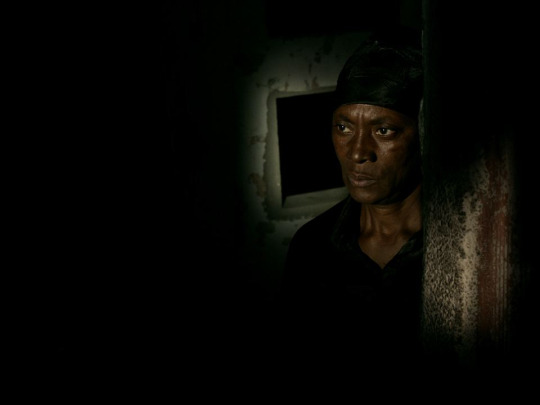
59. Vitalina Varela (Pedro Costa)- I can't oversell how delicately beautiful this film is visually. There's a scene in which Vitalina lugs a lantern into a church, but we get several seconds of total darkness before that one light source carves through it and takes over part of the frame. Each composition is as intricate as it is overpowering, achieving a balance between stark and mannered.
That being said, most of the film is people entering or exiting doors. I felt very little of the haunting loss that I think I was supposed to.
58. The Rhythm Section (Reed Morano)- Call it the Timothy Hutton in The General's Daughter Corollary: If a name-actor isn't in the movie much but gets third billing, then, despite whom he sends the protagonist to kill, he is the Actual Bad Guy.
Even if the movie serves up a lot of cliche, the action and sound design are visceral. I would like to see more from Morano.
57. Red, White and Blue (Steve McQueen)- Well-made and heartfelt even if it goes step-for-step where you think it will.
Here's what I want to know though: In the academy training sequence, the police cadets have to subdue a "berserker"; that is, a wildman who swings at their riot gear with a sledgehammer. Then they get him under control, and he shakes their hands, like, "Good angle you took on me there, mate." Who is that guy and where is his movie? Is this full-time work? Is he a police officer or an independent contractor? What would happen if this exercise didn't go exactly as planned?
56. Wolfwalkers (Tomm Moore and Ross Stewart)- The visuals have an unfinished quality that reminded me of The Tale of Princess Kaguya--the center of a flame is undrawn white, and fog is just negative space. There's an underlying symmetry to the film, and its color palette changes with mood.
Narratively, it's pro forma and drawn-out. Was Riley in Inside Out the last animated protagonist to get two parents? My daughter stuck with it, but she needed a lot of context for the religious atmosphere of 17th century Ireland.
55. What She Said: The Art of Pauline Kael (Rob Garver)- The film does little more than one might expect; it's limited in the way that any visual medium is when trying to sum up a woman of letters. But as far as education for Kael's partnership with Warren Beatty or the idea of The New Yorker paying her for only six months out of the year, it was useful for me.
Although Garver isn't afraid to point to the work that made Kael divisive, it would have been nice to have one or two interview subjects who questioned her greatness, rather than the crew of Paulettes who, even when they do say something like, "Sometimes I radically disagreed with her," do it without being able to point to any specifics.
54. Beastie Boys Story (Spike Jonze)- As far as this Spike Jonze completist is concerned, this is more of a Powerpoint presentation than a movie, Beastie Boys Story still warmed my heart, making me want to fire up Paul's Boutique again and take more pictures of my buddies.
53. Tenet (Christopher Nolan)- Cool and cold, tantalizing and frustrating, loud and indistinct, Tenet comes close to Nolan self-parody, right down to the brutalist architecture and multiple characters styled like him. The setpieces grabbed me, I'll admit.
Nolan's previous film, which is maybe his best, was "about" a lot and just happened to play with time; Tenet is only about playing with time.
PRETTY GOOD MOVIES
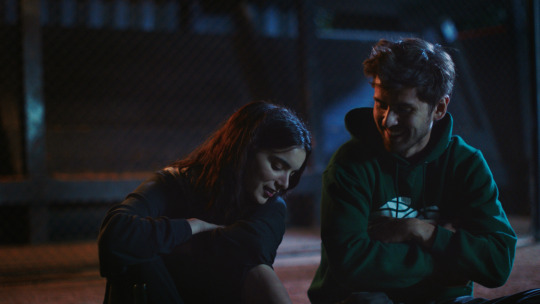
52. Shithouse (Cooper Raiff)- "Death is ass."
There's such a thing as too naturalistic. If I wanted to hear how college freshmen really talked, I would hang out with college freshmen. But you have to take the good verisimilitude with the bad, and good verisimilitude is the mother's Pod Save America t-shirt.
There are some poignant moments (and a gonzo performance from Logan Miller) in this auspicious debut from Cooper Raiff, the writer/director/editor/star. But the second party sequence kills some of the momentum, and at a crucial point, the characters spell out some motivation that should have stayed implied.
51. Totally Under Control (Alex Gibney, Ophelia Harutyunyan, Suzanne Hillinger)- As dense and informative as any other Gibney documentary with the added flex of making it during the pandemic it is investigating.
But yeah, why am I watching this right now? I don't need more reasons to be angry with Trump, whom this film calmly eviscerates. The directors analyze Trump's narcissism first through his contradictions of medical expertise in order to protect the economy that could win him re-election. Then it takes aim at his hiring based on loyalty instead of experience. But you already knew that, which is the problem with the film, at least for now.
50. Happiest Season (Clea Duvall)- I was in the perfect mood to watch something this frothy and bouncy. Every secondary character receives a moment in the sun, and Daniel Levy gets a speech that kind of saves the film at a tipping point.
I must say though: I wanted to punch Harper in her stupid face. She is a terrible romantic partner, abandoning or betraying Abby throughout the film and dissembling her entire identity to everyone else in a way that seems absurd for a grown woman in 2020. Run away, Kristen. Perhaps with Aubrey Plaza, whom you have more chemistry with. But there I go shipping and aligning myself with characters, which only proves that this is an effective romantic comedy.
49. The Way Back (Gavin O’Connor)- Patient but misshapen, The Way Back does just enough to overcome the cliches that are sort of unavoidable considering the genre. (I can't get enough of the parent character who, for no good reason, doesn't take his son's success seriously. "Scholarship? What he's gotta do is put his nose in them books! That's why I don't go to his games. [continues moving boxes while not looking at the other character] Now if you'll excuse me while I wait four scenes before showing up at a game to prove that I'm proud of him after all...")
What the movie gets really right or really wrong in the details about coaching and addiction is a total crap-shoot. But maybe I've said too much already.
48. The Whistlers (Corneliu Porumboiu)- Porumboiu is a real artist who seems to be interpreting how much surveillance we're willing to acknowledge and accept, but I won't pretend to have understood much of the plot, the chapters or which are told out of order. Sometimes the structure works--the beguiling, contextless "high-class hooker" sequence--but I often wondered if the film was impenetrable in the way that Porumboiu wanted it to be or impenetrable in the way he didn't.
To tell you the truth, the experience kind of depressed me because I know that, in my younger days, this film is the type of thing that I would re-watch, possibly with the chronology righted, knowing that it is worth understanding fully. But I have two small children, and I'm exhausted all the time, and I kind of thought I should get some credit for still trying to catch up with Romanian crime movies in the first place.
47. Borat Subsequent Moviefilm (Jason Woliner)- I laughed too much to get overly critical, but the film is so episodic and contrived that it's kind of exhausting by the end--even though it's achieving most of its goals. Maybe Borat hasn't changed, but the way our citizens own their ugliness has.
46. First Cow (Kelly Reichardt)- Despite how little happens in the first forty minutes, First Cow is a thoughtful capitalism parable. Even though it takes about forty minutes to get going, the friendship between Cookie and King-Lu is natural and incisive. Like Reichardt's other work, the film's modest premise unfolds quite gracefully, except for in the first forty minutes, which are uneventful.
45. Les Miserables (Ladj Ly)- I loved parts of the film--the disorienting, claustrophobic opening or the quick look at the police officers' home lives, for example. But I'm not sure that it does anything very well. The needle the film tries to thread between realism and theater didn't gel for me. The ending, which is ambiguous in all of the wrong ways, chooses the theatrical. (If I'm being honest, my expectations were built up by Les Miserables' Jury Prize at Cannes, and it's a bit superficial to be in that company.)
If nothing else, it's always helpful to see how another country's worst case scenario in law enforcement would look pretty good over here.
44. Bad Education (Cory Finley)- The film feels too locked-down and small at the beginning, so intent on developing the protagonist neutrally that even the audience isn't aware of his secrets. So when he faces consequences for those secrets, there's a disconnect. Part of tragedy is seeing the doom coming, right?
When it opens up, however, it's empathetic and subtle, full of a dry irony that Finley is already specializing in after only one other feature. Geraldine Viswanathan and Allison Janney get across a lot of interiority that is not on the page.
43. The Trip to Greece (Michael Winterbottom)- By the fourth installment, you know whether you're on board with the franchise. If you're asking "Is this all there is?" to Coogan and Brydon's bickering and impressions as they're served exotic food in picturesque settings, then this one won't sway you. If you're asking "Is this all there is?" about life, like they are, then I don't need to convince you.
I will say that The Trip to Spain seemed like an enervated inflection point, at which the squad could have packed it in. The Trip to Greece proves that they probably need to keep doing this until one of them dies, which has been the subtext all along.
42. Feels Good Man (Arthur Jones)- This documentary centers on innocent artist Matt Furie's helplessness as his Pepe the Frog character gets hijacked by the alt-right. It gets the hard things right. It's able to, quite comprehensively, trace a connection from 4Chan's use of Pepe the Frog to Donald Trump's near-assuming of Pepe's ironic deniability. Director Arthur Jones seems to understand the machinations of the alt-right, and he articulates them chillingly.
The easy thing, making us connect to Furie, is less successful. The film spends way too much time setting up his story, and it makes him look naive as it pits him against Alex Jones in the final third. Still, the film is a quick ninety-two minutes, and the highs are pretty high.
41. The Old Guard (Gina Prince-Bythewood)- Some of the world-building and backstory are handled quite elegantly. The relationships actually do feel centuries old through specific details, and the immortal conceit comes together for an innovative final action sequence.
Visually and musically though, the film feels flat in a way that Prince-Bythewood's other films do not. I blame Netflix specs. KiKi Layne, who tanked If Beale Street Could Talk for me, nearly ruins this too with the child-actory way that she stresses one word per line. Especially in relief with one of our more effortless actresses, Layne is distracting.
40. The Trial of the Chicago 7 (Aaron Sorkin)- Whenever Sacha Baron Cohen's Abbie Hoffman opens his mouth, the other defendants brace themselves for his dismissive vulgarity. Even when it's going to hurt him, he can't help but shoot off at the mouth. Of course, he reveals his passionate and intelligent depths as the trial goes on. The character is the one that Sorkin's screenplay seems the most endeared to: In the same way that Hoffman can't help but be Hoffman, Sorkin can't help but be Sorkin. Maybe we don't need a speech there; maybe we don't have to stretch past two hours; maybe a bon mot diffuses the tension. But we know exactly what to expect by now. The film is relevant, astute, witty, benevolent, and, of course, in love with itself. There are a handful of scenes here that are perfect, so I feel bad for qualifying so much.
A smaller point: Daniel Pemberton has done great work in the past (Motherless Brooklyn, King Arthur, The Man from U.N.C.L.E.), but the first sequence is especially marred by his sterile soft-rock approach.
GOOD MOVIES
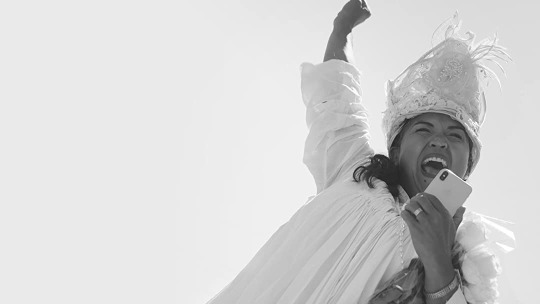
39. Time (Garrett Bradley)- The key to Time is that it provides very little context. Why the patriarch of this family is serving sixty years in prison is sort of besides the point philosophically. His wife and sons have to move on without him, and the tragedy baked into that fact eclipses any notion of what he "deserved." Feeling the weight of time as we switch back and forth between a kid talking about his first day of kindergarten and that same kid graduating from dentistry school is all the context we need. Time's presentation can be quite sumptuous: The drone shot of Angola makes its buildings look like crosses. Or is it X's?
At the same time, I need some context. When director Garrett Bradley withholds the reason Robert's in prison, and when she really withholds that Fox took a plea and served twelve years, you start to see the strings a bit. You could argue that knowing so little about why, all of a sudden, Robert can be on parole puts you into the same confused shoes as the family, but it feels manipulative to me. The film is preaching to the choir as far as criminal justice goes, which is fine, but I want it to have the confidence to tell its story above board.
38. Bloody Nose, Empty Pockets (Turner Ross and Bill Ross IV)- I have a barfly friend whom I see maybe once a year. When we first set up a time to meet, I kind of dread it and wonder what we'll have to talk about. Once we do get together, we trip on each other's words a bit, fumbling around with the rhythm of conversation that we mastered decades ago. He makes some kind of joke that could have been appropriate then but isn't now.
By the end of the day, hours later, we're hugging and maybe crying as we promise each other that we won't wait as long next time.
That's the exact same journey that I went on with this film.
37. Underwater (William Eubank)- Underwater is a story that you've seen before, but it's told with great confidence and economy. I looked up at twelve minutes and couldn't believe the whole table had been set. Kristen plays Ripley and projects a smart, benevolent poise.
36. The Lodge (Veronika Franz and Severin Fiala)- I prefer the grounded, manicured first half to the more fantastic second half. The craziness of the latter is only possible through the hard work of the former though. As with Fiala and Franz's previous feature, the visual rhymes and motifs get incorporated into the soup so carefully that you don't realize it until they overwhelm you in their bleak glory.
Small note: Alicia Silverstone, the male lead's first wife, and Riley Keough, his new partner, look sort of similar. I always think that's a nice note: "I could see how he would go for her."
35. Miss Americana (Lana Wilson)- I liked it when I saw it as a portrait of a person whose life is largely decided for her but is trying to carve out personal spaces within that hamster wheel. I loved it when I realized that describes most successful people in their twenties.
34. Sound of Metal (Darius Marder)- Riz Ahmed is showing up on all of the best performances of the year lists, but Sound of Metal isn't in anyone's top ten films of the year. That's about right. Ahmed's is a quiet, stubborn performance that I wish was in service of more than the straight line that we've seen before.
In two big scenes, there's this trick that Ahmed does, a piecing together of consequences with his eyes, as if he's moving through a flow chart in real time. In both cases, the character seems locked out and a little slower than he should be, which is, of course, why he's facing the consequences in the first place. To be charitable to a film that was a bit of a grind, it did make me notice a thing a guy did with his eyes.
33. Pieces of a Woman (Kornel Mundruczo)- Usually when I leave acting showcases like this, I imagine the film without the Oscar-baiting speeches, but this is a movie that specializes in speeches. Pieces of a Woman is being judged, deservedly so, by the harrowing twenty-minute take that opens the film, which is as indulgent as it is necessary. But if the unbroken take provides the "what," then the speeches provide the "why."
This is a film about reclaiming one's body when it rebels against you and when other people seek ownership of it. Without the Ellen Burstyn "lift your head" speech or the Vanessa Kirby show-stopper in the courtroom, I'm not sure any of that comes across.
I do think the film lets us off the hook a bit with the LaBoeuf character, in the sense that it gives us reasons to dislike him when it would be more compelling if he had done nothing wrong. Does his half-remembering of the White Stripes count as a speech?
32. Ma Rainey’s Black Bottom (George C. Wolfe)- This is such a play, not only in the locked-down location but also through nearly every storytelling convention: "Where are the two most interesting characters? Oh, running late? They'll enter separately in animated fashion?" But, to use the type of phrase that the characters might, "Don't hate the player; hate the game."
Perhaps the most theatrical note in this treatise on the commodification of expression is the way that, two or three times, the proceedings stop in their tracks for the piece to declare loudly what it's about. In one of those clear-outs, Boseman, who looks distractingly sick, delivers an unforgettable monologue that transports the audience into his character's fragile, haunted mind. He and Viola Davis are so good that the film sort of buckles under their weight, unsure of how to transition out of those spotlight moments and pretend that the story can start back up. Whatever they're doing is more interesting than what's being achieved overall.
31. Another Round (Thomas Vinterberg)- It's definitely the film that Vinterberg wanted to make, but despite what I think is a quietly shattering performance from Mikkelsen, Another Round moves in a bit too much of a straight line to grab me fully. The joyous final minutes hint at where it could have gone, as do pockets of Vinterberg's filmography, which seems newly tethered to realism in a way that I don't like. The best sequences are the wildest ones, like the uproarious trip to the grocery store for fresh cod, so I don't know why so much of it takes place in tiny hallways at magic hour. I give the inevitable American remake* permission to use these notes.
*- Just spitballing here. Martin: Will Ferrell, Nikolaj (Nick): Ben Stiller, Tommy: Owen Wilson, Peter: Craig Robinson
30. The Invisible Man (Leigh Whannell)- Exactly what I wanted. Exactly what I needed.
I think a less conclusive finale would have been better, but what a model of high-concept escalation. This is the movie people convinced me Whannell's Upgrade was.
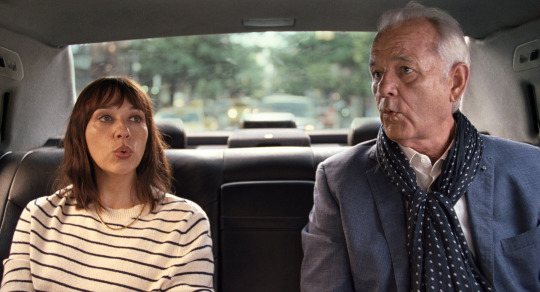
29. On the Rocks (Sofia Coppola)- Slight until the Mexican sojourn, which expands the scope and makes the film even more psychosexual than before. At times it feels as if Coppola is actively simplifying, rather than diving into the race and privilege questions that the Murray character all but demands.
As for Murray, is the film 50% worse without him? 70%? I don't know if you can run in supporting categories if you're the whole reason the film exists.
28. Mangrove (Steve McQueen)- The first part of the film seemed repetitive and broad to me. But once it settled in as a courtroom drama, the characterization became more shaded, and the filmmaking itself seemed more fluid. I ended up being quite outraged and inspired.
27. Shirley (Josephine Decker)- Josephine Decker emerges as a real stylist here, changing her foggy, impressionistic approach not one bit with a little more budget. Period piece and established actors be damned--this is still as much of a reeling fever dream as Madeline's Madeline. Both pieces are a bit too repetitive and nasty for my taste, but I respect the technique.
Here's my mandatory "Elisabeth Moss is the best" paragraph. While watching her performance as Shirley Jackson, I thought about her most famous role as Peggy on Mad Men, whose inertia and need to prove herself tied her into confidence knots. Shirley is almost the opposite: paralyzed by her worldview, certain of her talent, rejecting any empathy. If Moss can inhabit both characters so convincingly, she can do anything.
26. An American Pickle (Brandon Trost)- An American Pickle is the rare comedy that could actually use five or ten extra minutes, but it's a surprisingly heartfelt and wholesome stretch for Rogen, who is earnest in the lead roles.
25. The King of Staten Island (Judd Apatow)- At two hours and fifteen minutes, The King of Staten Island is probably the first Judd Apatow film that feels like the exact right length. For example, the baggy date scene between a gracious Bill Burr and a faux-dowdy Marisa Tomei is essential, the sort of widening of perspective that something like Trainwreck was missing.
It's Pete Davidson's movie, however, and though he has never been my cup of tea, I think he's actually quite powerful in his quiet moments. The movie probes some rare territory--a mentally ill man's suspicion that he is unlovable, a family's strategic myth-making out of respect for the dead. And when Davidson shows up at the firehouse an hour and fifteen minutes in, it feels as if we've built to a last resort.
24. Swallow (Carlo Mirabella-Davis)- The tricky part of this film is communicating Hunter's despair, letting her isolation mount, but still keeping her opaque. It takes a lot of visual discipline to do that, and Claudio Mirabella-Davis is up to the task. This ends up being a much more sympathetic, expressive movie than the plot description might suggest.
(In the tie dispute, Hunter and Richie are both wrong. That type of silk--I couldn't tell how pebbled it was, but it's probably a barathea weave-- shouldn't be ironed directly, but it doesn't have to be steamed. On a low setting, you could iron the back of the tie and be fine.)
23. The Vast of Night (Andrew Patterson)- I wanted a bit more "there" there; The film goes exactly where I thought it would, and there isn't enough humor for my taste. (The predictability might be a feature, not a bug, since the film is positioned as an episode of a well-worn Twilight Zone-esque show.)
But from a directorial standpoint, this is quite a promising debut. Patterson knows when to lock down or use silence--he even cuts to black to force us to listen more closely to a monologue. But he also knows when to fill the silence. There's a minute or so when Everett is spooling tape, and he and Fay make small talk about their hopes for the future, developing the characters' personalities in what could have been just mechanics. It's also a refreshingly earnest film. No one is winking at the '50s setting.
I'm tempted to write, "If Andrew Patterson can make this with $1 million, just imagine what he can do with $30 million." But maybe people like Shane Carruth have taught us that Patterson is better off pinching pennies in Texas and following his own muse.
22. Martin Eden (Pietro Marcello)- At first this film, adapted from a picaresque novel by Jack London, seemed as if it was hitting the marks of the genre. "He's going from job to job and meeting dudes who are shaping his worldview now." But the film, shot in lustrous Super 16, won me over as it owned the trappings of this type of story, forming a character who is a product of his environment even as he transcends it. By the end, I really felt the weight of time.
You want to talk about something that works better in novels than films though? When a passionate, independent protagonist insists that a woman is the love of his life, despite the fact that she's whatever Italians call a wet blanket. She's rich, but Martin doesn't care about her money. He hates her family and friends, and she refuses to accept him or his life pursuits. She's pretty but not even as pretty as the waitress they discuss. Tell me what I'm missing here. There's archetype, and there's incoherence.
21. Bacurau (Kleber Mendonca Filho and Juliano Dornelles)- Certain images from this adventurous film will stick with me, but I got worn out after the hard reset halfway through. As entranced as I was by the mystery of the first half, I think this blood-soaked ensemble is better at asking questions than it is at answering them.
20. Let Them All Talk (Steven Soderbergh)- The initial appeal of this movie might be "Look at these wonderful actresses in their seventies getting a movie all to themselves." And the film is an interesting portrait of ladies taking stock of relationships that have spanned decades. But Soderbergh and Eisenberg handle the twentysomething Lucas Hedges character with the same openness and empathy. His early reasoning for going on the trip is that he wants to learn from older women, and Hedges nails the puppy-dog quality of a young man who would believe that. Especially in the scenes of aspirational romance, he's sweet and earnest as he brushes his hair out of his face.
Streep plays Alice Hughes, a serious author of literary fiction, and she crosses paths with Kelvin Kranz, a grinder of airport thrillers. In all of the right ways, Let Them All Talk toes the line between those two stances as an entertaining, jaunty experiment that also shoulders subtextual weight. If nothing else, it's easy to see why a cruise ship's counterfeit opulence, its straight lines at a lean, would be visually engaging to Soderbergh. You can't have a return to form if your form is constantly evolving.

19. Dick Johnson Is Dead (Kirsten Johnson)- Understandably, I don't find the subject as interesting as his own daughter does, and large swaths of this film are unsure of what they're trying to say. But that's sort of the point, and the active wrestling that the film engages in with death ultimately pays off in a transcendent moment. The jaw-dropping ending is something that only non-fiction film can achieve, and Johnson's whole career is about the search for that sort of serendipity.
18. Da 5 Bloods (Spike Lee)- Delroy Lindo is a live-wire, but his character is the only one of the principals who is examined with the psychological depth I was hoping for. The first half, with all of its present-tense flourishes, promises more than the gunfights of the second half can deliver. When the film is cooking though, it's chock full of surprises, provocations, and pride.
17. Never Rarely Sometimes Always (Eliza Hittmann)- Very quickly, Eliza Hittmann has established herself as an astute, empathetic director with an eye for discovering new talent. I hope that she gets to make fifty more movies in which she objectively follows laconic young people. But I wanted to like this one more than I did. The approach is so neutral that it's almost flat to me, lacking the arc and catharsis of her previous film, Beach Rats. I still appreciate her restraint though.
GREAT MOVIES
16. Young Ahmed (Jean-Pierre Dardenne and Luc Dardenne)- I don't think the Dardennes have made a bad movie yet, and I'm glad they turned away from the slight genre dipping of The Unknown Girl, the closest to bad that they got. Young Ahmed is a lean, daring return to form.
Instead of following an average person, as they normally do, the Dardenne Brothers follow an extremist, and the objectivity that usually generates pathos now serves to present ambiguity. Ahmed says that he is changing, that he regrets his actions, but we never know how much of his stance is a put-on. I found myself wanting him to reform, more involved than I usually am in these slices of life. Part of it is that Idir Ben Addi looks like such a normal, young kid, and the Ahmed character has most of the qualities that we say we want in young people: principles, commitment, self-worth, reflection. So it's that much more destructive when those qualities are used against him and against his fellow man.
15. World of Tomorrow Episode Three: The Absent Destinations of David Prime (Don Hertzfeldt)- My dad, a man whom I love but will never understand, has dismissed modern music before by claiming that there are only so many combinations of chords. To him, it's almost impossible to do something new. Of course, this is the type of thing that an uncreative person would say--a person not only incapable of hearing the chords that combine notes but also unwilling to hear the space between the notes. (And obviously, that's the take of a person who doesn't understand that, originality be damned, some people just have to create.)
Anyway, that attitude creeps into my own thinking more than I would like, but then I watch something as wholly original as World of Tomorrow Episode Three. The series has always been a way to pile sci-fi ideas on top of each other to prove the essential truths of being and loving. And this one, even though it achieves less of a sense of yearning than its predecessor, offers even more devices to chew on. Take, for example, the idea that Emily sends her message from the future, so David's primitive technology can barely handle it. In order to move forward with its sophistication, he has to delete any extraneous skills for the sake of computer memory. So out of trust for this person who loves him, he has to weigh whether his own breathing or walking can be uninstalled as a sacrifice for her. I thought that we might have been done describing love, but there it is, a new metaphor. Mixing futurism with stick figures to get at the most pure drive possible gave us something new. It's called art, Dad.
14. On the Record (Kirby Dick and Amy Ziering)- We don't call subjects of documentaries "stars" for obvious reasons, but Drew Dixon kind of is one. Her honesty and wisdom tell a complete story of the #MeToo movement. Kirby Dick and Amy Ziering take their time developing her background at first, not because we need to "gain sympathy" or "establish credibility" for a victim of sexual abuse, but because showing her talent and enthusiasm for hip-hop A&R makes it that much more tragic when her passion is extinguished. Hell, I just like the woman, so spending a half-hour on her rise was pleasurable in and of itself.
This is a gut-wrenching, fearless entry in what is becoming Dick and Ziering's raison d'etre, but its greatest quality is Dixon's composed reflection. She helped to establish a pattern of Russell Simmons's behavior, but she explains what happened to her in ways I had never heard before.
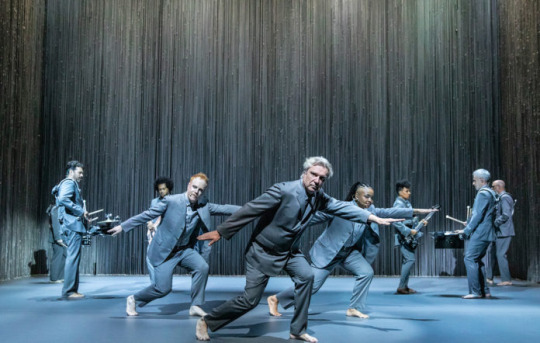
13. David Byrne’s American Utopia (Spike Lee)- I'm often impressed by the achievements that puzzle me: How did they pull that off? But I know exactly how David Byrne pulled off the impish but direct precision of American Utopia: a lot of hard work.
I can't blame Spike Lee for stealing a page from Demme's Stop Making Sense: He denies us a close-up of any audience members until two-thirds of the way through, when we get someone in absolute rapture.
12. One Night in Miami... (Regina King)- We've all cringed when a person of color is put into the position of speaking on behalf of his or her entire race. But the characters in One Night in Miami... live in that condition all the time and are constantly negotiating it. As Black public figures in 1964, they know that the consequences of their actions are different, bigger, than everyone else's. The charged conversations between Malcolm X and Sam Cooke are not about whether they can live normal lives. They're way past that. The stakes are closer to Sam Cooke arguing that his life's purpose aligns with the protection and elevation of African-Americans while Malcolm X argues that those pursuits should be the same thing. Late in the movie, Cassius Clay leaves the other men, a private conversation, to talk to reporters, a public conversation. But the film argues that everything these men do is always already public. They're the most powerful African-Americans in the country, but their lives are not their own. Or not only their own.
It's true that the first act has the clunkiness and artifice of a TV movie, but once the film settles into the motel room location and lets the characters feed off one another, it's gripping. It's kind of unfair for a movie to get this many scenes of Leslie Odom Jr. singing, but I'll take it.
11. Saint Frances (Alex Thompson)- Rilke wrote, "Perhaps everything terrible is in its deepest being something helpless that wants help from us." The characters' behavior in Saint Frances--all of these fully formed characters' behavior--made me think of that quotation. When they lash out at one another, even at their nastiest, the viewer has a window into how they're expressing pain they can't verbalize. The film is uneven in its subtlety, but it's a real showcase for screenwriter and star Kelly O'Sullivan, who is unflinching and dynamic in one of the best performances of the year. Somebody give her some of the attention we gave to Zach Braff for God's sake.
10. Boys State (Jesse Moss and Amanda McBaine)- This documentary is kind of a miracle from a logistical standpoint. From casting interviews beforehand, lots of editing afterwards, or sly note-taking once the conference began, McBaine and Moss happened to select the four principals who mattered the most at the convention, then found them in rooms full of dudes wearing the same tucked-in t-shirt. By the way, all of the action took place over the course of one week, and by definition, the important events are carved in half.
To call Boys State a microcosm of American politics is incorrect. These guys are forming platforms and voting in elections. What they're doing is American politics, so when they make the same compromises and mistakes that active politicians do, it produces dread and disappointment. So many of the boys are mimicking the political theater that they see on TV, and that sweaty sort of performance is going to make a Billy Mitchell out of this kid Ben Feinstein, and we'll be forced to reckon with how much we allow him to evolve as a person. This film is so precise, but what it proves is undeniably messy. Luckily, some of these seventeen-year-olds usher in hope for us all.
If nothing else, the film reveals the level to which we're all speaking in code.
9. The Nest (Sean Durkin)- In the first ten minutes or so of The Nest, the only real happy minutes, father and son are playing soccer in their quaint backyard, and the father cheats to score on a children's net before sliding on the grass to rub in his victory. An hour later, the son kicks the ball around by himself near a regulation goal on the family's massive property. The contrast is stark and obvious, as is the symbolism of the dead horse, but that doesn't mean it's not visually powerful or resonant.
Like Sean Durkin's earlier film, Martha Marcy May Marlene, the whole of The Nest is told with detail of novelistic scope and an elevation of the moment. A snippet of radio that mentions Ronald Reagan sets the time period, rather than a dateline. One kid saying "Thanks, Dad" and another kid saying, "Thanks, Rory" establishes a stepchild more elegantly than any other exposition might.
But this is also a movie that does not hide what it means. Characters usually say exactly what is on their minds, and motivations are always clear. For example, Allison smokes like a chimney, so her daughter's way of acting out is leaving butts on the window sill for her mother to find. (And mother and daughter both definitely "act out" their feelings.) On the other hand, Ben, Rory's biological son, is the character least like him, so these relationships aren't too directly parallel. Regardless, Durkin uses these trajectories to cast a pall of familial doom.
8. Sorry We Missed You (Sean Durkin)- Another precisely calibrated empathy machine from Ken Loach. The overwhelmed matriarch, Abby, is a caretaker, and she has to break up a Saturday dinner to rescue one of her clients, who wet herself because no one came to help her to the bathroom. The lady is embarrassed, and Abby calms her down by saying, "You mean more to me than you know." We know enough about Abby's circumstances to realize that it's sort of a lie, but it's a beautiful lie, told by a person who cares deeply but is not cared for.
Loach's central point is that the health of a family, something we think of as immutable and timeless, is directly dependent upon the modern industry that we use to destroy ourselves. He doesn't have to be "proven" relevant, and he didn't plan for Covid-19 to point to the fragility of the gig economy, but when you're right, you're right.
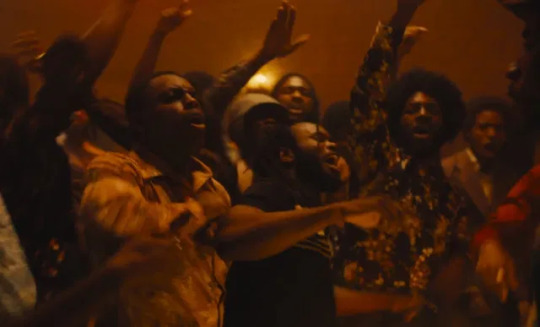
7. Lovers Rock (Steve McQueen)- swear to you I thought: "This is an impeccable depiction of a great house party. The only thing it's missing is the volatile dude who scares away all the girls." And then the volatile dude who scares away all the girls shows up.
In a year short on magic, there are two or three transcendent moments, but none of them can equal the whole crowd singing along to "Silly Games" way after the song has ended. Nothing else crystallizes the film's note of celebration: of music, of community, of safe spaces, of Black skin. I remember moments like that at house parties, and like all celebrations, they eventually make me sad.
6. Crip Camp: A Disability Revolution (Nicole Newnham and James Lebrecht)- I held off on this movie because I thought that I knew what it was. The setup was what I expected: A summer camp for the disabled in the late '60s takes on the spirit of the time and becomes a haven for people who have not felt agency, self-worth, or community anywhere else. But that's the right-place-right-time start of a story that takes these figures into the '80s as they fight for their rights.
If you're anything like my dumb ass, you know about 504 accommodations from the line on a college syllabus that promises equal treatment. If 2020 has taught us anything though, it's that rights are seized, not given, and this is the inspiring story of people who unified to demand what they deserved. Judy Heumann is a civil rights giant, but I'm ashamed to say I didn't know who she was before this film. If it were just a history lesson that wasn't taught in school, Crip Camp would still be valuable, but it's way more than that.
5. Palm Springs (Max Barbakow)- When explaining what is happening to them, Andy Samberg's Nyles twirls his hand at Cristin Milioti's Sara and says, "It's one of those infinite time-loop scenarios." Yeah, one of those. Armed with only a handful of fictional examples, she and the audience know exactly what he means, and the continually inventive screenplay by Andy Siara doesn't have to do any more explaining. In record time, the film accelerates into its premise, involves her, and sets up the conflict while avoiding the claustrophobia of even Groundhog Day. That economy is the strength that allows it to be as funny as it is. By being thrifty with the setup, the savings can go to, say, the couple crashing a plane into a fiery heap with no consequences.
In some accidental ways, this is, of course, a quarantine romance as well. Nyles and Sara frustratingly navigate the tedious wedding as if they are play-acting--which they sort of are--then they push through that sameness to grow for each other, realizing that dependency is not weakness. The best relationships are doing the same thing right now.
Although pointedly superficial--part of the point of why the couple is such a match--and secular--I think the notion of an afterlife would come up at least once--Palm Springs earns the sincerity that it gets around to. And for a movie ironic enough to have a character beg to be impaled so that he doesn't have to sit in traffic, that's no small feat.
4. The Assistant (Kitty Green)- A wonder of Bressonian objectivity and rich observation, The Assistant is the rare film that deals exclusively with emotional depth while not once explaining any emotions. One at a time, the scrape of the Kleenex box might not be so grating, the long hallway trek to the delivery guy might not be so tiring, but this movie gets at the details of how a job can destroy you in ways that add up until you can't even explain them.
3. Promising Young Woman (Emerald Fennell)- In her most incendiary and modern role, Carey Mulligan plays Cassie, which is short for Cassandra, that figure doomed to tell truths that no one else believes. The web-belted boogeyman who ruined her life is Al, short for Alexander, another Greek who is known for his conquests. The revenge story being told here--funny in its darkest moments, dark in its funniest moments--is tight on its surface levels, but it feels as if it's telling a story more archetypal and expansive than that too.
An exciting feature debut for its writer-director Emerald Fennell, the film goes wherever it dares. Its hero has a clear purpose, and it's not surprising that the script is willing to extinguish her anger halfway through. What is surprising is the way it renews and muddies her purpose as she comes into contact with half-a-dozen brilliant one- or two-scene performances. (Do you think Alfred Molina can pull off a lawyer who hates himself so much that he can't sleep? You would be right.)
Promising Young Woman delivers as an interrogation of double standards and rape culture, but in quiet ways it's also about our outsized trust in professionals and the notion that some trauma cannot be overcome.
INSTANT CLASSICS
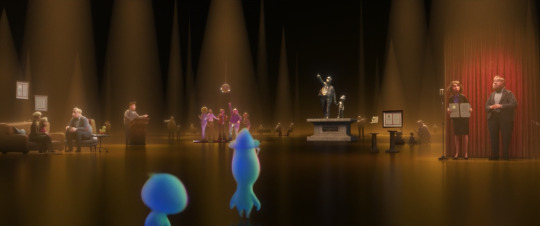
2. Soul (Pete Docter)- When Pete Docter's Up came out, it represented a sort of coronation for Pixar: This was the one that adults could like unabashedly. The one with wordless sequences and dead children and Ed Asner in the lead. But watching it again this week with my daughter, I was surprised by how high-concept and cloying it could be. We choose not to remember the middle part with the goofy dog stuff.
Soul is what Up was supposed to be: honest, mature, stirring. And I don't mean to imply that a family film shouldn't make any concessions to children. But Soul, down to the title, never compromises its own ambition. Besides Coco, it's probably the most credible character study that Pixar has ever made, with all of Joe's growth earned the hard way. Besides Inside Out, it's probably the wittiest comedy that Pixar has ever made, bursting with unforced energy.
There's a twitter fascination going around about Dez, the pigeon-figured barber character whose scene has people gushing, "Crush my windpipe, king" or whatever. Maybe that's what twitter does now, but no one fantasized about any characters in Up. And I count that as progress.
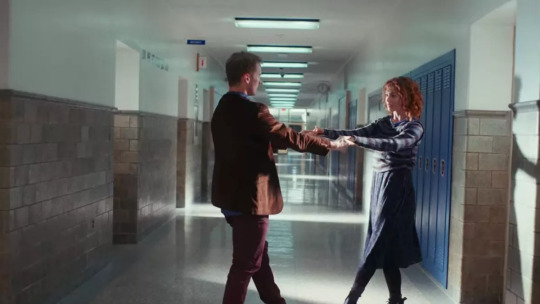
1. I’m Thinking of Ending Things (Charlie Kaufman)- After hearing that our name-shifting protagonist moonlights as an artist, a no-nonsense David Thewlis offers, "I hope you're not an abstract artist." He prefers "paintings that look like photographs" over non-representational mumbo-jumbo. And as Jessie Buckley squirms to try to think of a polite way to talk back, you can tell that Charlie Kaufman has been in the crosshairs of this same conversation. This morose, scary, inscrutable, expressionist rumination is not what the Netflix description says it is at all, and it's going to bother nice people looking for a fun night in. Thank God.
The story goes that Steven Spielberg and George Lucas, when constructing Raiders of the Lost Ark, sought to craft a movie that was "only the good parts" with little of the clunky setup that distracted from action. What we have here is a Charlie Kaufman movie with only the Charlie Kaufman moments, less interested than ever before at holding one's hand. The biting humor is here, sometimes aimed at philistines like the David Thewlis character above, sometimes at the niceties that we insist upon. The lonely horror of everyday life is here, in the form of missed calls from oneself or the interruption of an inner monologue. Of course, communicating the overwhelming crush of time, both unknowable and familiar, is the raison d'etre.
A new pet motif seems to be the way that we don't even own our own knowledge. The Young Woman recites "Bonedog" by Eva H.D., which she claims/thinks she wrote, only to find Jake's book open to that page, next to a Pauline Kael book that contains a Woman Under the Influence review that she seems to have internalized later. When Jake muses about Wordsworth's "Lucy Poems," it starts as a way to pass the time, then it becomes a way to lord his education over her, then it becomes a compliment because the subject resembles her, then it becomes a way to let her know that, in the grand scheme of things, she isn't that special at all. This film jerks the viewer through a similar wintry cycle and leaves him with his own thoughts. It's not a pretty picture, but it doesn't look like anything else.
8 notes
·
View notes
Note
In talks abt c//a, some shippers touch on how the show's theme is "everyone is redeemable". How about no? Is it such a hot take to say a char is not redeemable after she's badly hurt the people around her, done heinous deeds like trying to end the world, and also not take responsibility for her actions etc? Is it a hot take bcuz she's been badly abused since childhood, distorting her emotions and morals? But can no lines be drawn at all? And y don't we look for a better rep for an abuse victim?
It’s a very interesting thing in that regard, yeah. I’ve come to the conclusion that, well She-Ra as a whole was never made to tell... an complex story, or a compelling universe, nor was it ever going to challenge it’s viewers.
I think, She-Ra was made as a hyper-personal story, with a very clear focus on being comfort media. As I’ve said before, although it tackles many different characters going through pain, lashing out, growth, etc. It tries it’s best to never allow anyone to actually face... damning consecuences, no matter how terrible the choice or the action.
I personally believe, yanno, this show WAS made for your average Catra... that is to say, people who relate to maybe having gone through abuse, potentially became abusers themselves, and have perhaps worked on getting better and seeking forgiveness and love back.
I’m not too sure WHY the show centered itself so MUCH on Catra being... just very cruel to people around her, specially with people who ACTUALLY cared for her, and never allowed her to ADRESS herself and seek PERSONAL growth, however this narrative of... coddling and forgiveness through ROMANTIC LOVE, “I’ve always loved you! Please stay”... I mean it’s comfortable, it’s pretty shallow, romantic in a way, to anyone who’d like to be coddled and stuck to Catra, that is.
Crew-Ra deffinately subscribes to this ideal, wherein, your redemption and your healing can ONLY come, truly, from someone who will love you, accept you and coddle you “Despite your flaws”.
I deffinately UNDERSTAND when people speak so fondly of it, I mean, it SEEMS super nice and ideal, but PERSONALLY I think it’s too naive and irresponsable when it disregards the... reactionary emotions of characters who were hurt BY Catra? But, AGAIN, it was never ABOUT them.
I don’t feel as though judging Catra’s story or character in a manner in which, one thinks she’s become irredemable is wrong, or should be shunned, that’s just what happens when one judges media. I feel terribly sorry for anyone who was lured in by all the flags and accolades this show and it’s story gets, and found a comfort piece that has such a flimsy message to say and felt disregarded.
It is my SINCERE hope, that She-Ra will become... a steping stone for better stories to come were perhaps abuse, and the cycle of abuse can actually be deeply and critically explored. Yanno, outside the OBVIOUS milestones in representation (Which are also face value at best, when the entire writing crew is white, able bodied, blah blah blah), but yeah, here’s hoping.
There’s also a discussion to be had around... why late teens and young adults on online platforms, like twitter, SHOULDN’T influence the production of CHILDREN’S animated media? sjkegbksejbg, as in, so glad ya’ll had fun with shipping, and uh THE MESSYNESS OF THIS ROMANCE, OH BOY? Has anyone actually seen a Y7 child actually enjoy this show? I personally haven’t had the chance, I mean I hope so, it was marketed FOR THEM jhsebnrgjk.
So uh, I think, we should advocate for better stories, made for their RESPECTIVE audiences, with more diverce voices MAKING them, from the get go. Yeah.
34 notes
·
View notes
Text
Emmy.
This is a callout post about discord user emmy, known for now as @eurydices-flower on tumblr, and her nasty behavior regarding her joining and then leaving a specific Riordanverse fan discord server. I don’t usually make callout posts but this needs to be addressed since she has vagueposted about my friends and been rude to them over DMs. I don’t believe she should be allowed to run around and make accusations, especially with people not able to find part of the story due to it being over private messages. So, with the permission of the friend whom she sent DMs to, I will outline her brief stay in the server and the aftermath.
It’s time you heard our side of the story.
Emmy (which is how I will be referring to her for the duration of this post), joined the Trials of Apollo (ToA) server on July 6th, 2020.
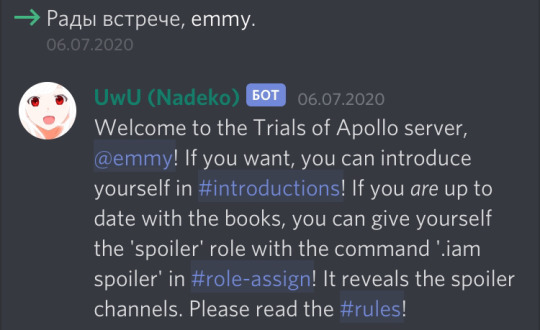
For the sake of chronicling how we know that she is also @eurydices-flower on tumblr, she says as much in her self-introduction in the #introduction channel of the server.

Emmy was in the server for less than 24 hours, before leaving voluntarily with seemingly no explanation. Naturally, we were confused and one of our own reached out to emmy on her tumblr blog to ask why she left. I blacked out the profile picture and url of my friend’s blog for the sake of their own privacy.

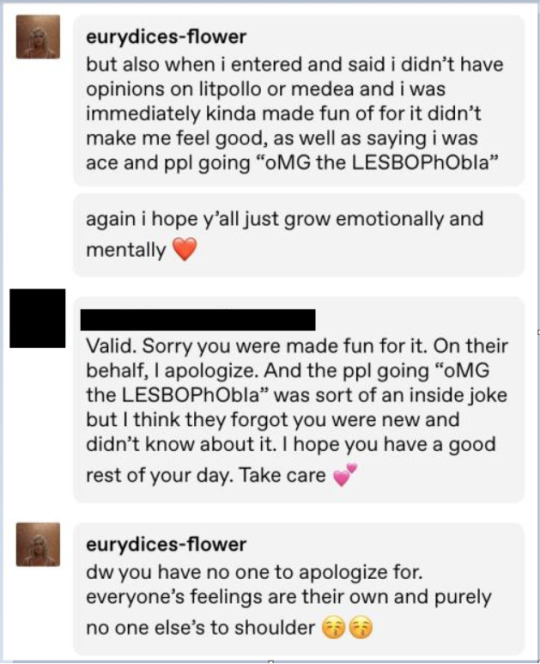
Let us go over this, piece by piece.
“yeah i’m alright i just realized constant negativity wasn’t rlly my game at the moment and i don’t necessarily have the headspace to ever deal with that.”
That is fair, she is encouraged to look after herself and her own mental state first. If she felt like leaving was the best course of action to take for the sake of herself, then she should not be judged for that. And it’d be perfectly fine if she left it at that! But, of course, I wouldn’t be making this post if she did.
“everyone’s entitled to be everyones own opinion but to bash other people you don’t even know for having opinions was too much for me to handle. a lot of those blogs are good friends of mine and it truly is disrespectful to harp on anyone for having different opinions but go around and spread negativity when others don’t agree with with that opinion.”
Regarding the first part, “everyone’s entitled to be everyones own opinion but to bash other people you don’t even know for having opinions was too much for me to handle”, there’s nothing wrong with this statement as it is on the surface-level. She is expressing that she personally does not want to partake in that particular kind of discourse. That is fine, she is not obligated to in any way, shape, or form. Though I do have a comment or three about the statement before we move on.
She could have muted the specific channel where that kind of discourse was taking place, which as far as I’m aware she never did. The ToA server has 2 specific channels for pjo discourse because members were uncomfortable with it being spread sporadically throughout the server, thus those two channels were made to contain discourse. If she was truly made uncomfortable by what she stated, she could have rectified that problem herself instead of leaving. But, after all, it was her choice to make in the end.
“but to bash other people you don’t even know for having opinions was too much for me to handle”Uh, welcome to tumblr Emmy? I don’t know if Emmy meticulously vets her tumblr experience so that she literally never encounters people bashing other people they don’t even know for their opinions, but it makes it a rather ironic statement considering tumblr’s reputation and that she has a tumblr blog. Heck, it’s not even unique to tumblr, it’s more of a social media thing. I can only postulate that maybe it made her more uncomfortable in a more confined and private space like a discord server, but I cannot be sure. Given she joined at the height of the Ace! Reyna discourse and the “opinions” she’s referring to are likely the aphobic rhetoric spouted by people who were astonishingly upset that Reyna was not a lesbian, I personally am rather uncomfortable that she dumbed it down as if it were merely “having an opinion” and not an attempt to invalidate ace representation in a mainstream media book series just because they were upset that they hadn’t gotten exactly what they wanted.
She retrospectively made herself a hypocrite. I’ll put a pin in this for now and we’ll come back to it.
“A lot of those blogs are good friends of mine and it truly is disrespectful to harp on anyone for having different opinions but go around and spread negativity when others don’t agree with that opinion.”
There’s quite a bit to unpack here just in this one sentence. First of all, no one in the server knew she was acquainted with any of the blogs we were discoursing about. She never stated such at any point prior to this point. We didn’t know, and thus we could not even consider accommodating her before she left in this regard.
I’ve already expressed my own views on her dumbing down people spouting aphobic rhetoric to them merely having “different opinions”, but the server was not “spreading negativity” unless you define “negativity” as calling out people for their aphobic rhetoric and frankly disrespectful treatment of Reyna as a character as a whole. It’s not as beautiful and simple as “others don’t agree with that opinion” when said opinion promotes aphobia and tries to claim that lesbian Reyna somehow cannot peacefully coexist with asexual Reyna.
“I mean no disrespect to anyone in that server when saying that or this but i just truly hope you all emotionally grow as people one day and learn to be more respectful <3 <3”
This… whole line has the basic energy of “No offense but *proceeds to say something offensive*”. Emmy basically went, “I mean no disrespect but *proceeds to say something disrespectful*”. It’s especially rude that she told us that she hopes we “all emotionally grow as people one day and learn to be more respectful <3 <3” when she was the one that came into the server in the first place. Furthermore none of us owe our respect to the people that got so mad over a fictional character not being exactly what they wanted that they have to belittle and attempt to downplay ace representation. It’s not Emmy’s place to tell us to “emotionally grow” and “learn to be more respectful”, especially when in the aftermath she doesn’t put her money where her mouth is.
“Blacked out user: Ah I see. If I may ask, what differing opinion were you being bashed for?
Emmy: not me personally but to see the rr crit circus chat (Note: one of the discourse channels) filled with other people doing it to people not even IN the chat was what bugged me”
Has emmy never been in a discord server with a discourse channel? This is a legitimate question, because this is not behavior unique to the ToA server. All of the servers I’ve seen with channels specifically for discourse have done this. This isn’t some kind of uniquely shitty thing that the ToA server does that we should be morally ashamed of, especially when something similar goes on with people on tumblr posting screenshots of tweets.
“but also when i entered and said i didn’t have opinions on litpollo or medea and i was immediately kinda made fun of for it didn’t make me feel good, as well as saying i was ace and ppl going “oMG the LESBOPhObIa. again i hope y’all just grow emotionally and mentally <3”
Here’s what happened (different colored bars mean different users):
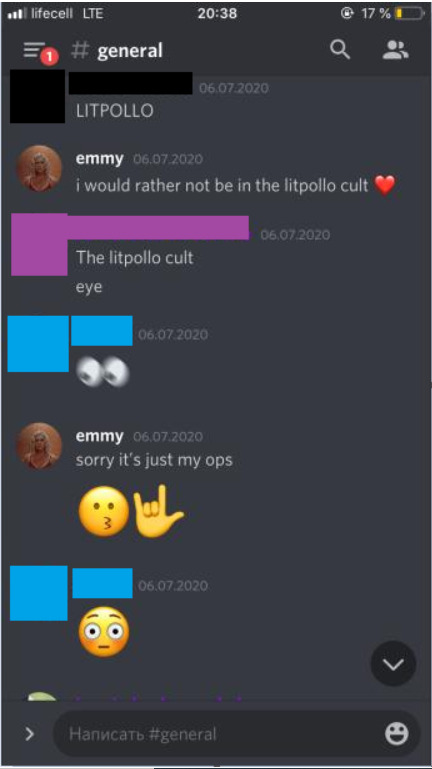

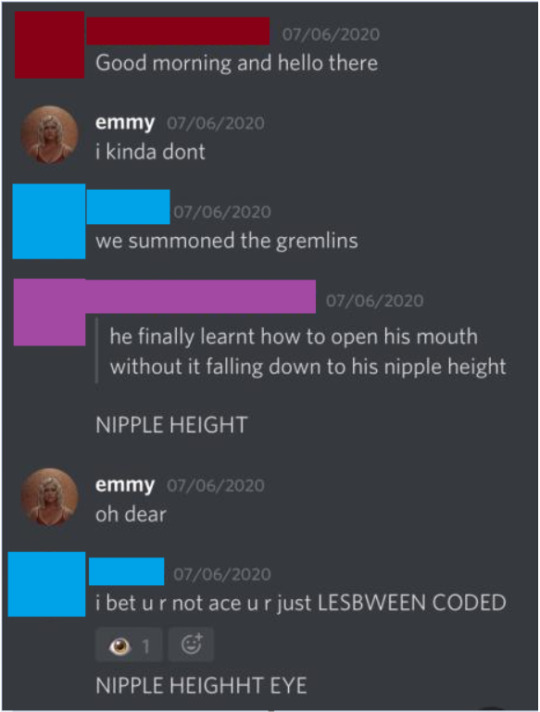
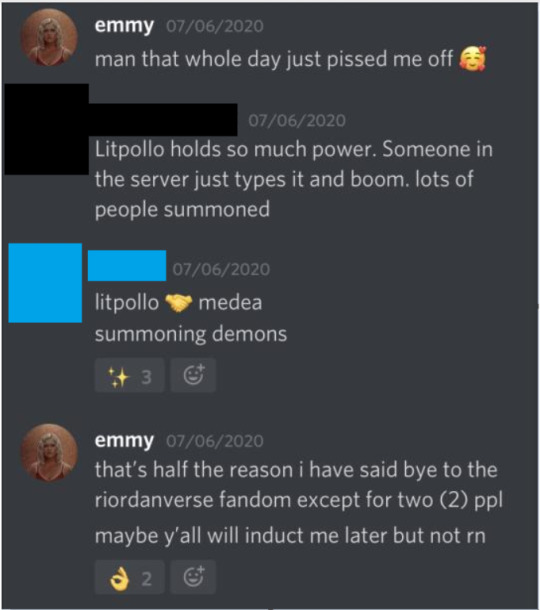
Now, despite the fact that the “r u human” in response to Emmy saying she doesn’t ship litpollo and the “i bet u r not ace u r just LESBWEEN CODED” are jokes, I do understand why those statements made Emmy uncomfortable. Emmy was a newcomer and not acclimated to the sense of humor of the server and to basically shove her the butt end of it was not fair to her. The latter joke especially would be difficult to swallow if Emmy didn’t know that an inside joke of the server at the time was mocking the people who insisted that making Reyna ace was a lesophobic act on Rick’s part despite Trials of Apollo as a series having three lesbian major characters (Emmie, Jo, and Lavinia).
In simple terms, I agree with my friend’s reply and the apology they gave on the server’s behalf. Emmy did deserve that apology. Doesn’t make the “i hope y’all just grow emotionally and mentally <3” any less rude or unwarranted though.
As far as any of us were aware, this was the end of it. Emmy was a bit rude but we had our closure and as far as any of us knew the ToA server and Emmy had parted ways. And then this happened.

This post has since been deleted by Emmy herself, but before it disappeared it was archived by myself and other friends reblogging to respond to it.
It doesn’t name myself or any of my friends directly, but since we were quite vocal about calling people out for their aphobia when Reyna was revealed to be ace, it is assumed we were the target of the post or are at least part of the group that is the target for the post. If it is indeed the former it seems Emmy is vagueposting about us. Even if it’s not specifically about us, it’s not a good look for Emmy. Let’s parse this apart.
“funny how the people yelling aphobia when it came to Reyna were dead silent today when Rick went on twitter and was blatantly racist and disrespectful”
There’s several reasons why people weren’t addressing Rick’s tweets that day. Some of us don’t use twitter/don’t follow Rick on twitter. Some of us don’t check the #rickriordan tag or other tags like it. Some of us have other main fandoms that are not pjo. Some of us don’t follow blogs that reblogged the tweets and the responses to the tweets, or hadn’t reblogged them yet. Some of us might want to first watch the responses to the tweets because we are not Cherokee, Muslim, or educated enough about those topics beforehand and not dig ourselves into a hole. Just saying, just because we didn’t give an immediate response doesn’t mean we didn’t care.
“funny how they only care about representation when it applies to them and them alone”
Does Emmy know that plenty of non-ace people were defending ace Reyna? If she wants an example, I’m a bisexual woman and I’ve been vocal in my defense of ace Reyna. So her logic that “they only cared when the rep applied to them and them alone” falls apart.
“funny how they only cared Reyna was ace because it gave them the opportunity to harrass the lesbians who were hurting”
I don’t condone harassment but calling them out for their aphobic behavior was not harassment. They couldn’t express their hurt without belittling asexual representation and lacking so much self-awareness that they couldn’t realize how aphobic they were being. I’m sorry that they don’t have my respect for that- actually, you know what, I’m not sorry for it. They literally chained themselves to the concept of Lesbian Reyna and would not accept anything else, that’s their own fault. Just because you’re hurt doesn’t give you the excuse to be an asshole to other LGBTQ+ people that did get representation.
"it’s almost,,, almost like you don’t actually care about these characters or color! that you just want the opportunity to clown and be bullies and abusive”
This is a very rich statement considering those “hurting lesbians” she referred to didn’t care about Reyna as a character. They only cared about Lesbian Reyna and nothing else. Some of them mixed up ace and aro showing stunning ignorance on the difference between asexuality and aromance. And now they’re playing victim because they got called out.
“if you want marginalized groups like asexuals to be represented, where’s your energy for pipers representation and characterization? samirah? where’d it go?”
Heroes of Olympus has been out for years. There have already been posts on tumblr before detailing the flaws in how Rick wrote Samirah and Piper, it’s not a new phenomenon. It just had a resurgence recently. Heroes of Olympus is old news so it’s not as fresh and hot as it was when it first came out so of course while discussions over the representation in it are still going on it has mostly calmed down until recently.
“i see you. i’m watching you. you said nothing. not a single word. not even a messy reblog of one (1) post about piper or sam. dead. Silence.”
Emmy gets a little creepy here and slightly stalkery. She doesn’t like us yet she’s watching our blogs? I guess the Blog Police is here. If you don’t reblog discourse posts about how Samirah and Piper were represented you’ll be arrested and pegged as a racist.
No one is obligated to reblog posts about Samirah and Piper. It’s not reflective of their feelings towards Piper and Sam. it’s THEIR blog and they are not obligated to reblog what others want them to. I hate to break it to Emmy but she can’t force people to reblog the stuff she wants to see.
“i don’t care if you think you ‘shouldn’t have a voice in this’ bc ur white or smth. there’s a difference between spreading posts about this terrible situation and trying to butt in with ‘i’m white but here’s my opinion’“
And here we finally circle back to the retroactive hypocrite point I put a pin in earlier. Here’s a refresher: “everyone’s entitled to be everyones own opinion but to bash other people you don’t even know for having opinions was too much for me to handle. a lot of those blogs are good friends of mine and it truly is disrespectful to harp on anyone for having different opinions but go around and spread negativity when others don’t agree with with that opinion.”
And yet she bashes people she doesn’t know and spreads negativity for… possibly having a different opinion than the ones going around right now or not interacting with it for their own personal reasons. Also not everyone who didn’t immediately jump on the Samirah/Piper rep analysis reblogs were white. Assuming people are white will eventually bite you on the ass.
After that post, she continued vagueposting on her own blog.
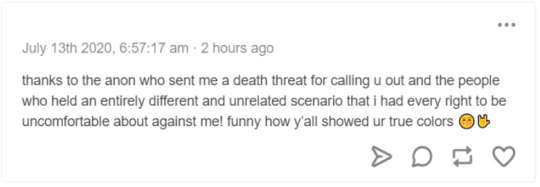
I seriously doubt she was sent an anonymous death threat because a friend of mine checked her account earlier that same morning she made that post and the Anon feature was turned off. Then, in the evening, she posted about having an Anonymous death threat sent to her without any proof. I’m not saying it’s not possible nor do I condone death threats, but I do have reason to disbelieve her.
IF she is still referring to her brief stay in the ToA server as that “scenario”, then she neglects to say that she did not tell anyone that she was uncomfortable until after she left. We are not mindreaders, we cannot tell when every single person we talk to is uncomfortable. So it can at least partially be held against you, Emmy, for a failure to communicate with us.
And finally, the straw that broke the camel’s back for me.

This DM was sent to a friend of mine, the same friend that reached out to Emmy following her departure from the ToA server. I can only assume that the post she is referring to is the one I covered earlier, prior to the “anon death threat” post. Let’s parse through this again.
“hi love! i noticed you unfollowed me around the time i made my post calling you and other’s silence on piper and samirahs blatant mistreatment today.”
Wow, you know what, scratch what I said earlier about assuming that the post was directed at me and my friends, Emmy basically confirmed it from her own mouth. Nice to get the ambiguity out of the way right off the bat. Also she’s seriously DMing my friend just because they unfollowed her? And assuming it was because of the post? She can’t definitively connect the two dots but if that was indeed the reason my friend unfollowed her I certainly can’t blame them. Especially given that this was Emmy’s response.
“i hope you realize you’re blatantly racist and just all around a terrible person for harping on the wlw community for being upset about their bad representationk because you had ace representation but don’t use the same energy for the people hurting that they don’t have native or muslim representation.”
It’s spelled “representation”, Emmy. Also the pjo wlw community was upset that REYNA was NOT a LESBIAN, not that they had bad representation. That was their whole salt. As a wlw myself, being upset about bad representation doesn’t give you an excuse to put down ace representation which a lot of them were doing. They have THREE lesbian characters in Rick’s books so far.
Also I thought the issue Emmy took with us was that we weren’t reblogging posts breaking down Rick’s tweets or pointing out the flaws in Samirah and Piper’s portrayal in the books. And now she’s talking about posting about people hurting because they don’t have Native American or Muslim representation? Which is it Emmy, you are sending mixed signals.
“i hope you educate yourself and realize you and the entire community that kept their silence are truly acting terrible right now. thank you.”
This is… extremely rich coming from the asexual who implied she has aphobic friends. I hope she educates her friends and realizes her and the entire community who bashed the choice to make Reyna asexual are truly acting terrible right now. Though given how she put the wlw on a pedestal and turned a blind eye to how aphobic they were acting I don’t have hope. The hypocrisy when she says that my friend is “truly acting terrible right now” when my friend dared to just unfollow her.
And that is how I will close this. She is still posting about the server on her own blog but that is everything major that has happened so far. On behalf of my friend, don’t harass emmy or send her death threats. I may not respect her, but I certainly don’t condone harassment or death threats.

She is only 15, according to her own blog, but it does not excuse her behavior towards my friends. Being a minor doesn’t exclude you from being a shitty person.
37 notes
·
View notes
Text
Under the Skin
I interpreted the film at a more fundamental level, as a sort of morality play. Scarlet's character appears to be a sort of divine adjudicator, charged with the responsibility of testing and consequently judging people based on their response to temptation; I'm talking specifically about the 7 deadly sins, with Scarlet's character being an agent for testing lust. Yes there are biblical themes present in this film, and I'm pretty sure the creator went further to be careful describing Scarlet as not specifically an extra-terrestrial, but "other worldly". I think this opens up the interpretation of her character as a divine being.
The film is a commentary about morality and also a cautionary tale concerning judgement and prejudice. The men she lures into her trap are being persecuted on the religious ideal that lust is fundamentally wrong; they are swallowed into a black goop, their insides (their being) sucked out and then placed into a fire to burn (imagery for hell). When we go to the beach scene she completely ignores the child, who are in biblical terms, representative of the innocent, and therefor of no interest to her.
What happens to Scarlet's character is really interesting. She begins to notice other human behaviors that appear to go unpunished - the cardinal sin wrath for example, when the teens rush her car and try to break in. She starts to question her own identity and the moral underpinnings it's built on, which are a product of her creators, i.e, the man on the motorcycle who animated her in the lifeless body which he found on the road. This man is the creator, not specifically God, but maybe a representation of the source of ones values, sort of like a father figure or an ideology.
As she begins to further deviate from the values her creators instilled in her she begins to question her own character and her preconceptions of right and wrong; this gets so severe to the point where she reaches a kind of existential and psychological crisis. The scene where she eats the cake is an important tipping point. It's her first real flirtation with the 'other side'; one she's been indoctrinated to understand as wrong - here she is experimenting with the sin gluttony. She can't swallow the cake because it goes against everything she's been told is wrong. She can't swallow a new perspective, this is the start of her crisis.
Her crisis builds. She meets a man who challenges her most fundamental idea of right and wrong, lust. In a turn of events it is now her who is being seduced by the cardinal sin, and she is falling victim to the very prejudice she held as an absolute truth, the idea that lust is wrong and punishable by incineration. This shakes her to her core and now she loses her absolute shit; this is a full meltdown.
I think the forest is the most interesting part of the entire movie. I like to call it the 'morality forest', or perhaps a better name is the 'identity forest'. This forest is symbolic of the labyrinth of the mind - a treacherous maze of thoughts, ideas, prejudice and morality; it's a maze we all have in ourselves and it represents the confusing, tangled mess of ideas that makes up our identity. Scarlet has to go back into her own 'identity forest' to essentially reevaluate who she is. This isn't a reevaluation at a superficial level, this is her very deepest beliefs.
So she comes across a hut where she temporarily finds shelter, this shelter represents indifference, but I wont go into that - what's more important is the rapist commercial logger. This man is a representation of institutional ideology. He intrudes on her sanctuary and tries to 'force himself' inside of her. You will notice that other than the clearing, with the hut in the middle, Scarlet's morality forest is a tangle of small paths - these represent her own potential for free thought, her own agency. When she runs passed the loggers truck you will notice a large road that has been cut through her identity forest, and this again is a representation of the institutional ideology that has been 'carved' into her. This wide road is a product of another's idea of right and wrong, not hers, and further, its vast size represents popular opinion, a path of least resistance which we could all easily follow to guide us through our own 'morality forests' - it represents blind obedience.
What's sad is that in the end Scarlet's character loses her fight with her indoctrinated ideology; it's too strong for her and she couldn't find her way out of her own 'morality forest' without it catching up to her. As she takes off her face, she turns the eyes she used to judge others onto herself, and she faces the same judgement they do. She is burned just as they are. It's interesting that as she burns, as she persecutes herself she is able to find her way out of the forest. It reminds me of the quote, which I think is biblical, that goes something like "Judge not lest ye be judged". The prejudices she held as so true eventually came back to burn her as she felt obligated to judge herself in the same way she judged her own victims. This is why I say the film is also a cautionary tale about prejudice and being judgmental. Her indoctrination was so strong, that the ideas of her creators trumped her own ability to think freely with an open mind. In this way it hints to the idea of cognitive dissonance, which I don't really know a lot about, but it's interesting none-the-less.
Poor Scarlet, she didn't want to burn, no one does. Her struggle was with her own morality and those that forced their beliefs onto her, and in the end she lost. Only after destroying herself is she able to find a passage out of her identity forest, but by then it seems to have been too late.
chamthrompton 6 years ago reddit
3 notes
·
View notes
Text
When you think about it, Octavia’s arc actually makes a lot of sense.
Octavia has always been an antisocial girl and an insecure young woman. She grew up hidding under the floor on the Ark, with no human/social interactions (except her mom and her brother) for 16 years. Her mother died when she was very young (btw she was floated for having Octavia, try not to feel guilty for the rest of your life after that...) so the main person Octavia’s been talking to is Bellamy. She never left her bedroom except for that one time where she got arrested and put in a prison cell. She was sentenced to death just for being born.
When the Hundreds were sent to the ground, not only she had to learn to survive; she also had to learn how to socialise. How to belong in a group and be a part of something bigger than herself. A society. For the first time.
For someone who basically had no soft skills (communication skills, for instance) that must have been pretty hard. And pretty scary. My theory is Octavia has always felt very insecure about not fitting in, not being good enough for people to like and appreciate her, not finding a home on Earth. My guess is she was terrified her life on Earth would be like on the Ark: that she would end up isolated, scared and alone.
And that’s why she had to find something that would make her unique. When she met Lincoln, she learnt that she could fight. And that she was quite good at it - especially compared to the Hundreds. That’s what made her valuable. Suddenly she was a hero, someone that the Hundreds needed in order to survive. Her fighting skills made her special.
But then she became... too special. Too much like a Grounder. And Grounders were the enemy back then. She was judged for being too close to Lincoln, even by her own friends. Her loyalty was questioned by her peers. People suddenly looked down on her for the way she dressed, talked and acted. Even her fighting style became a problem: she wouldn’t use guns... just like the Grounders. Even Bellamy, her own brother, didn’t like it.
She didn’t belong with the Hundreds anymore. She knew she couldn’t stay with them. But then again, she wasn’t a true Grounder either. Not really. And she knew she would never be looked at as anything else than a sky person - no matter how hard Lincoln would try to educate her and teach her their way of living.
Octavia didn’t belong anywhere again.
Maybe if she had agreed to follow Lincoln when he suggested they ran away together to avoid war... She could have found her peace then. Lincoln had always been her home. He made her feel safe. She belonged with him and she had never been happier than when she was with him.
She felt so honored when she became Indra’s second. In s5 she even says it was the happiest day of her life. Finally, she had found a place in this world and a person who understood and respected her skills. It must have felt so good. Truth is Octavia really, truly, deeply liked being a warrior. It was a role she could assume easily and where she felt like she was needed. ´Warrior’ is a title she learnt to look up to, and value a lot. Lincoln and Indra were both warriors and they were both the two people Octavia respected and loved the most.
Being called a warrior made her feel strong, confident and powerful. No more insecurities. No more fears. She was no longer the girl hidden under the floor, or the lost delinquent trying to find her place on Earth. Now, she was a well respected member of a community. I believe she chose to define herself as a warrior, because it was the only thing that made her feel good about herself : like she had some honorable value whatsoever.
When Lincoln died, Octavia lost everything. For the first time in a long long time, she was vulnerable. She couldn’t feel safe or strong or powerful anymore. All she could feel was her sadness, her loss, her pain. It was too much for her, she was scared that without Lincoln, she wouldn’t be worth anything. She couldn’t face these feelings, so she built up a wall inside of her. I believe that’s why she turned the word ‘warrior’ into her whole identity. That’s why she acted so tough during s3 and s4. She used it like a shield to protect herself from her pain and misery. To fill the void inside of her left by Lincoln’s death because she couldn’t grieve.
A good example of that is her relationship with Illian. She almost killed herself in the black rain, just to avoid these painful feelings. She begged him to make her feel something else. Something else than pain. And then, even after they had sex, all she could think about was the war happening and how she wasn’t in it... She was so broken at this point. Lincoln’s death destroyed her completely. The only way for her to move on is to take on what she thought was Lincoln’s legacy and keep fighting.
And so, she had to rebuild herself. That’s why she choose to go to Polis and fight in the Conclave: to honor Lincoln. Her face paint was a good representation of that. In her mind, Lincoln was brave, he was a warrior. And so she had to be one too. She had to fight, because Lincoln never stopped fighting. And if Lincoln never stopped fighting, there must be hope at the end of the line. Even for her.
And hope she brought, by uniting all the clans. She offered a place in a bunker to a 100 people of the 12 different clans. Salvation for everyone (including herself). She created Wonkru (first) as a tribute to Lincoln. Because that’s what he would have done. Because he believed in peace. Because he wanted to bring people together, even during his last days on Earth. Octavia wanted to commemorate that.
The problem is... So far, Octavia strickly and only defined herself as a warrior, not as a leader. She refused that role for a long time, doubting herself, fearing people wouldn’t follow her, thinking she couldn’t do it. Which makes sense considering what she’d been through on the Ark and her vision of leadership. Her chancellor floated her mother, one of the two people she ever knew and loved. Plus, her experience with leadership on the ground wasn’t exactly the best example either : Bellamy (we do whatever the hell we want, killing the firt boy she ever kissed and had a crush on, torturing Lincoln...), Jaha (besides from floating her mom, bringing the city of light into Arkadia and Polis and forcing people to take a chip to be manipulated by an AI), Pike (hating all grounders alike, organising a massacre resulting in 300 Grounder deaths, and executing Lincoln)...
But now, by winning the Conclave and creating Wonkru, she became the leader of the last surviving people of the human race. And first of all, that’s a lot of pressure for a deeply insecure, messed-up, broken, still mourning, inexperienced young woman.
But most of all, Octavia was no Clarke. And she knew it. Cause let’s be real. Throughout the show, no matter who was the chancellor/commander/leader, Clarke was really in charge.
Except Clarke had learnt how to lead by now. Lexa even said Clarke was born to lead. Since s1 se automatically took control of things because it’s in her nature to care about others and to be in charge. What made her a good leader is that she knew how to make impossible choices and take tough decisions if needed to (the big attack at the dropship in s1, Mount Weather in s2, destroying the city of life in s3, etc.). But Clarke never lost her hope, her moral values and most of all her humanity in the process. Despite everything, Clarke was always trying to avoid the worst outcome, trying to save as many people as she could. She would always study all of her options beforehand, and almost always she would try to find a non-violent solution first (in Mount Weather, for instance, her first plan was a rescue mission with Lexa; then she tried to negociate with Wallace for the release of her people, and when there was no other option, she pulled the trigger). She generally values peace and will try to avoid war as much as possible (she met with Anya on the bridge, she proposed a truce to Lexa, she made an alliance with Roan...). She could sometimes spare a life, even a life of a traitor or an enemy (Emerson, for instance!). She took risks herself in order to save everyone (besides from sacrifying herself so that her friend could go to space, she also didn’t hesitate to inject herself nightblood bone marrow instead of just using emori). Now, let me be clear. She ain’t perfect, that’s for sure. She screwed up more than once, who hasn’t ? But in such a terrible setting, being faced with impossible choices, she always tried to do her best and to chose the "best option" available (considering the context, the information she had at the time, etc.)
Besides, even at the end, she could still draw a line between the good and the bad. It doesn’t mean she never crossed that line. She did. But at least she was aware of the cruelty, the violence and the consequences of her actions. It was never easy for her to take any of these decisions. And she still feels guilty about it now, to the point she hates herself, but she knows it was her job to "bear it so they don’t have to". To be the bad guy sometimes so that her people could live. To make hard choices - even if it meant being hated by people she cared about - so that her people could have a clear conscience in the end. As a good leader should.
In a word, Clarke didn’t sacrifice herself, her sanity or her humanity, in order to be able to lead her people. Octavia did.
Oh boy, she really did. And I think it’s because Octavia knew that she couldn’t be like Clarke. She knew she couldn’t be tough, take hard decisions and still keep her moral compass. She knew she couldn’t be strong enough to lead 12 clans of grounders (without the legitimacy of the flame!) and remain the same Octavia that she was before going to that bunker. She knew she couldn’t keep her humanity because the guilt would kill her off. Besides, in 5x11 (i think?) we see her taking a piece of glass and almost cut her wrist because she can’t take it anymore, but at the last time she changes her mind. It wasn’t the first time she did that, in my opinion. She knew that if she was gonna be a ruler, she had to go all in. She had to become absolutely ruthless; otherwise she wouldn’t be able to take the hard decisions. She had to throw away her moral values, she had to shut down that part of herself who cared, who loved, who felt things. She couldn’t allow the little girl she was to come back and compromise the survival of the human race. She couldn’t allow herself to be weak, the stakes were too high.
So she created Blodreina. A ruthless leader. A persona that could lead strongly, take the hard decisions, and show no mercy. Not even for Indra or Kane. Someone who could do all of these horrible things without feeling guilty. And years after years, Octavia disappeared a bit more. And Blodreina grew stronger.
And, so, this dictator ruled Wonkru for 6 years. That’s how long Blodreina reigned and slowly took control over Octavia. The real problem with Octavia in s5 isn’t what she did during the Dark Year; it’s what she did after that.
First of all, cannibalism wasn’t even her idea. It was Abby’s. Octavia never wanted this, she tried to fight it but Abby pushed it, saying it was the only thing to do in order to survive. And when some people refused to eat, Abby (again!) was the one saying she should punish by death the one who wouldn’t follow her order.
Second of all, in that context, it probably was the only option for them. At that point, they believed they were the last humans on Earth. They had to survive, it made sense that, as a leader, Octavia had to consider every option available. And there was only one, as terrible as it sounded. Taking away people’s choice in that matter was the limit Octavia should have never crossed. But Abby insisted and said not forcing people to eat would be the worst choice possible to make and would lead them all to starvation... So in a way, there, Blodreina was useful. She avoided the worst scenario possible. And it sort of made sense back then.
Third of all, no one stood by her during that time : not Kane, not Abby, not even Indra. They were with her, they advised her, they followed her, they ate, sure. But who actually had to create and impose that rule? Octavia. Who had to look like the bad guy in front of her people? Octavia. Who had to eat first? Octavia. Who had to kill those who wouldn’t obey? Octavia. Who had to organise, watch and regulate the fights in the arena? Octavia. Who had to stay strong no matter how horrifying their everyday life was? Octavia. Abby didn’t move a finger (while it was all her idea). Kane ended up by obeying but made it clear he was against the idea. Indra didn’t talk about it. It was a burden she had to carry alone (at least Clarke had Bellamy!). She would have needed emotional support, someone to share the weight of her choices with, someone to talk to about her feelings, etc. But she didn’t have that.
So I don’t blame Octavia for what happened in the Dark Year. She did what she had to, there was no other option. She didn’t like it, she didn’t want it, and she had to bear that choice on her own because no one else supported her like they should have. The fighting pit, which was at the beginning what looked like a (sort of) fair way to bring justice, became a source of food, a tool, a way to survive.
But after the Dark Year, not only Octavia kept the fighting pit (which was no longer needed now that Wonkru faithfully followed her and that the Dark Year had passed) but she increased the number of fights. She gave herself the power to judge the fights and condamn people to fight again before earning their freedom. The deal wasn’t fair anymore for the fighters. She even threw in people she knew were innocent (Kane, for instance). So much for justice. The opinion of Wonkru as spectators became very important: if people weren’t satisfied with the fight, Blodreina would force people to fight anyway. Indra warned Bellamy: being the last person standing wasn’t enough. They had to make a show, they had to perform.
Octavia turned the fighting pit into sports, as Kane said. As a way of entertainment.
Octavia impersonated Blodreina when Wonkru needed a strong, ruthless leader who could carry them into the dark... But then, Blodreina took control for so long that Octavia forgot who she was. She played the ruthless ruler card too much that she lost her humanity in the process. And when she got out of the bunker, she didn’t know what to do. She didn’t know how to move on from the horror she inflicted. She didn’t know how to get back to "normal".
Shallow Valley became her salvation. The justification she needed all along for all of her terrible actions in that bunker. The one thing that would make everything okay again. If she could only get her people to that safe eden, then everything she had done to survice would make sense. She was so focused on that goal that she blinded herself.
That scene with Indra, before the battle for Shallow Valley, is so heartbreaking. When she says, "When we get to that valley, everything will make sense. Everything we did to survive will be worth it", you can see that it’s actually Octavia talking (not Blodreina). She is telling Indra : please, let’s trust Blodreina just one more time, and then it will all be over. I think that she (Octavia) wants peace, deep down. She keeps repeating that, but she’s still afraid of leading Wonkru as Octavia. She has only earned their respect with Blodreina. Blodreina kept them alive during the Dark Year. Blodreina truly united Wonkru. Octavia still doesn’t think she can lead by herself, without that persona.
So Octavia shuts herself down to let Blodreina lead them again. And Blodreina wants war more than anything else. She would never surrender. And most importantly, she decides to take away people’s choice again, except this time she didn’t need to (like when she burnt the hydrofarm for instance). But that makes sense, because she only cares about one thing: winning the war, no matter what.
To conclude: Octavia’s journey is really hard to rewatch. Especially when you see her in s1 so young, happy and playful... But it makes sense. Yes, Octavia became a ruthless dictator who took away people’s will. Blodreina is the villain of the story in s5 (at least one of them). Her actions are beyond cruel and insensitive. A lot of people will die because of her decisions. She’s acting like a maniac half the time and she is (clearly) very mentally messed-up. i’m not standing by her side, saying I approve what she did or even that I find her likeable in her own way. I don’t even know if redemption is possible at this point. She might be gone too far.
But I just think her story is interesting in the sense that she has been falling down ever since Lincoln’s death and the persona she created, Blodreina, seems to be a result of her deep trauma, her pain, and her insecurities. She’s a broken, traumatised girl who has been put in a very hard position as an inexperienced and self-doubting leader in (possibly) the worst circonstances ever. Yeah, I’m not really surprised that it turned out this way.
Plus, now the valley is lost forever. Everything Octavia did (in the bunker and outside in s5) was for nothing. People died for nothing. And, unfortunately for her, she was wrong when she was talking to Indra before the battle : no, everything was not worth it... nothing makes sense. I doubt she will be able to get over that. She needed this win to be able to move on, to justify her actions, to find her peace. Without it, she’s just very susceptible to fall into old patterns of self-destruction. Plus, Bellamy really doesn’t seem ready to give her forgiveness (the one thing that might save her... at least that’d be a good start). And she’s not ready to receive it, either. Sadly, she might never be ready to really accept it.
#the 100#the 100 rewatch#spoilers#octavia blake#octavia#blodreina#the red queen#s5#season 5#the 100 spoilers#character analysis#my posts#my post#just my thoughts#her journey is so tragic#i feel bad for her when i see her back in s1#she didn’t want any of this#she tried to do the good thing when she won the conclave#it’s just so sad#she was just a teen in the end...#forced to take on too much responsibility in a messed-up world#so yeah...#:/#i don’t know if this post can be considered like a stan#i don’t really support what Octavia has become#I really wasn’t rooting for her in s5#Killing her/Poisoning her was a solid plan in order to fight for peace#But I’m just saying her story is really unfortunate#she’s so traumatised and it’s sad to watch her go down like that#but that doesn’t justify everything either... it just makes sense that things turn out this way
50 notes
·
View notes